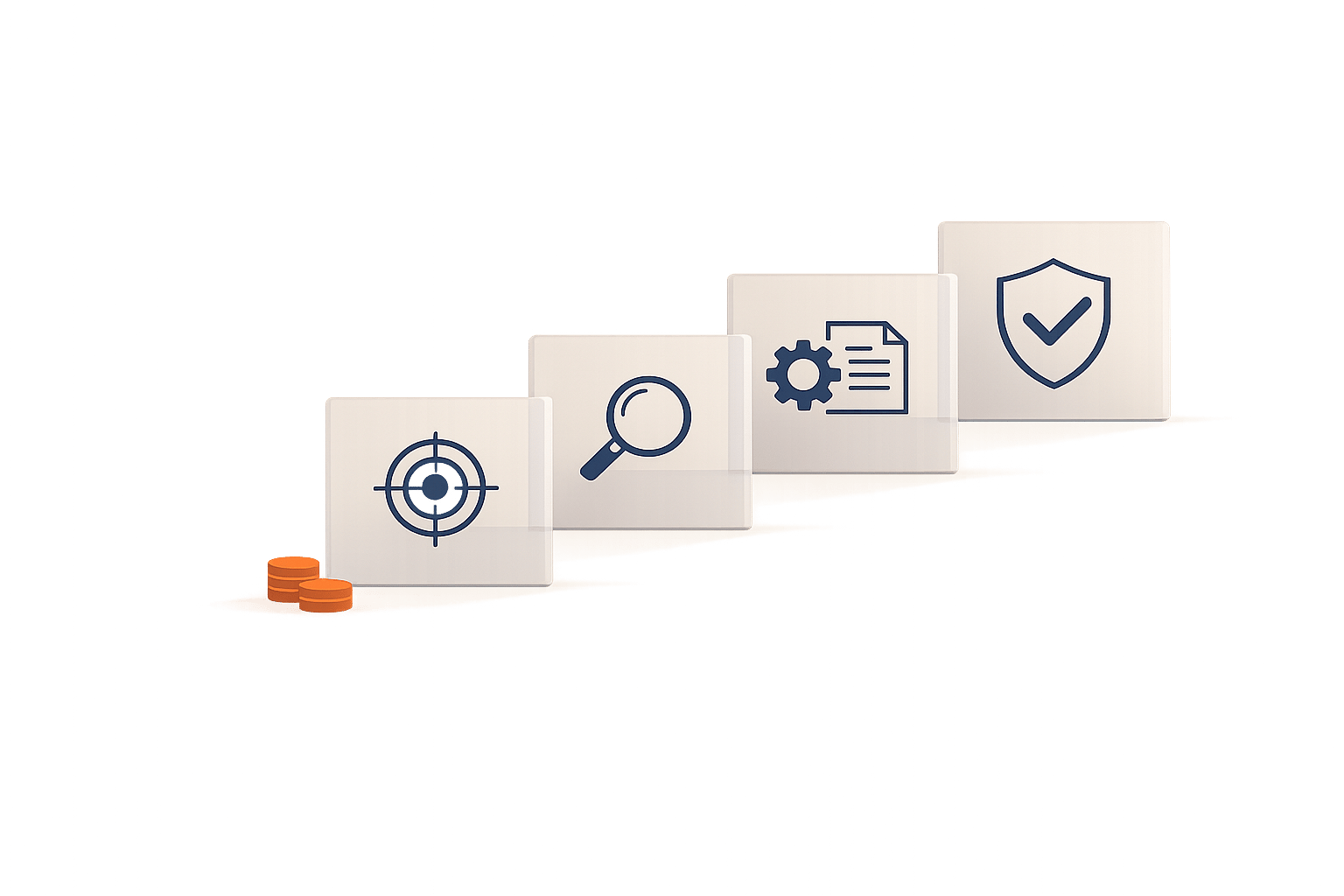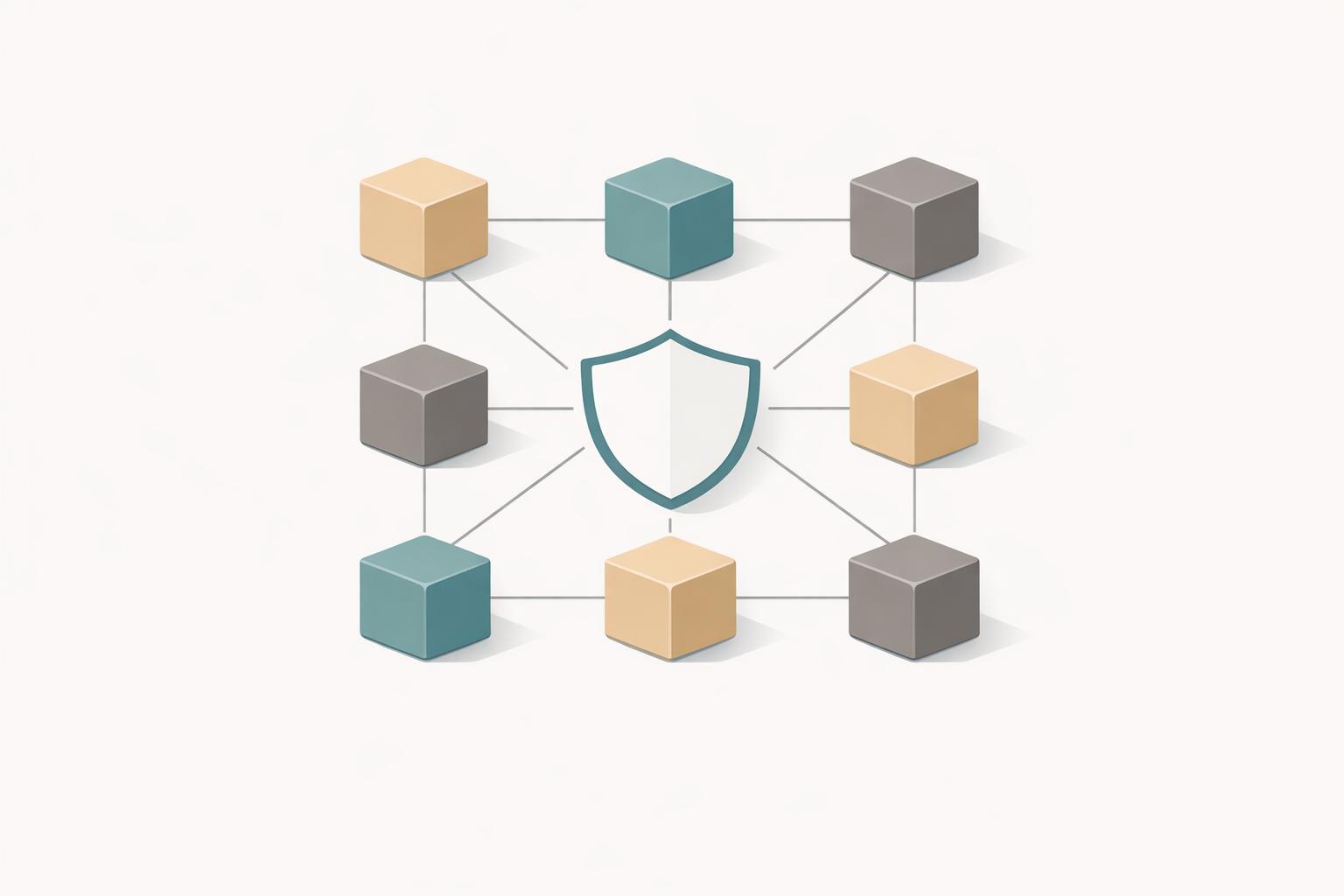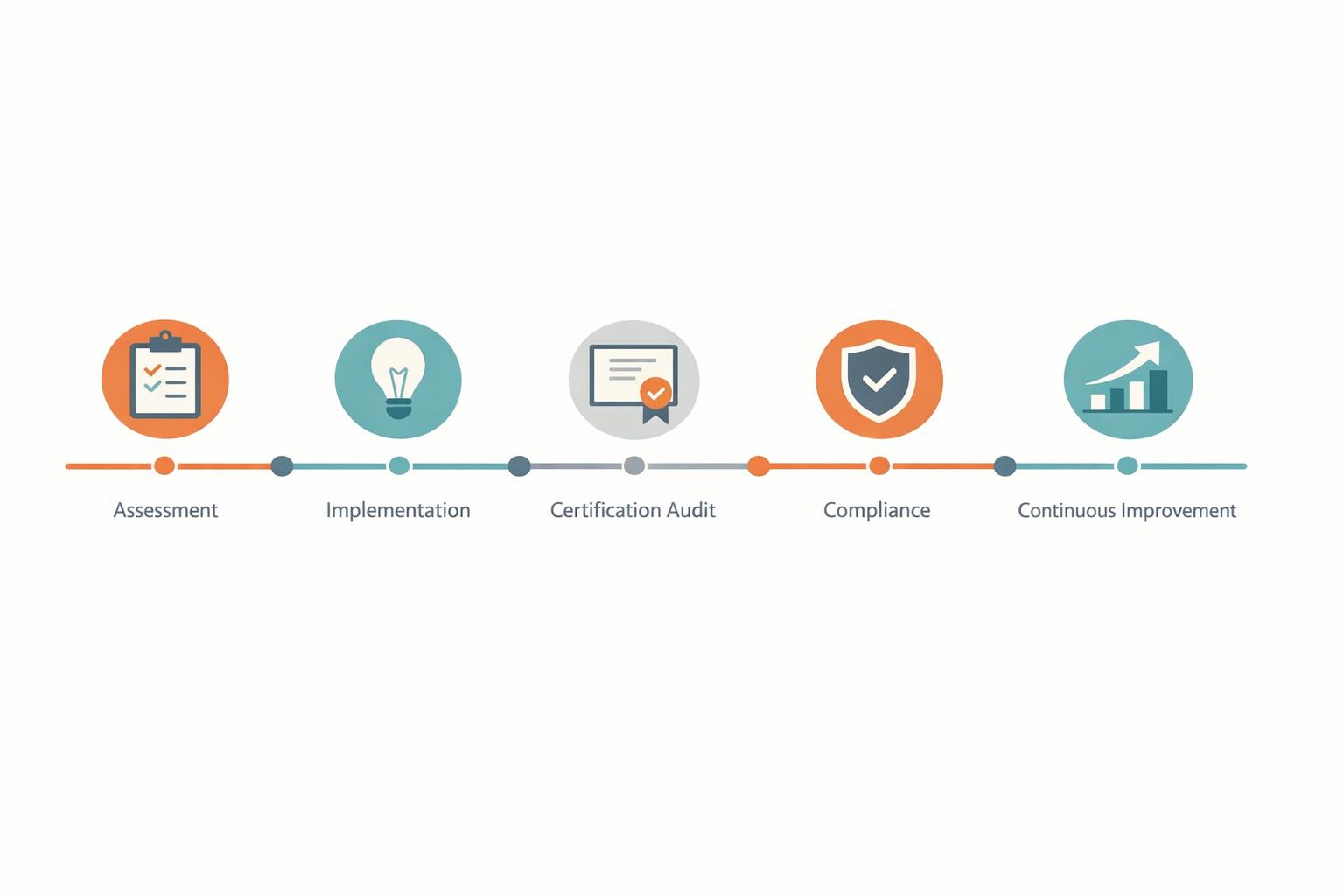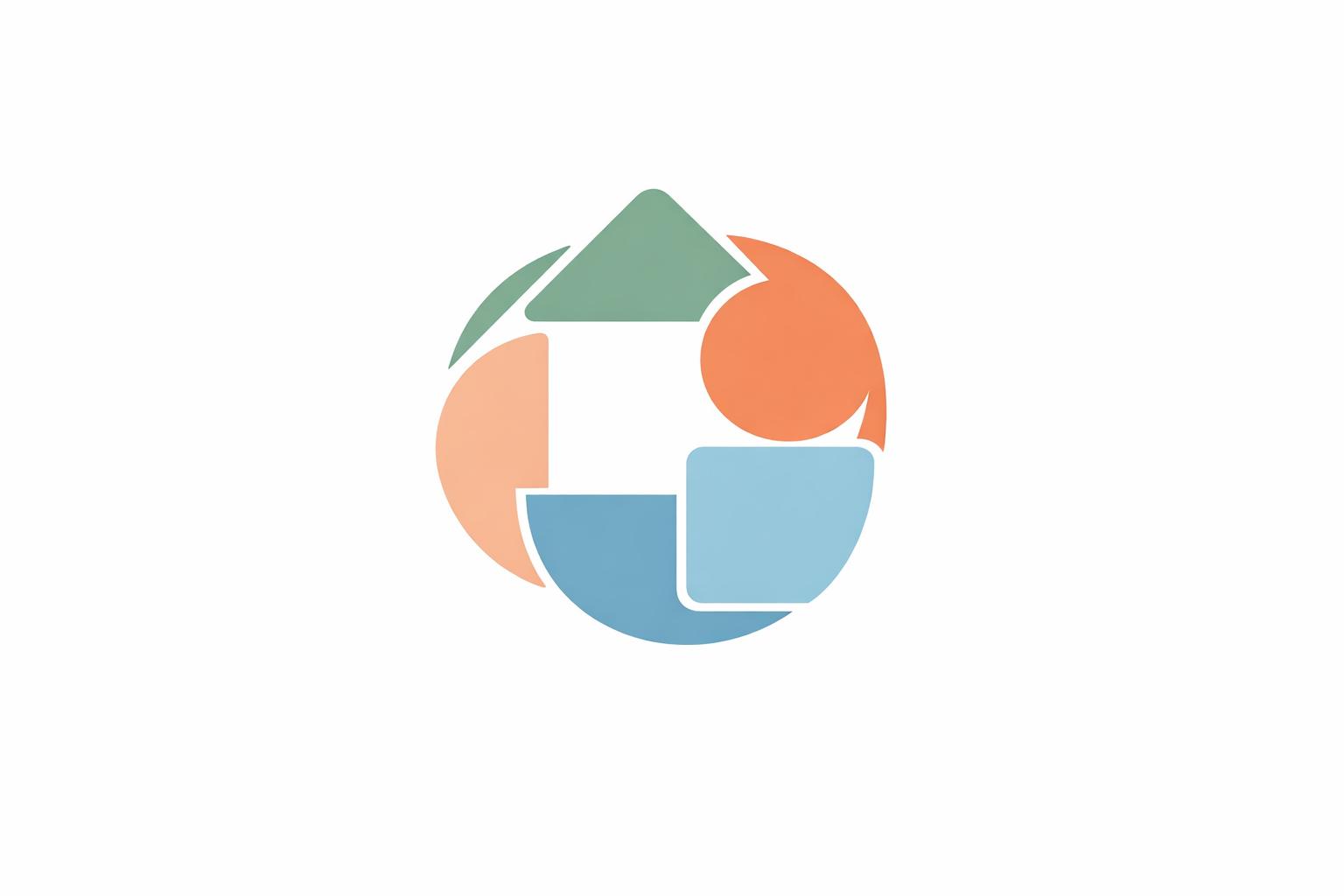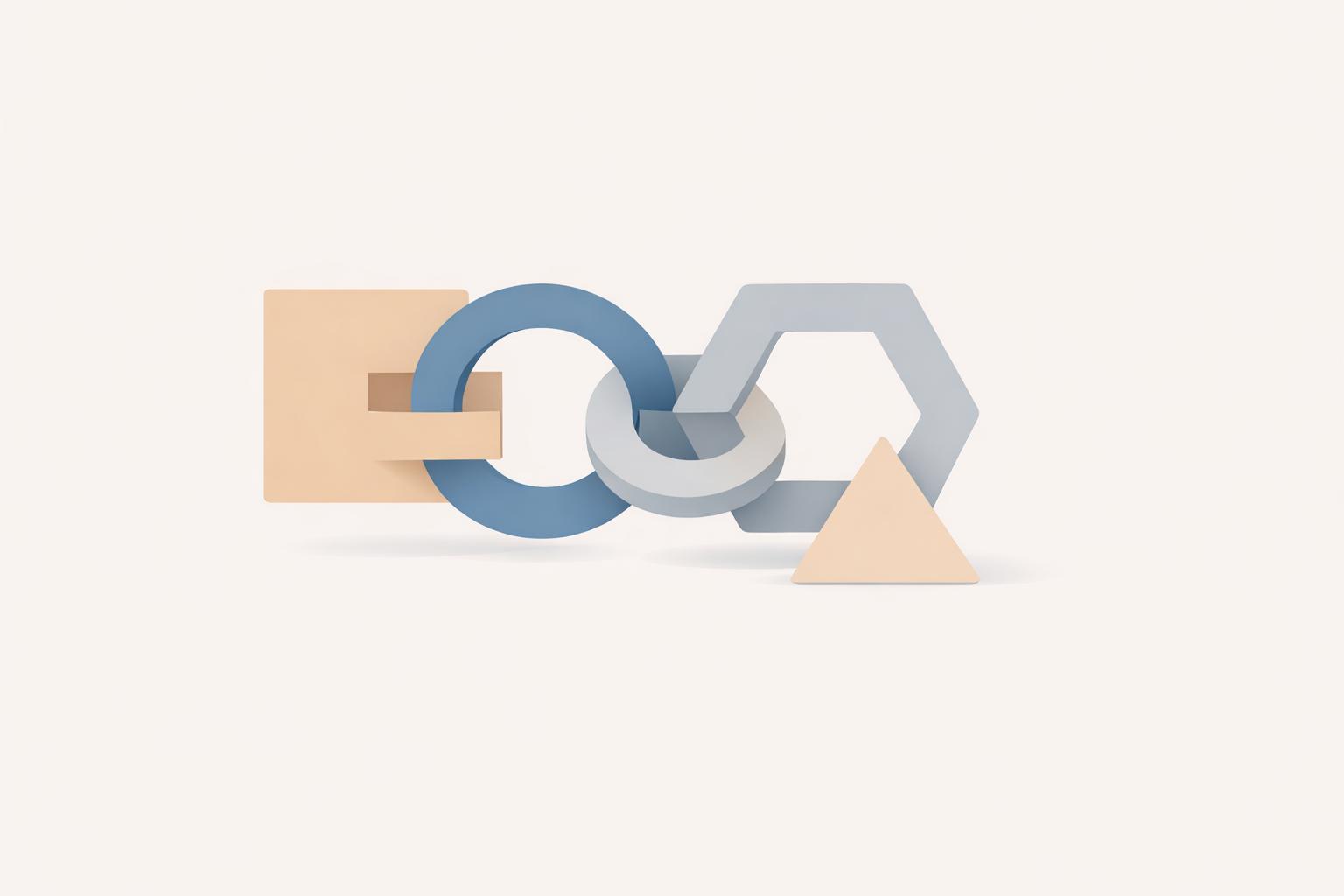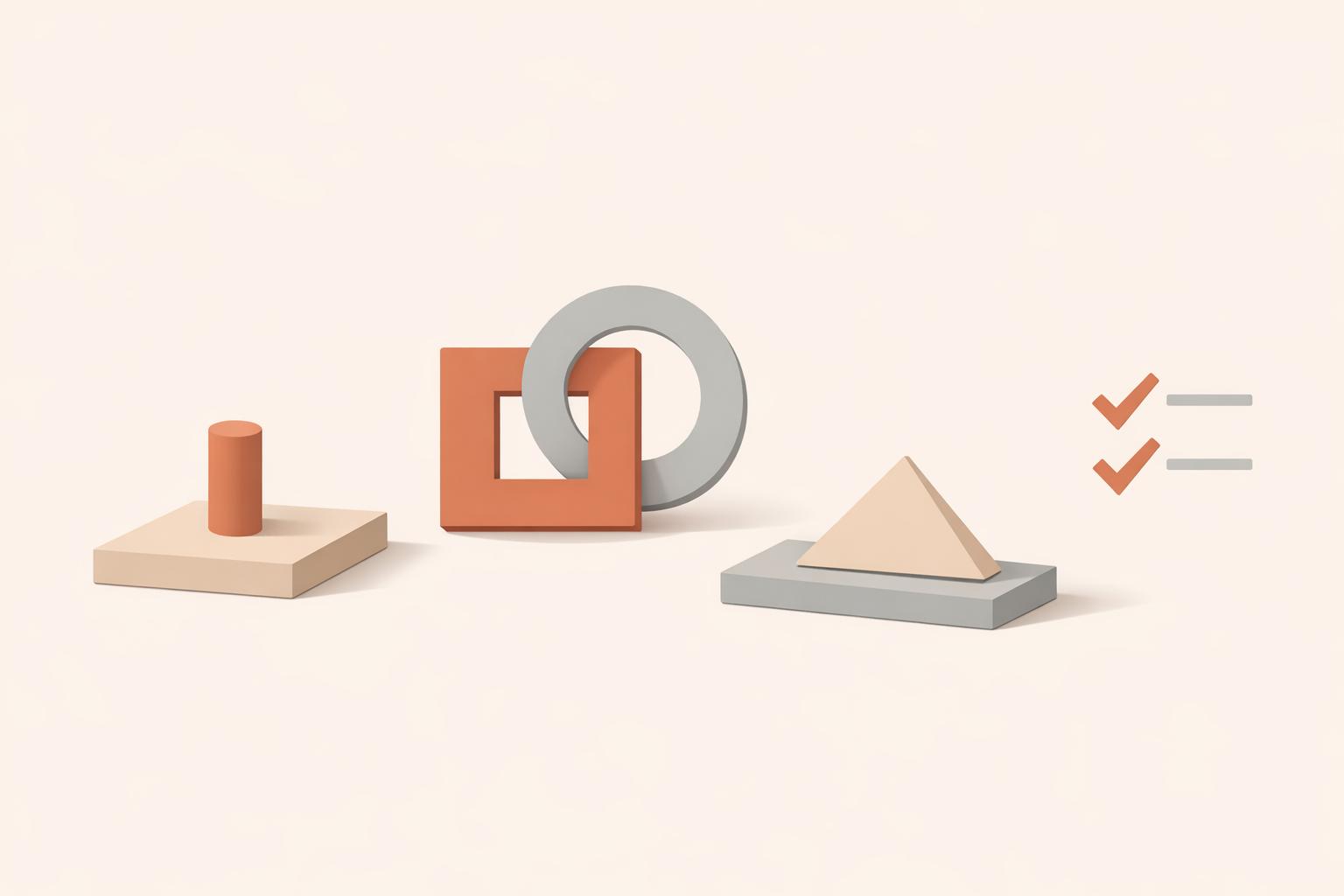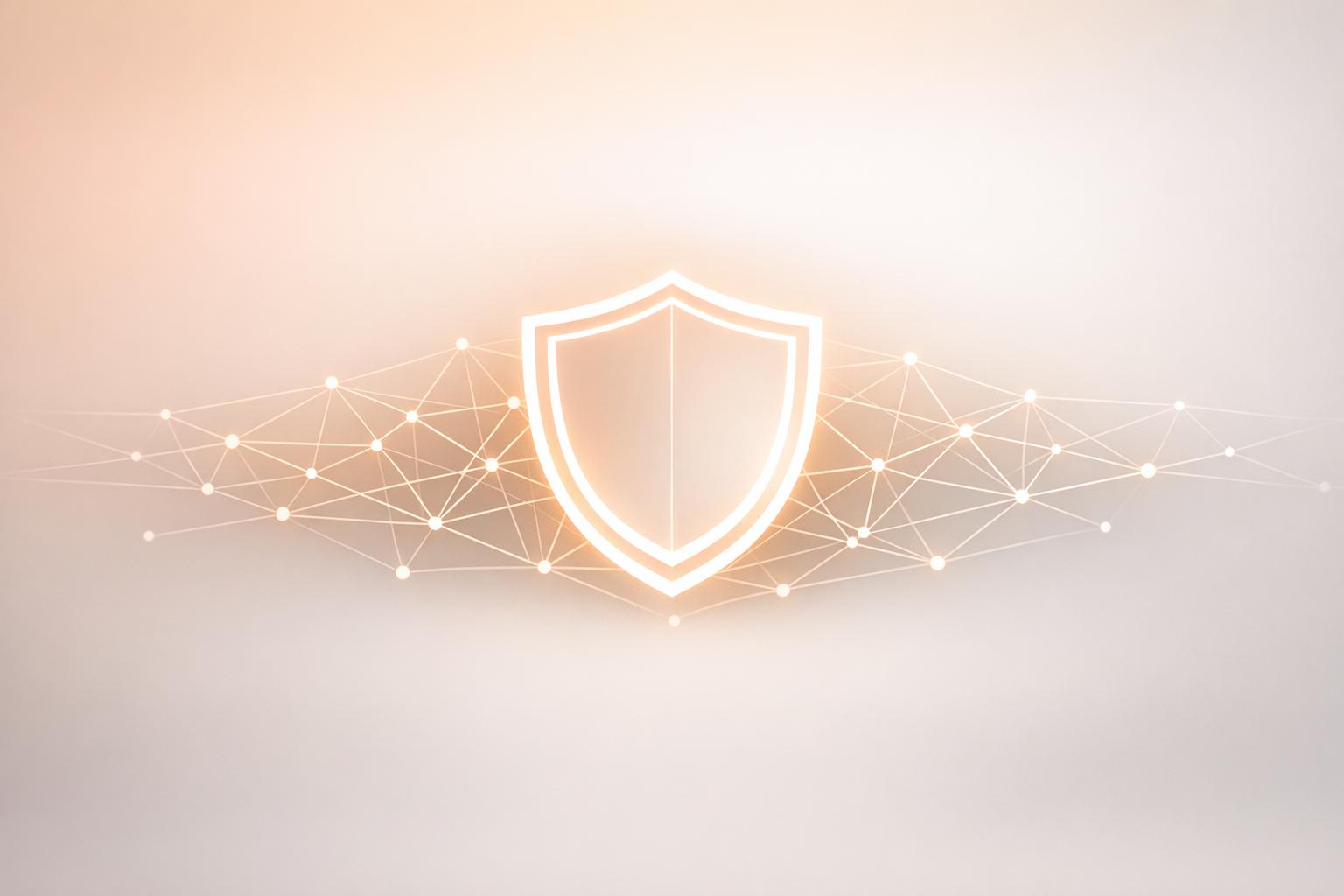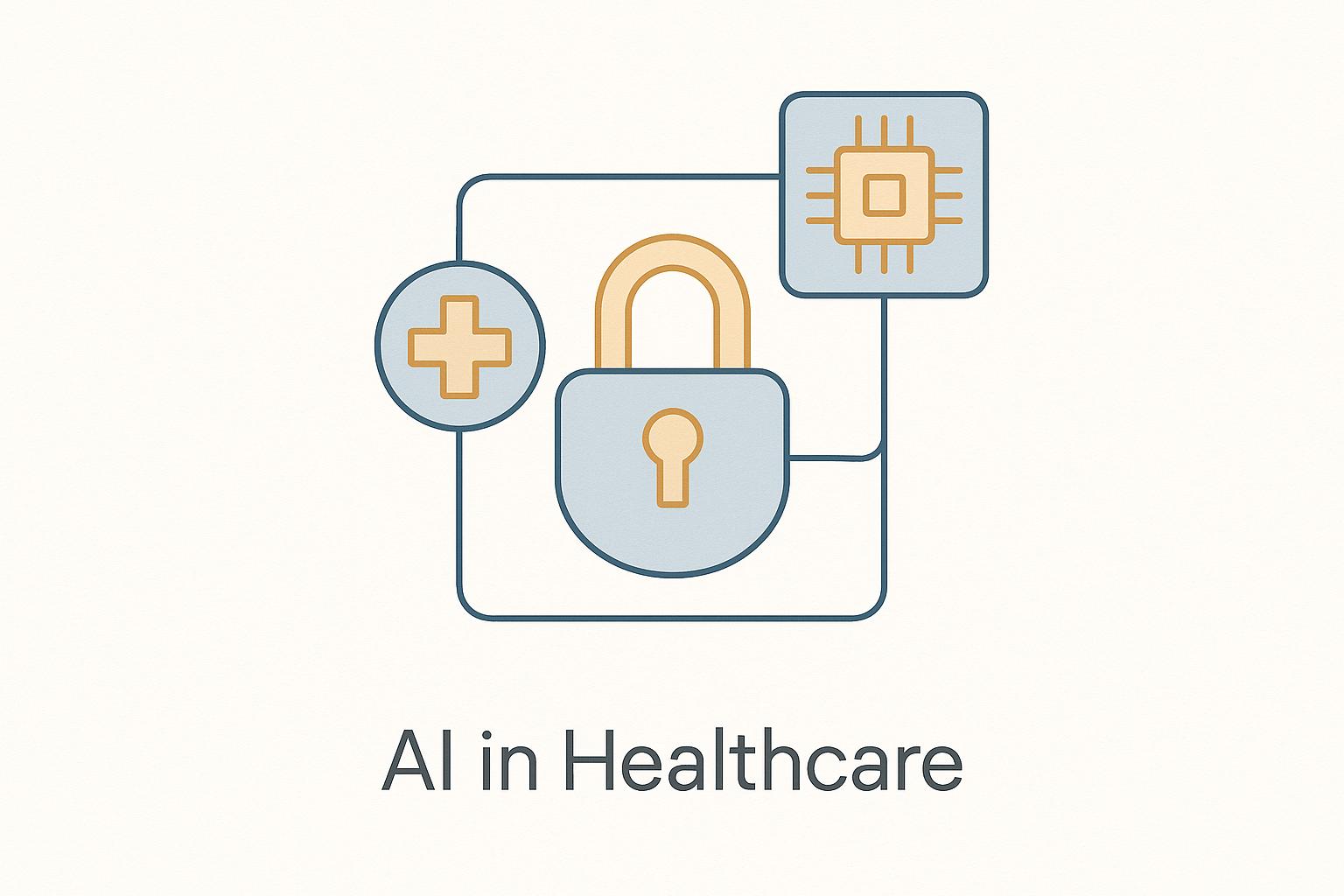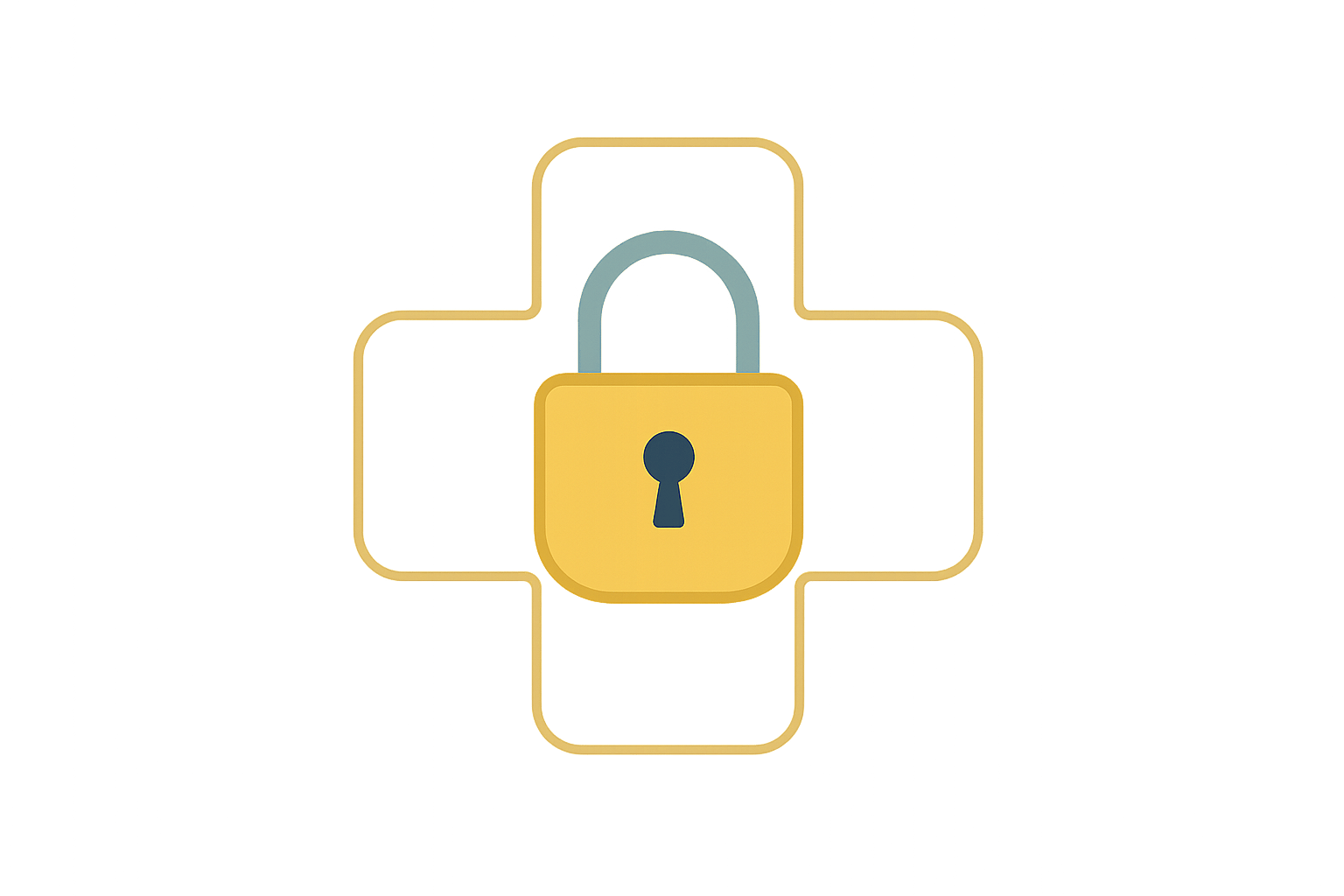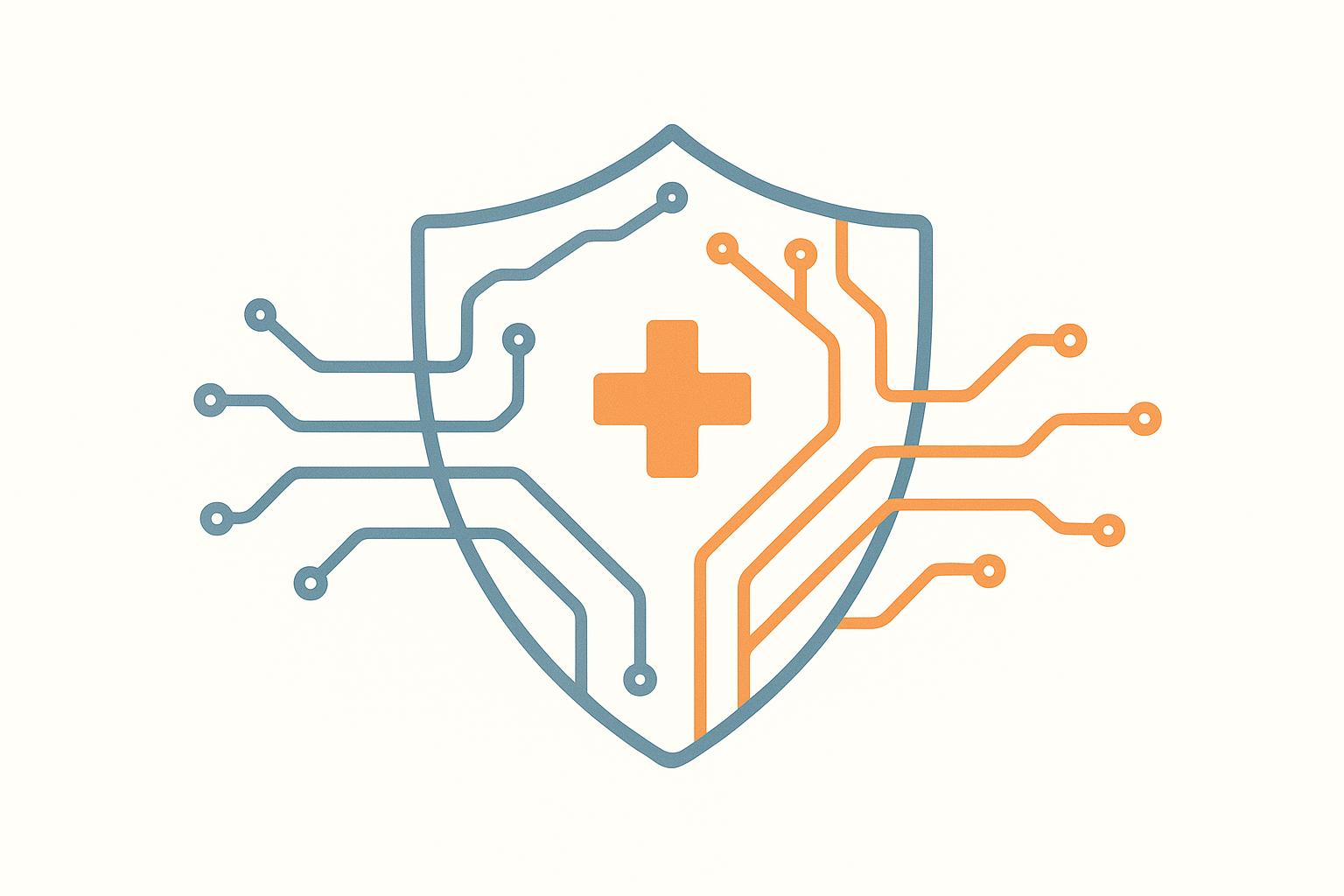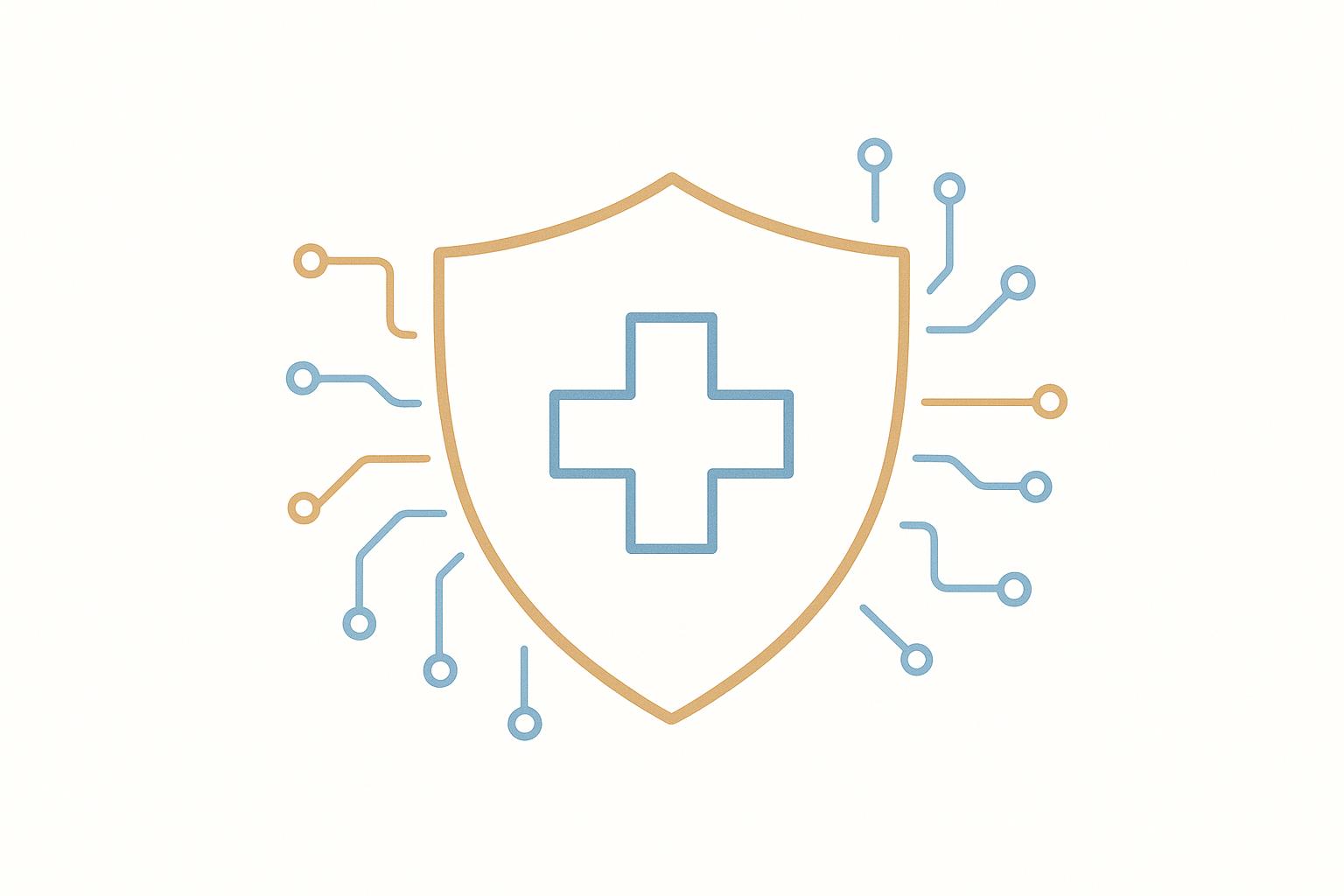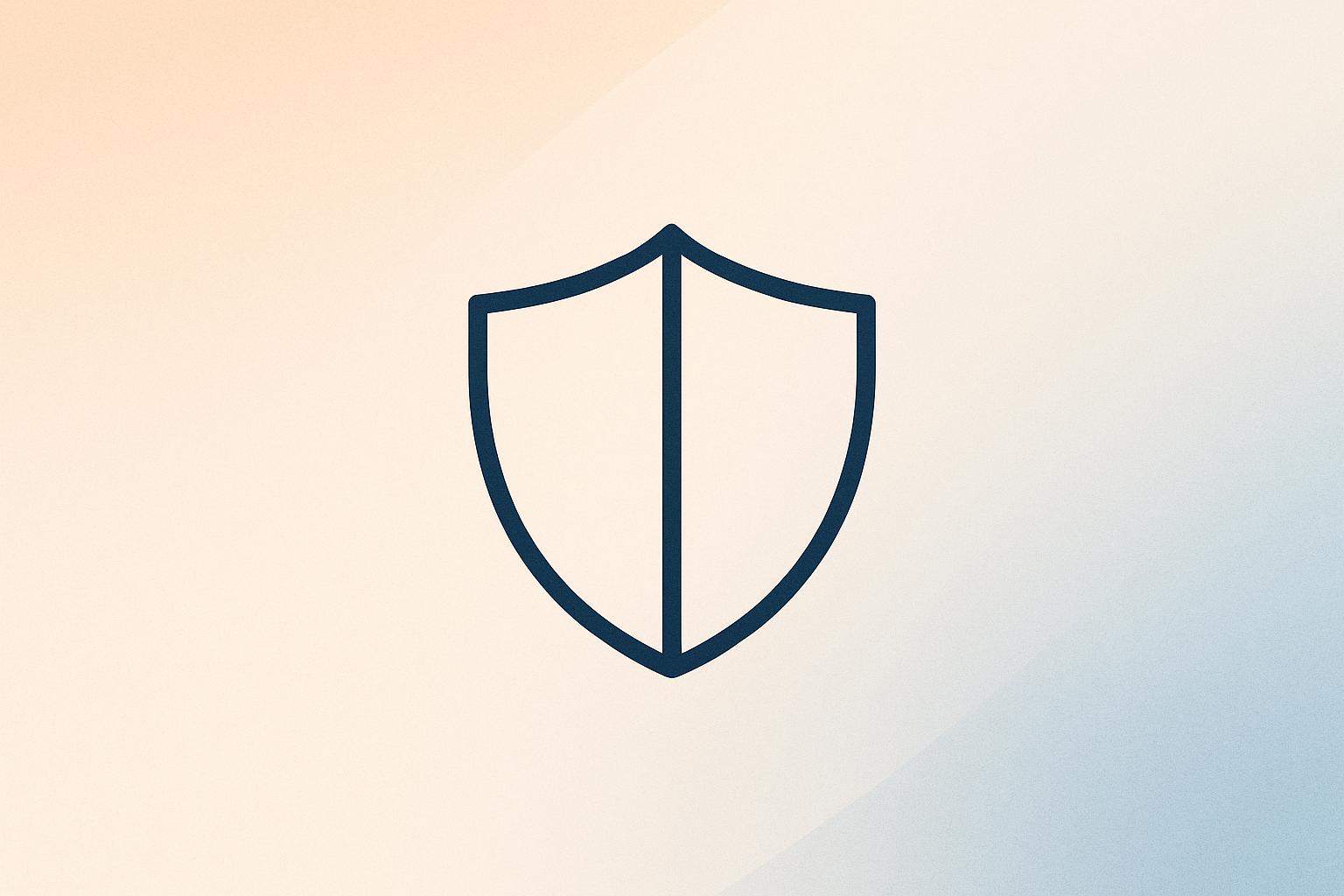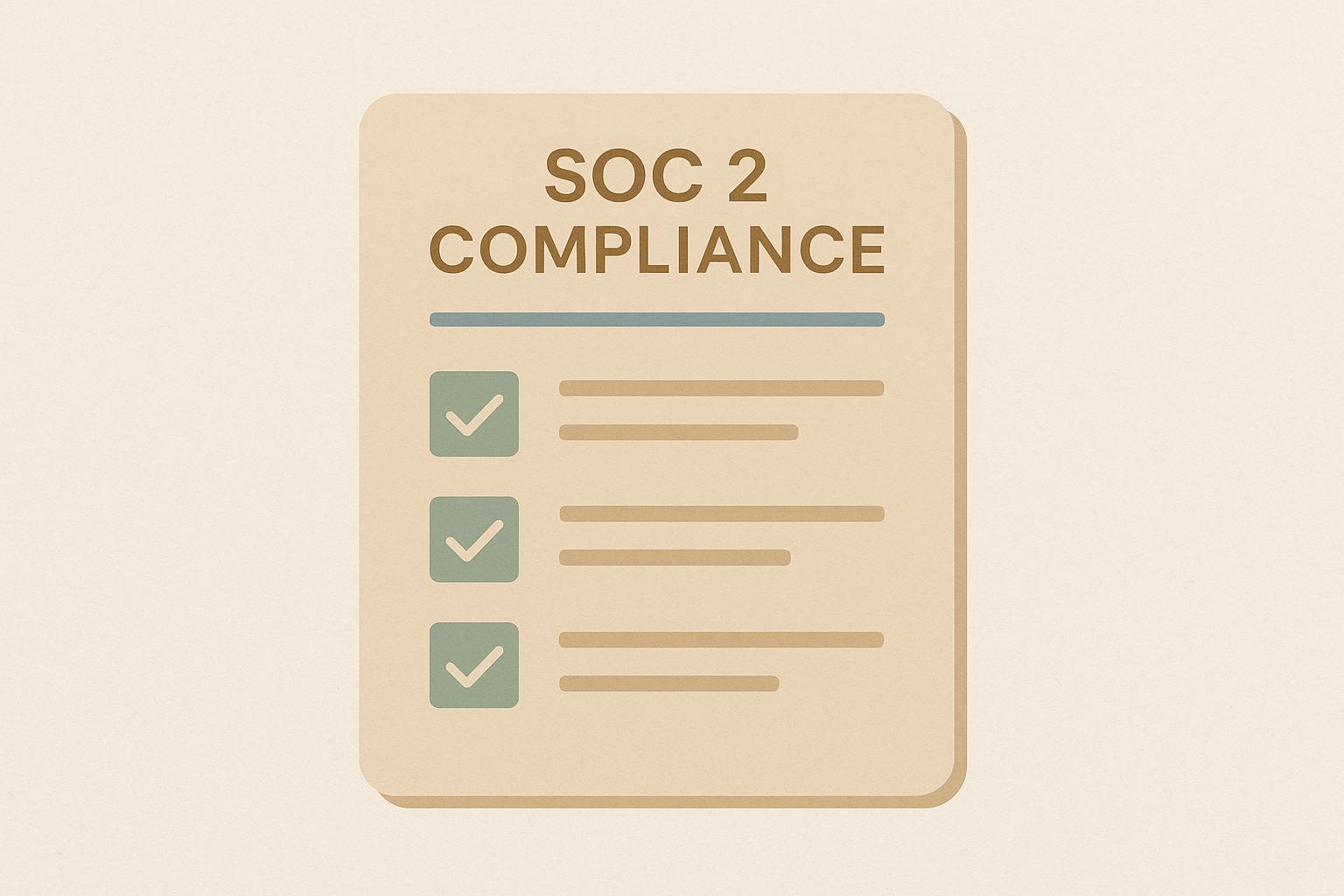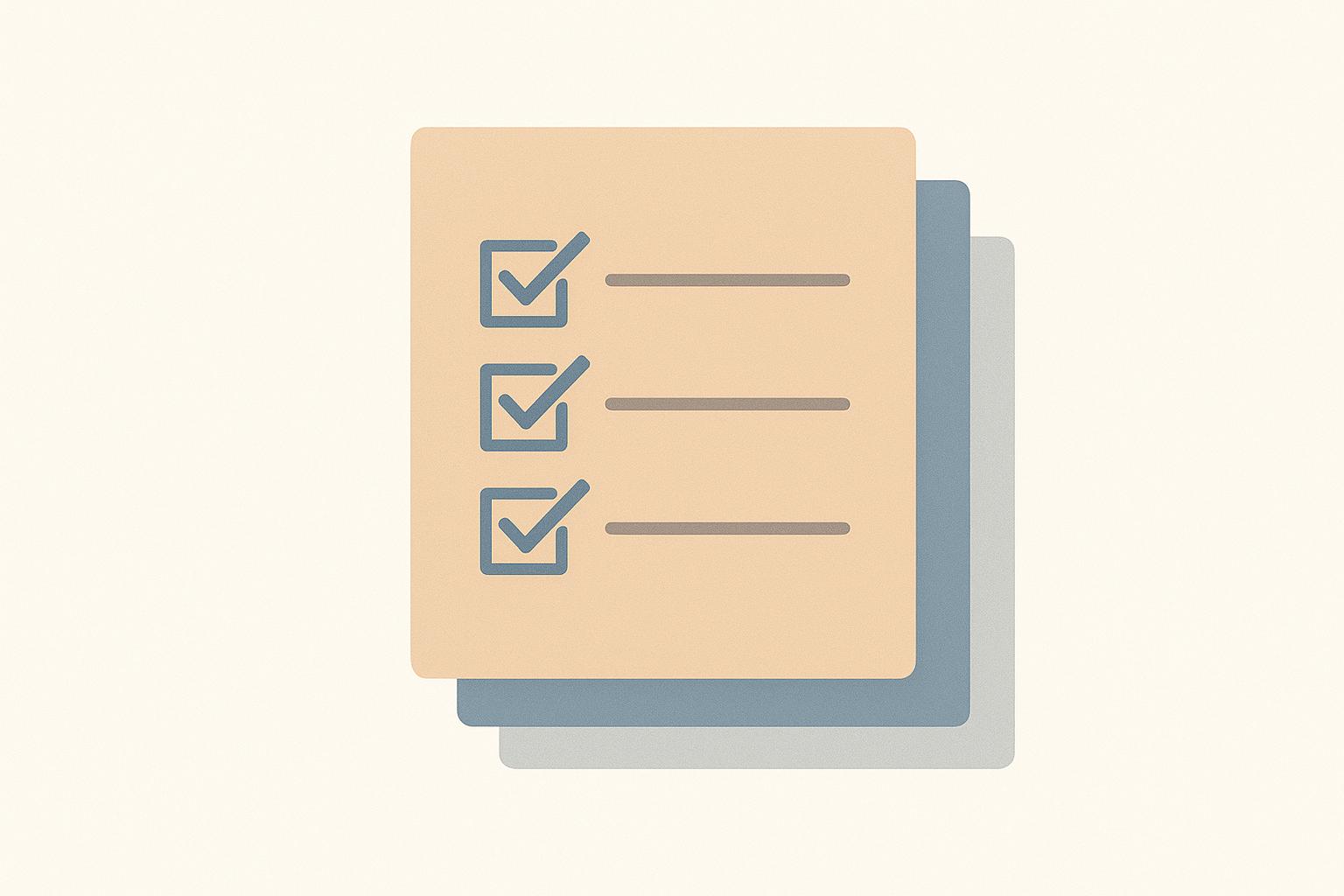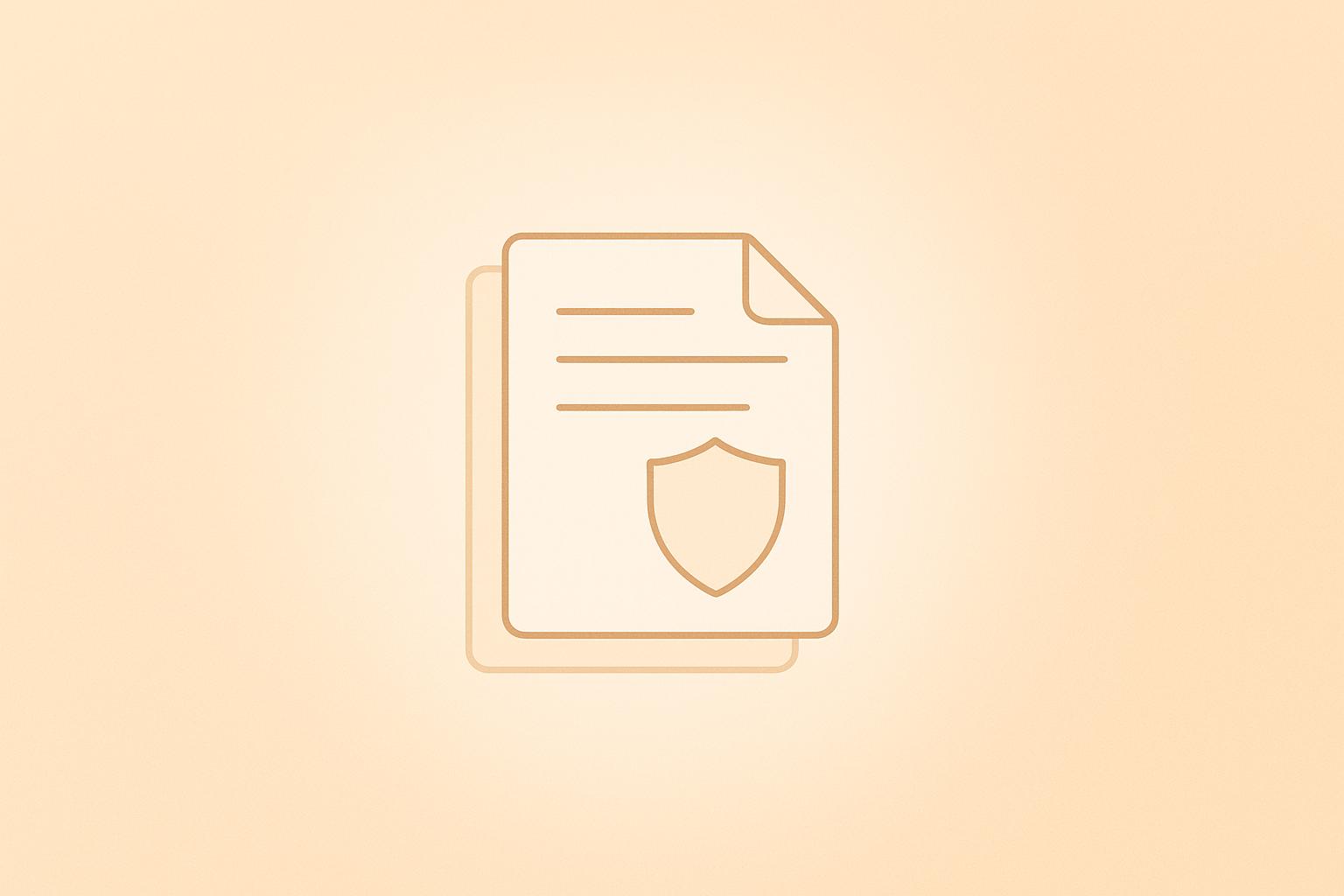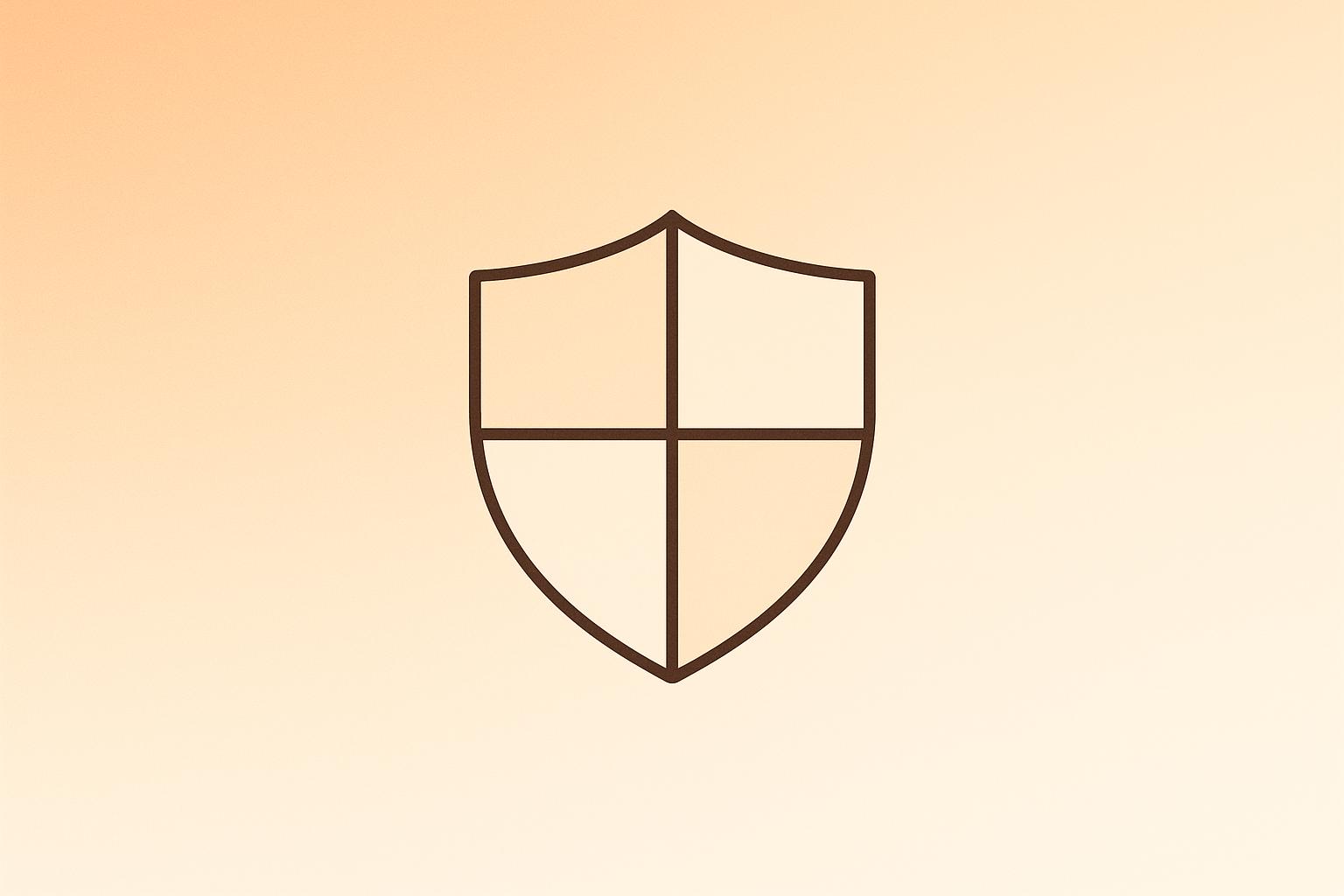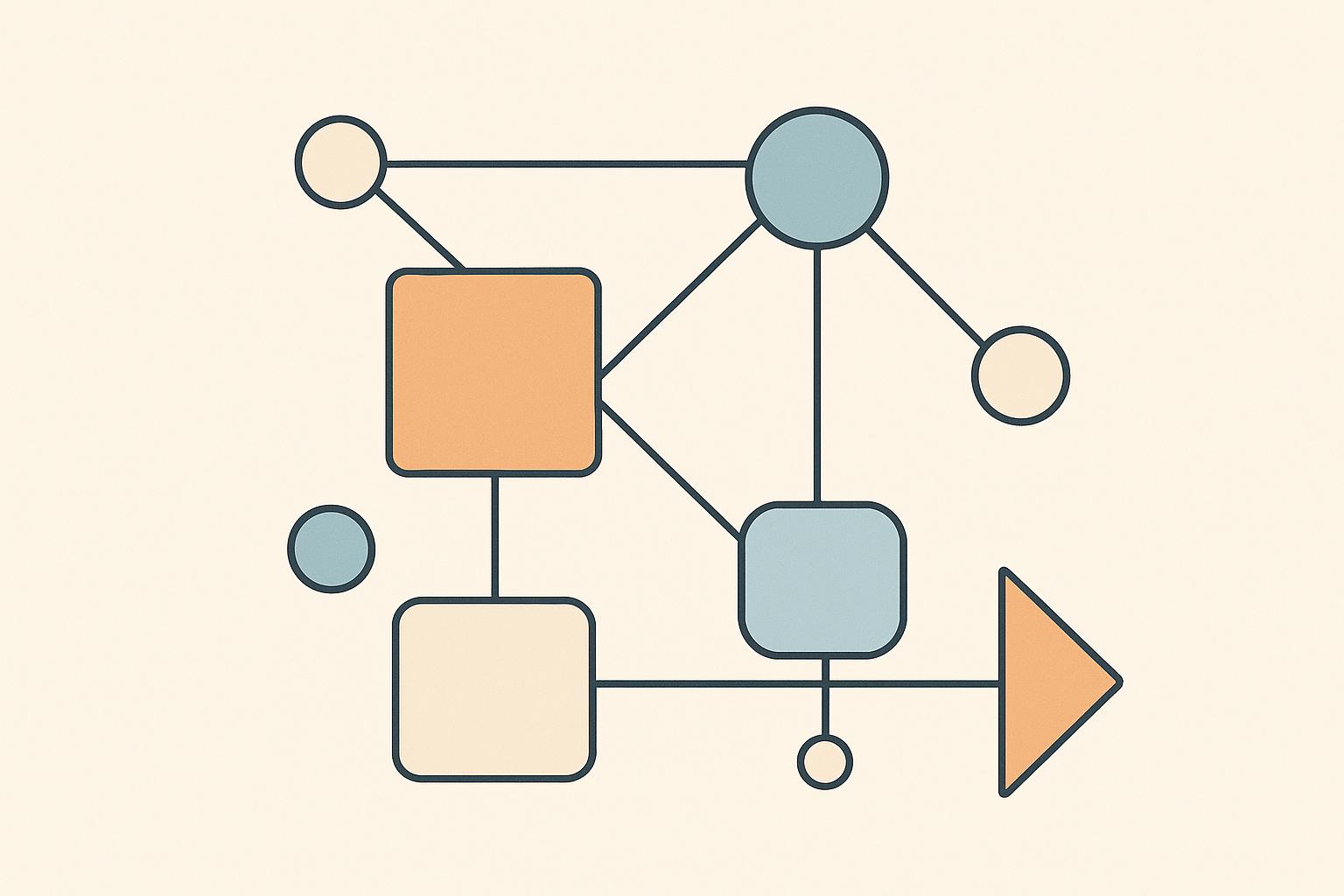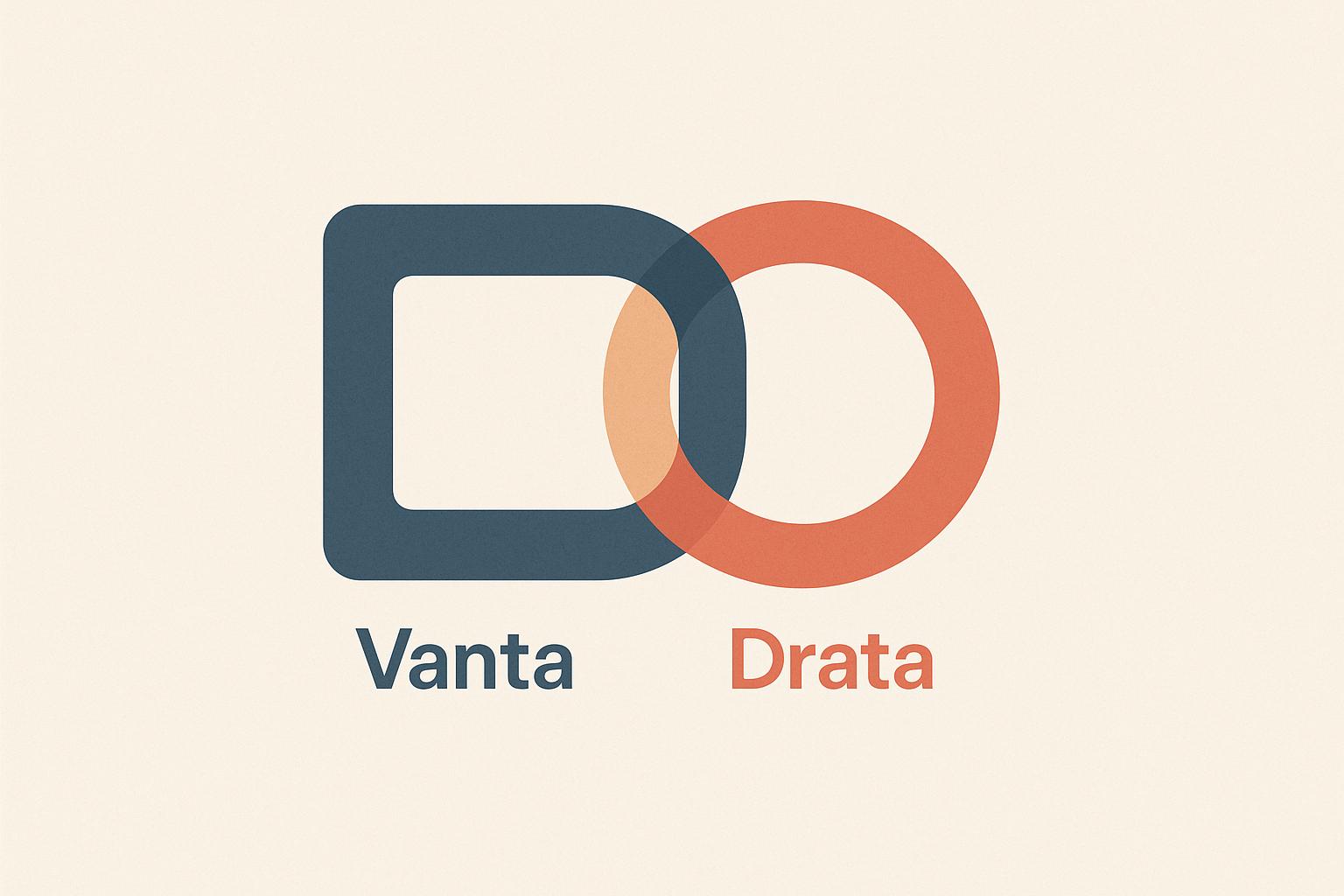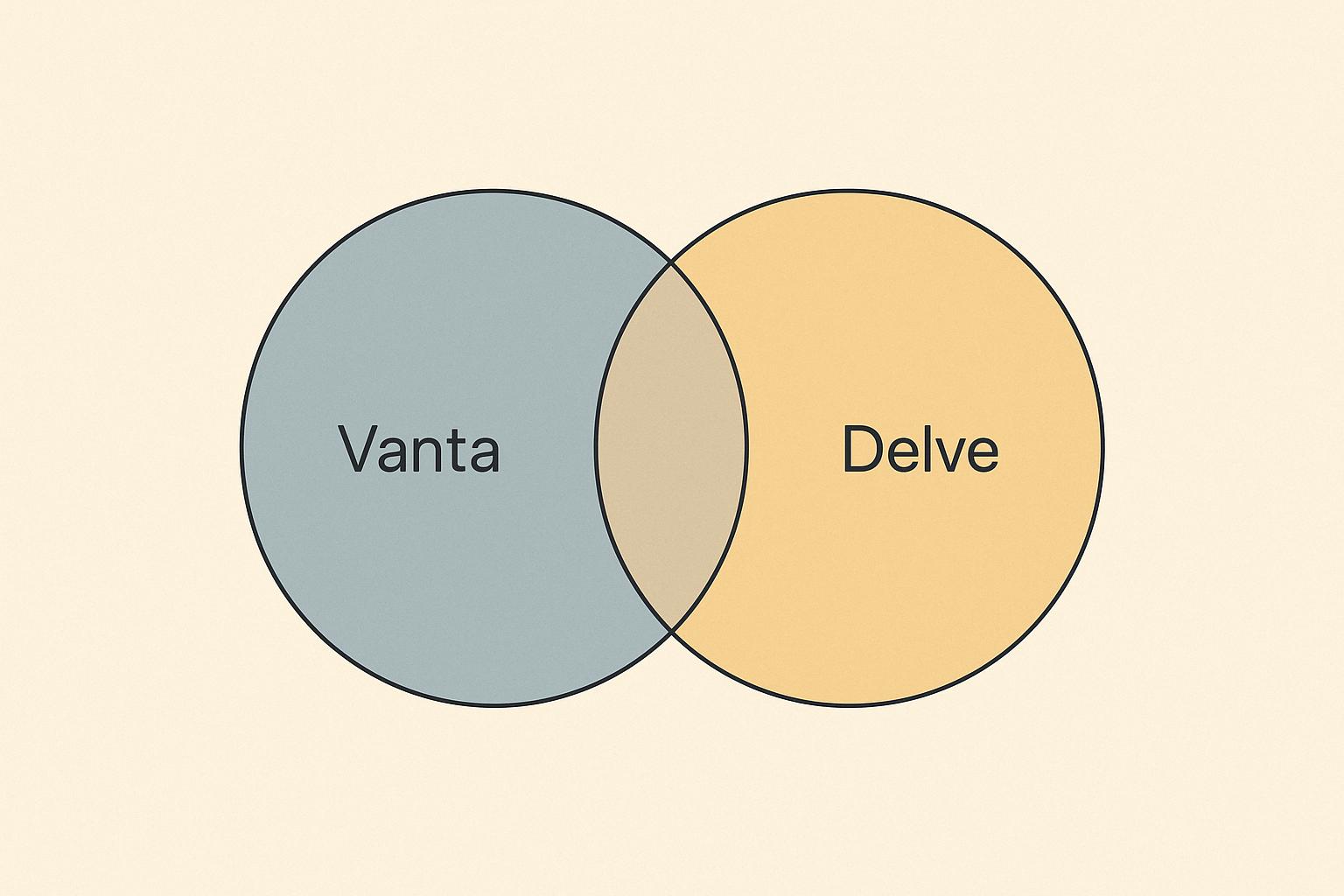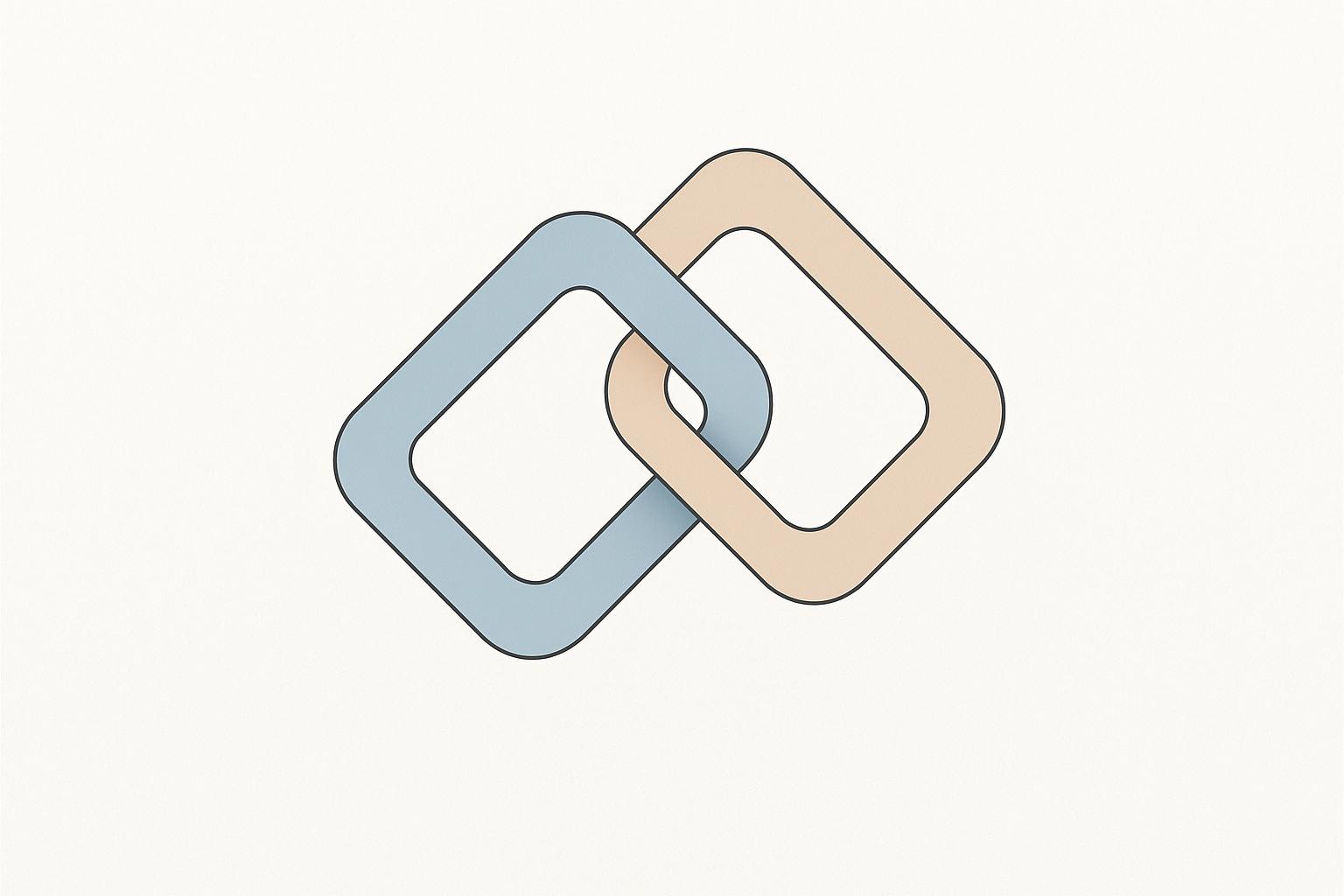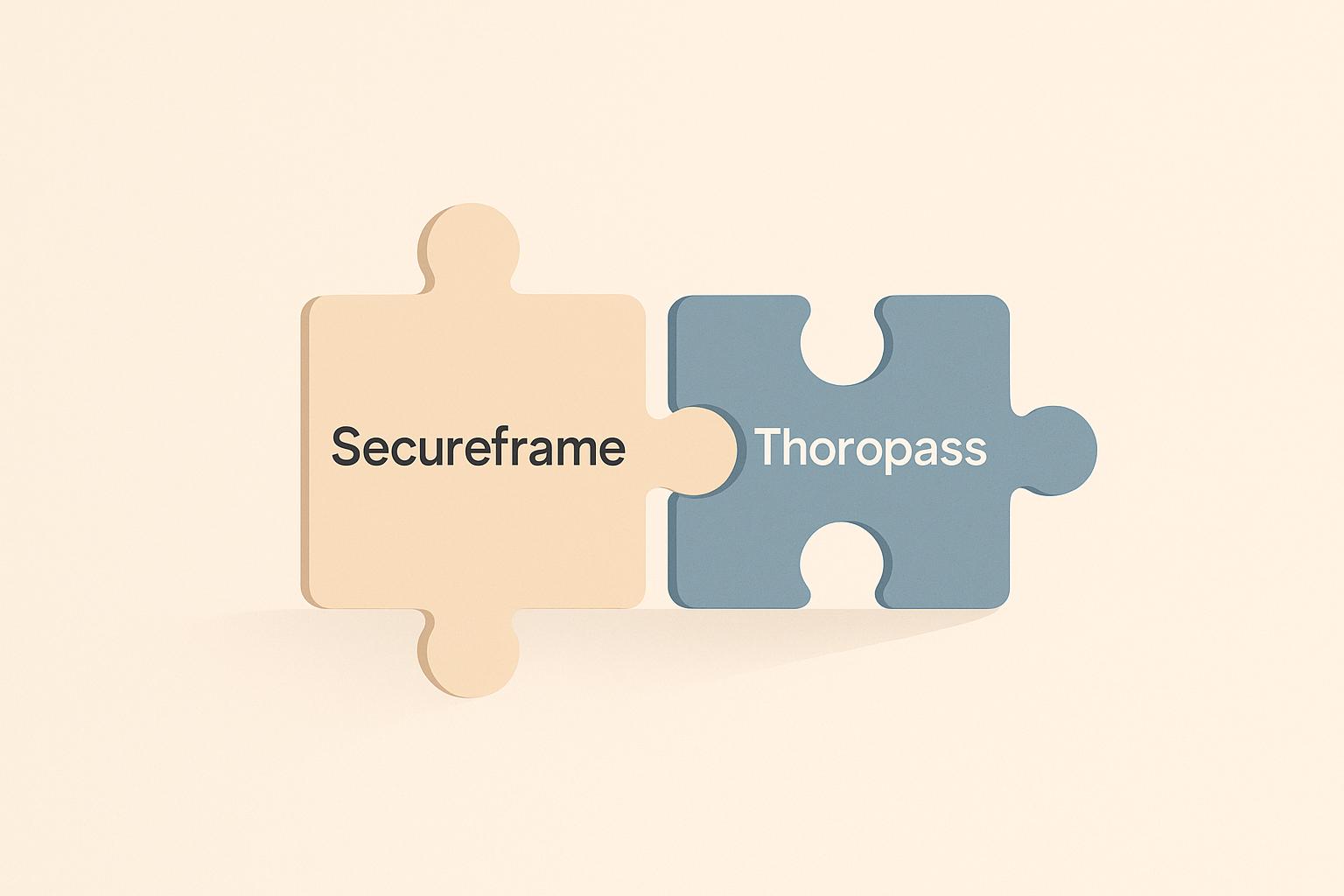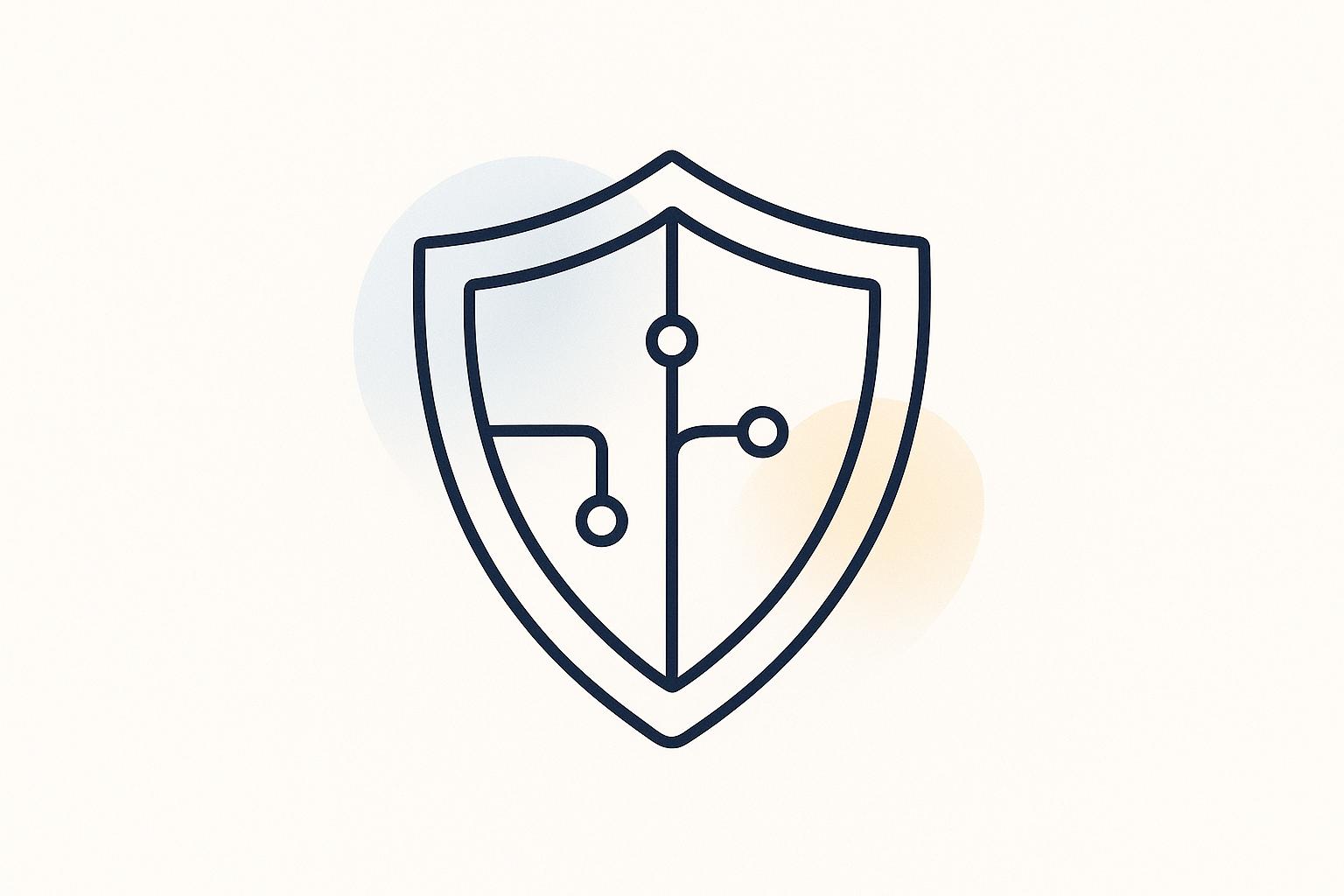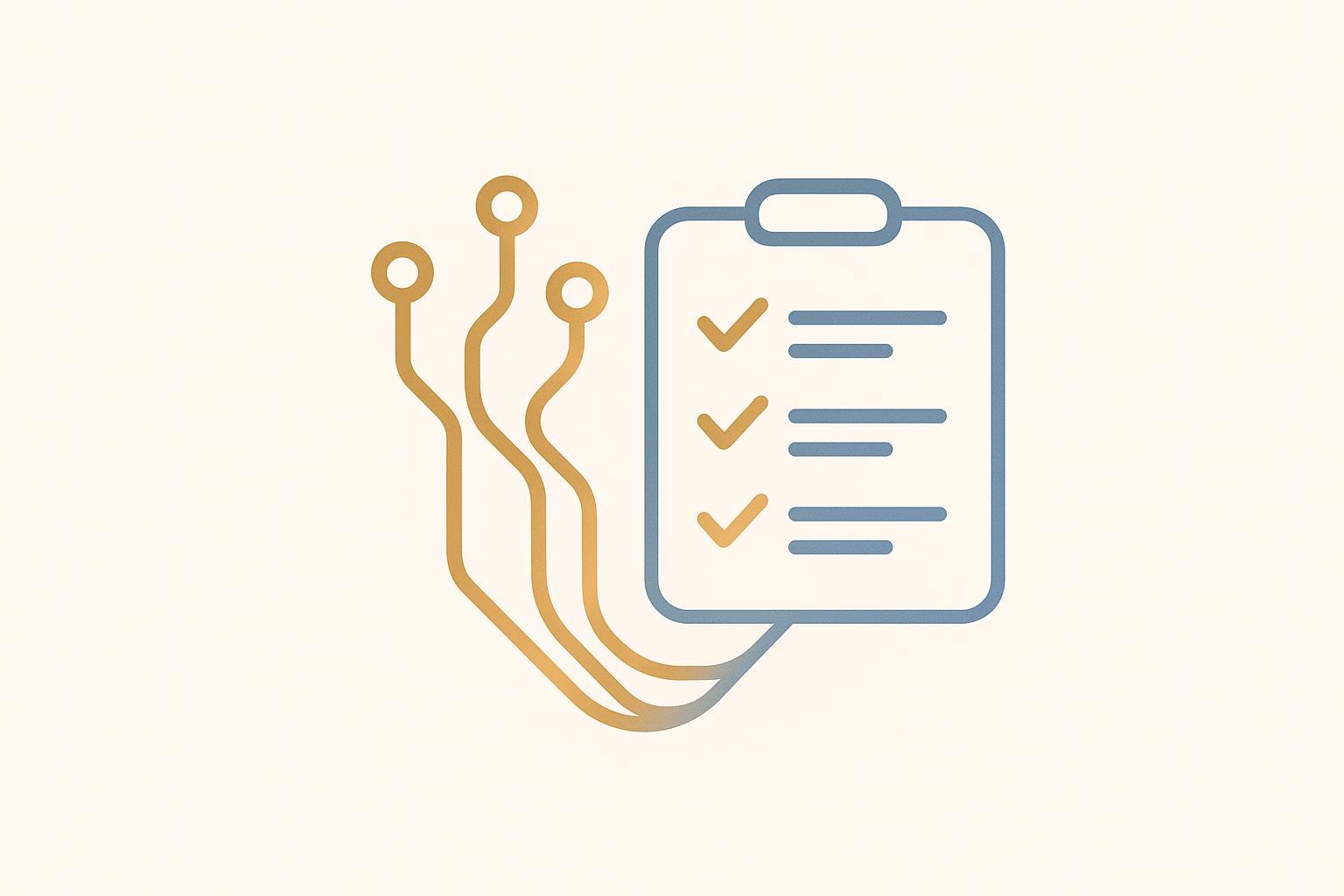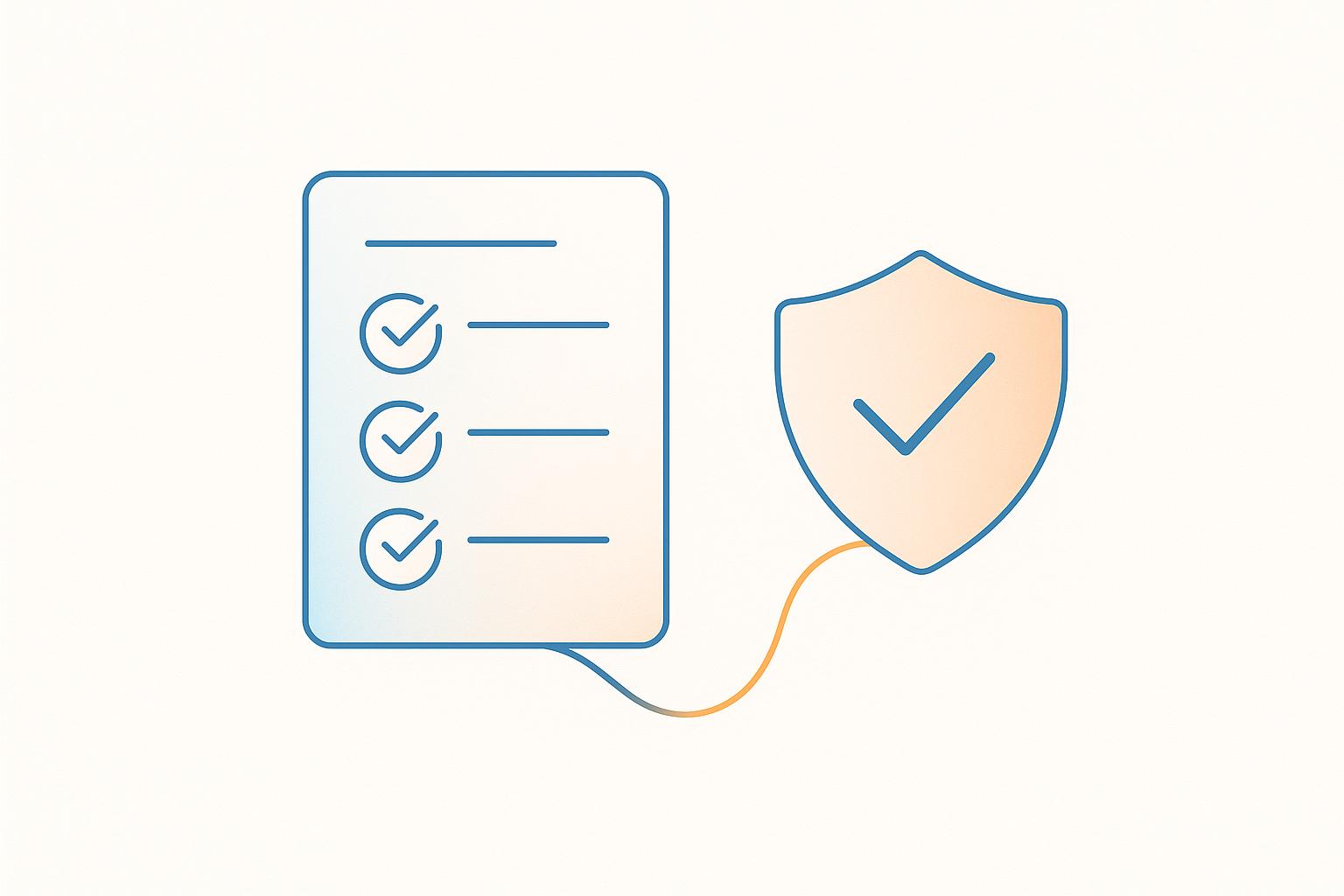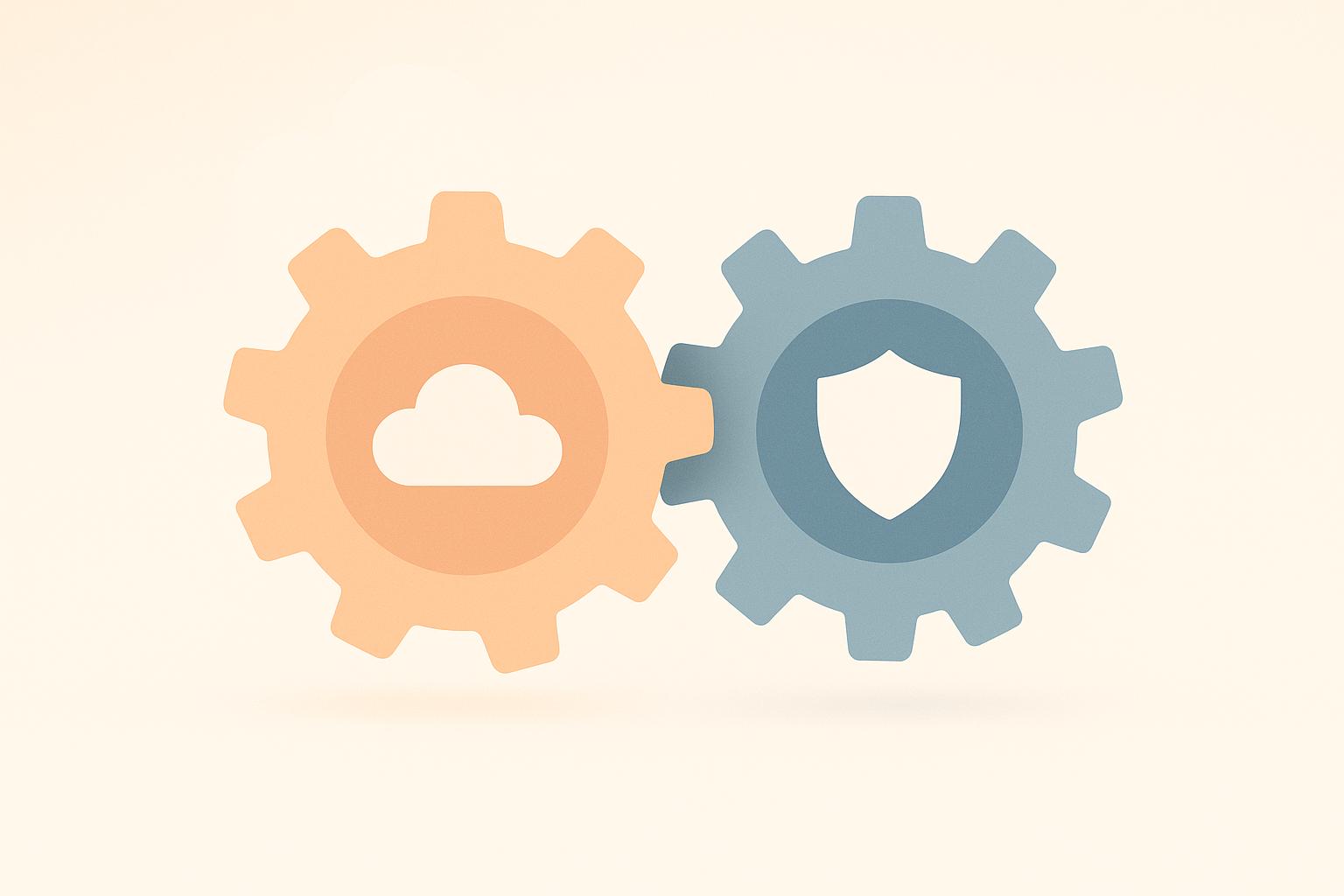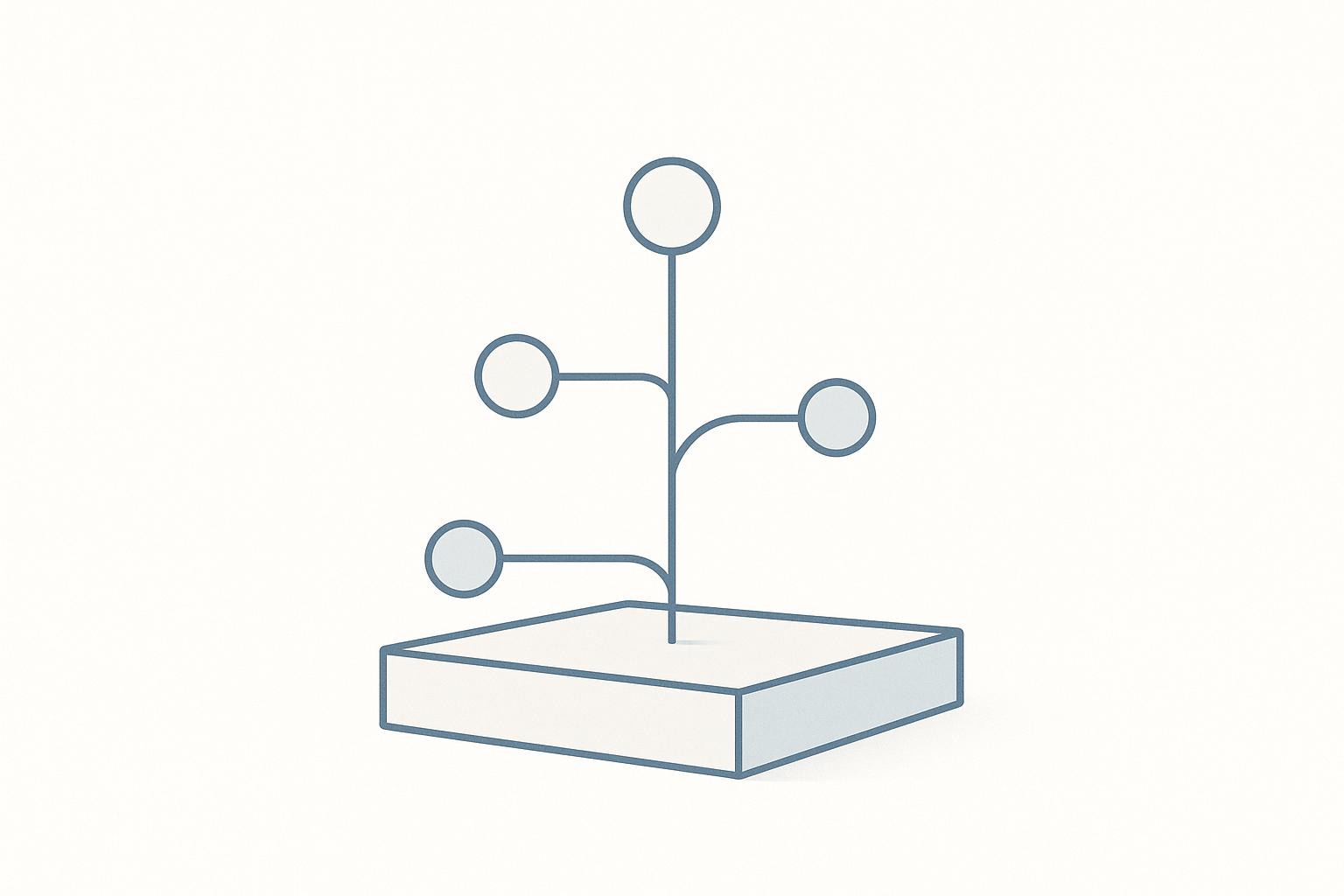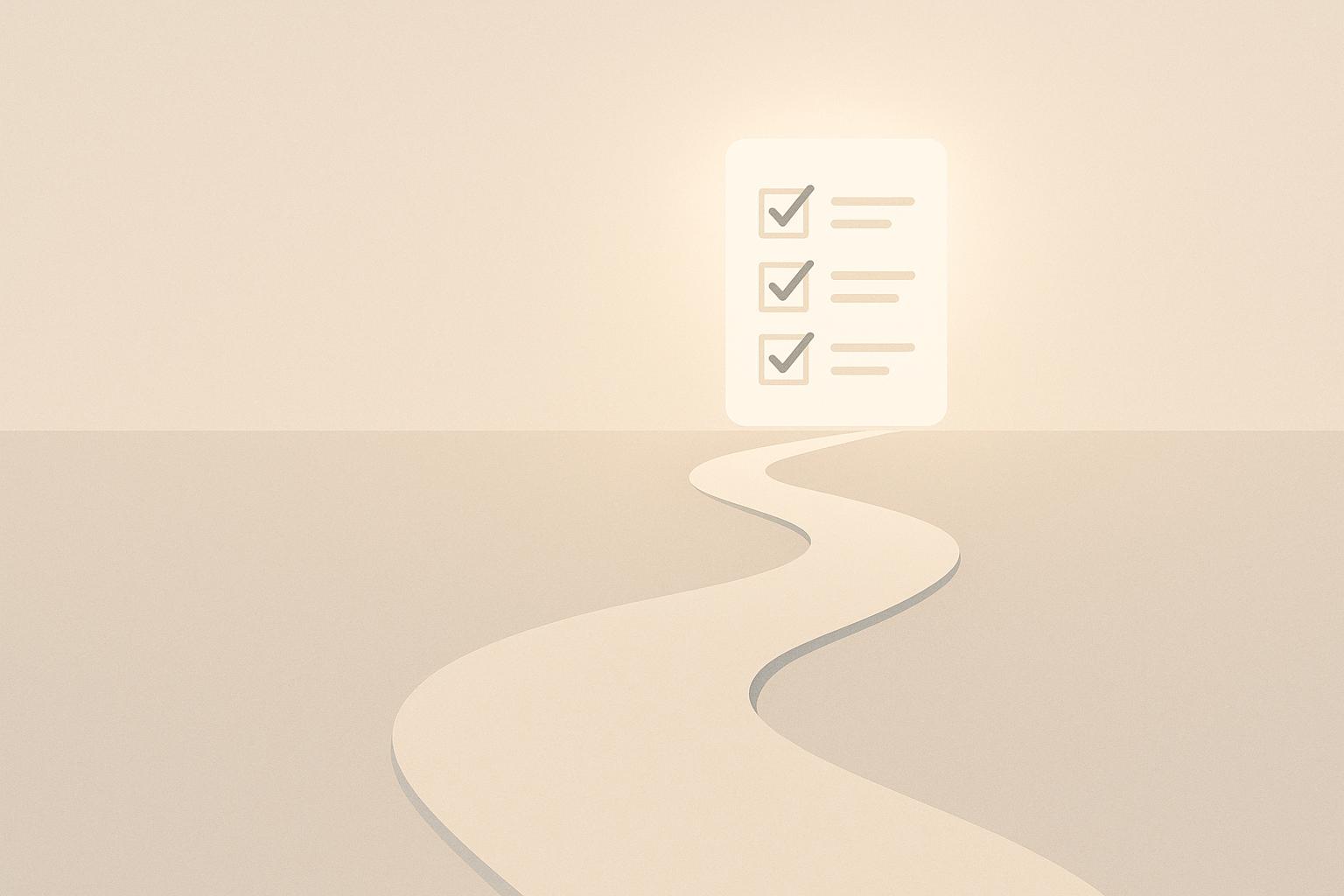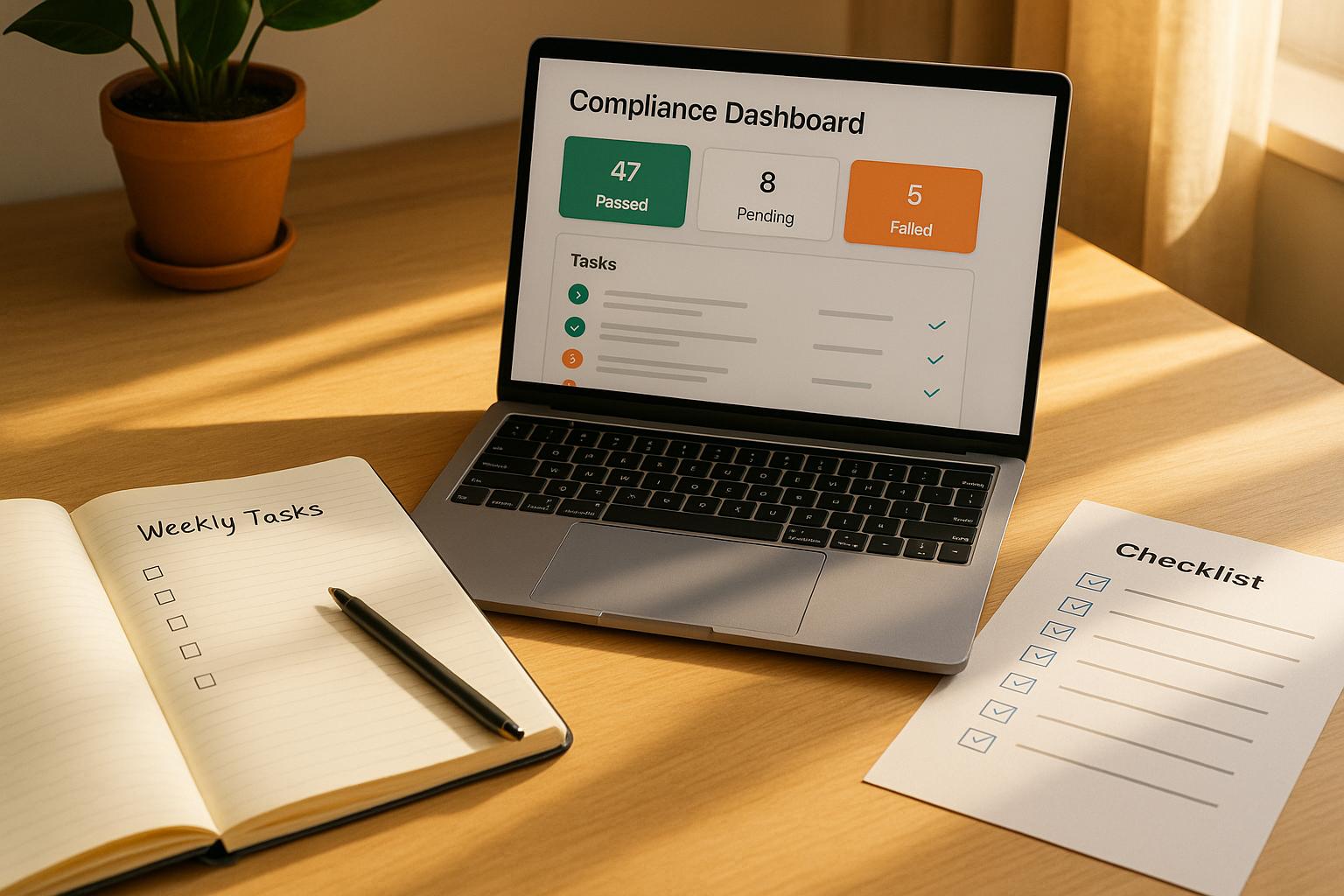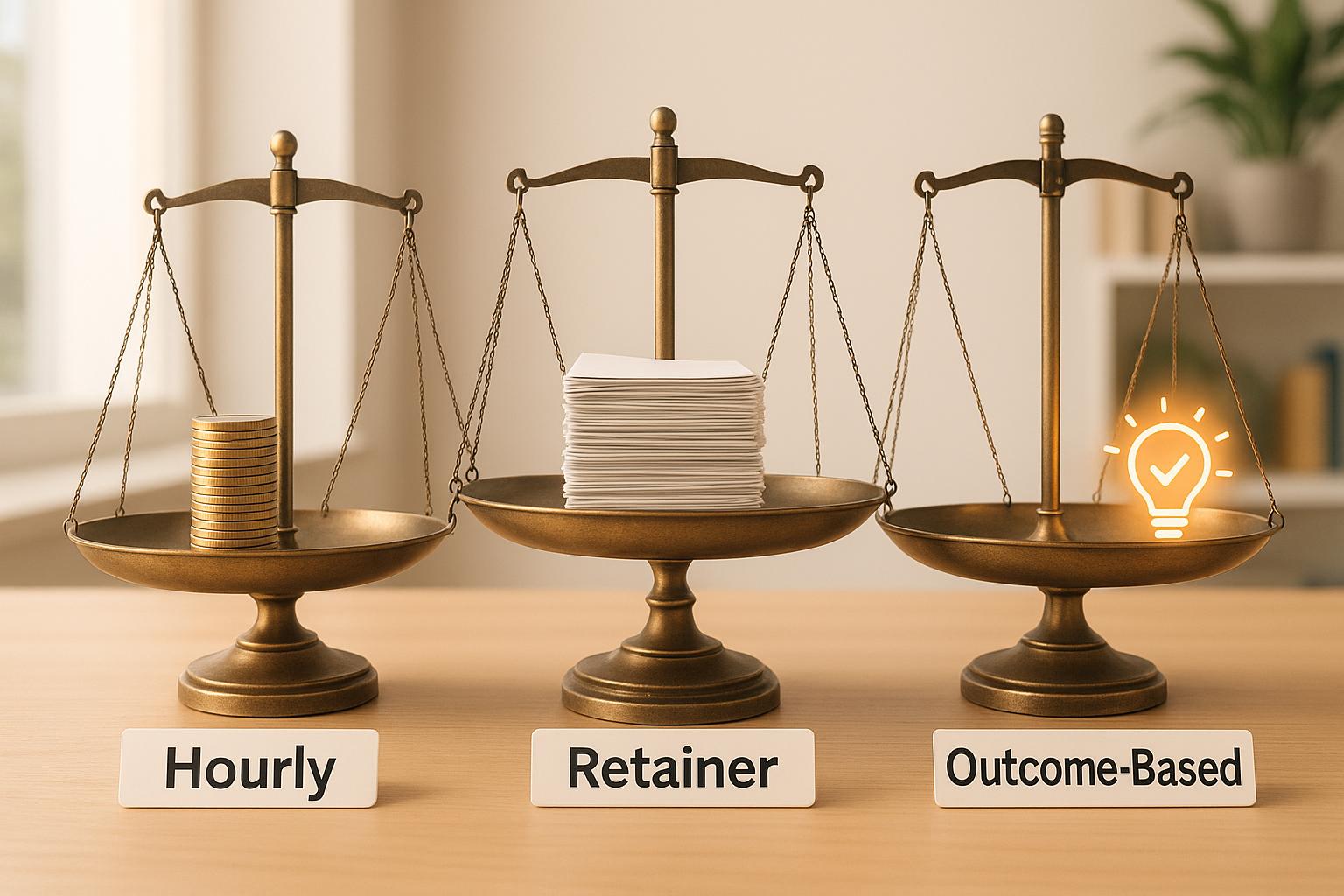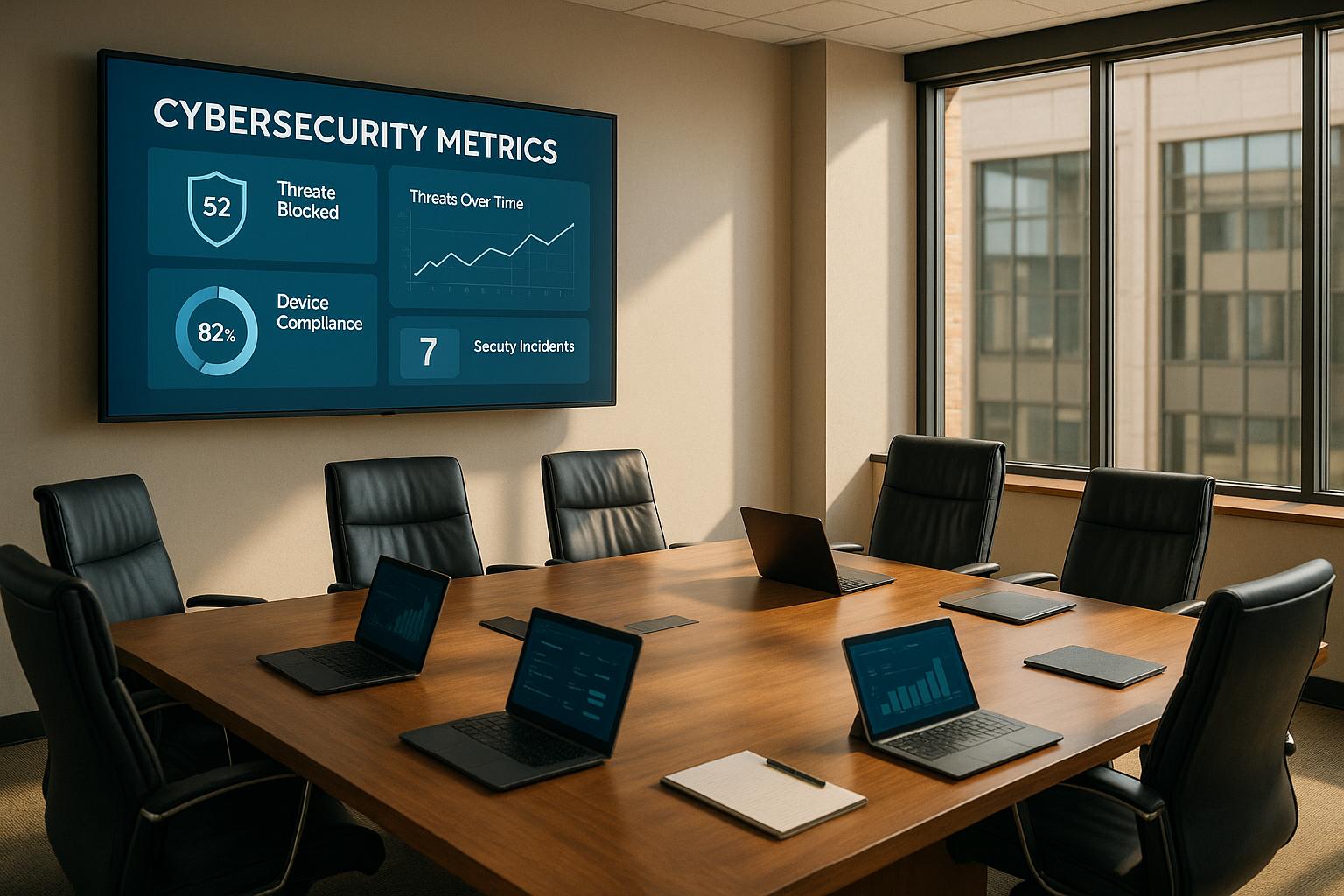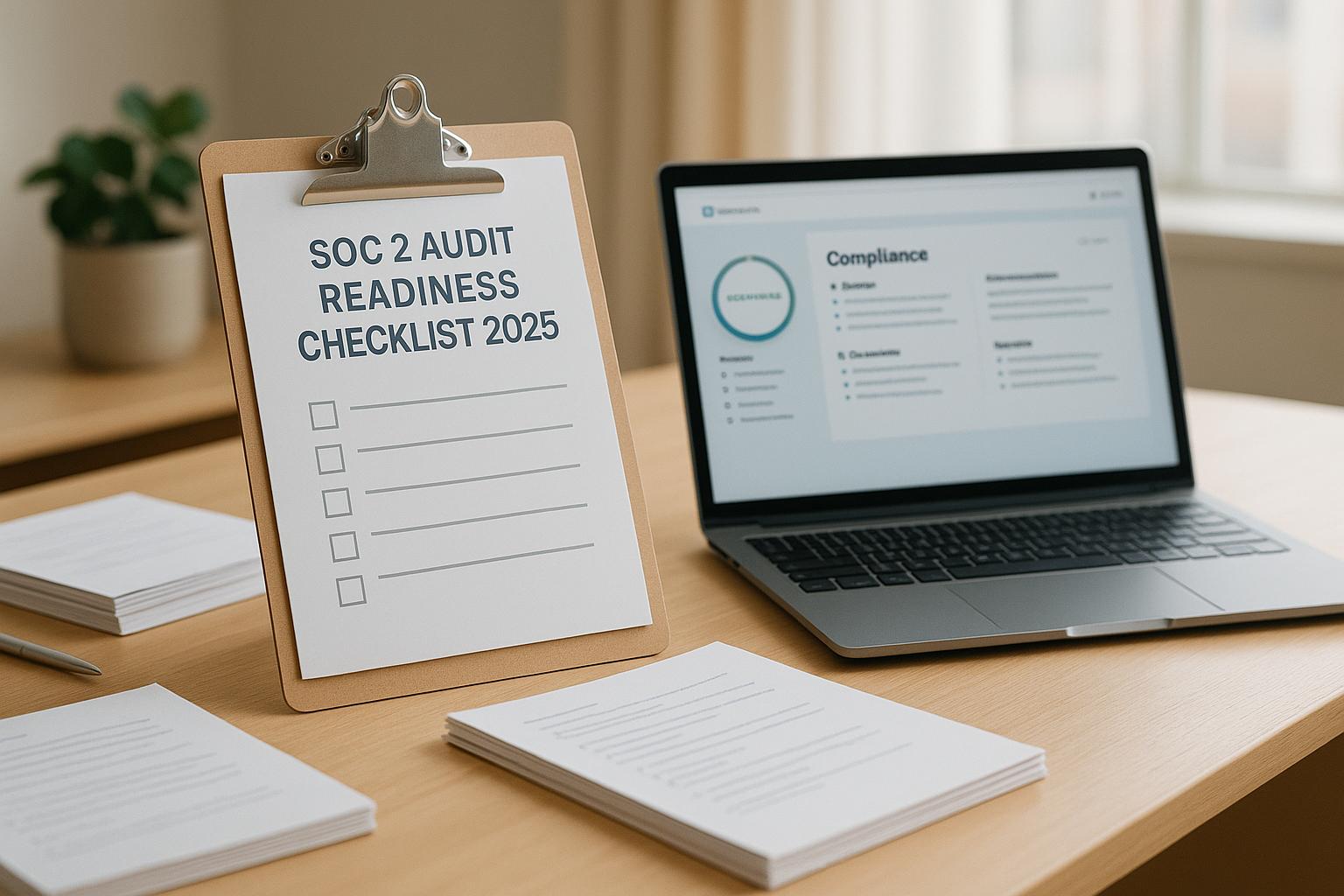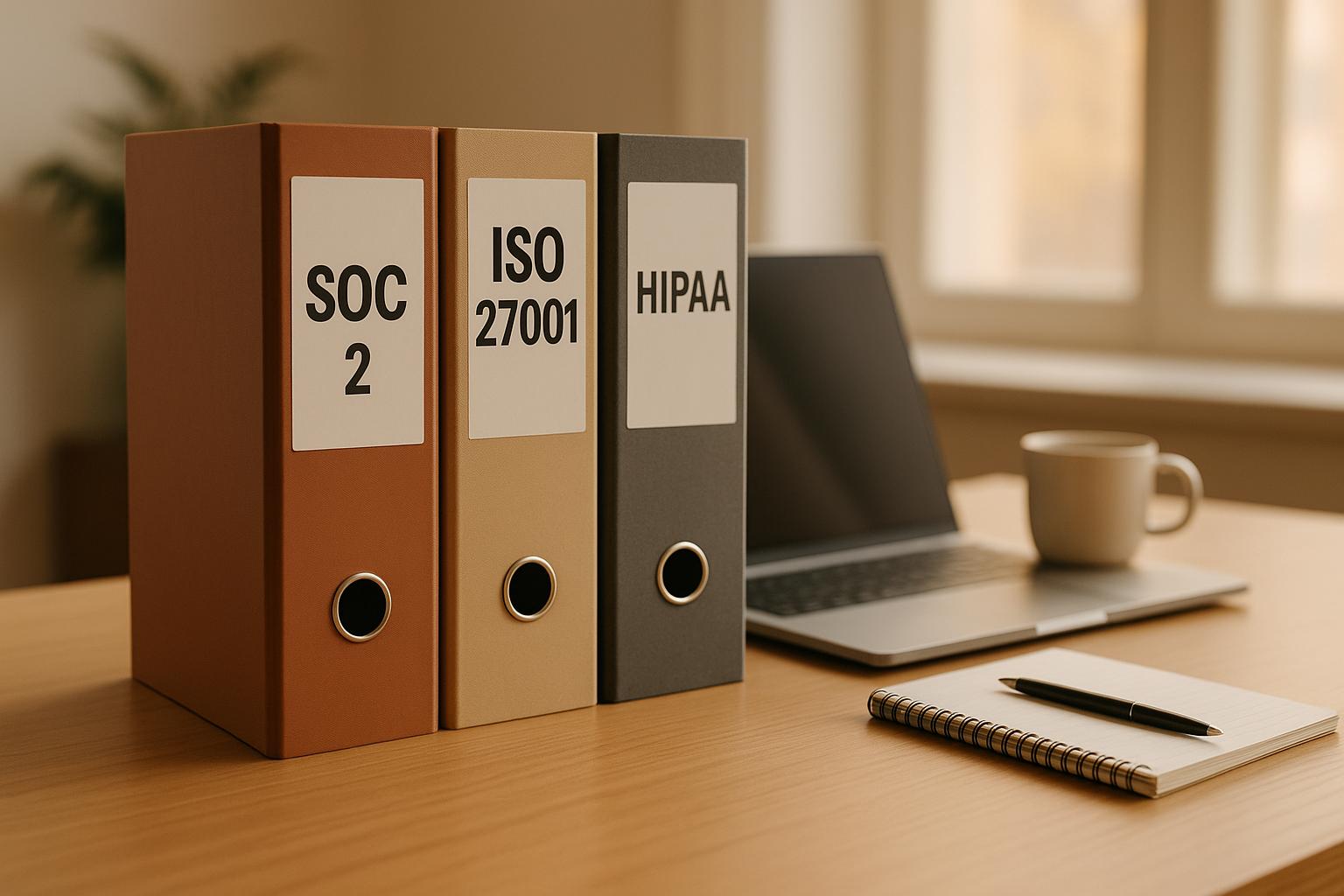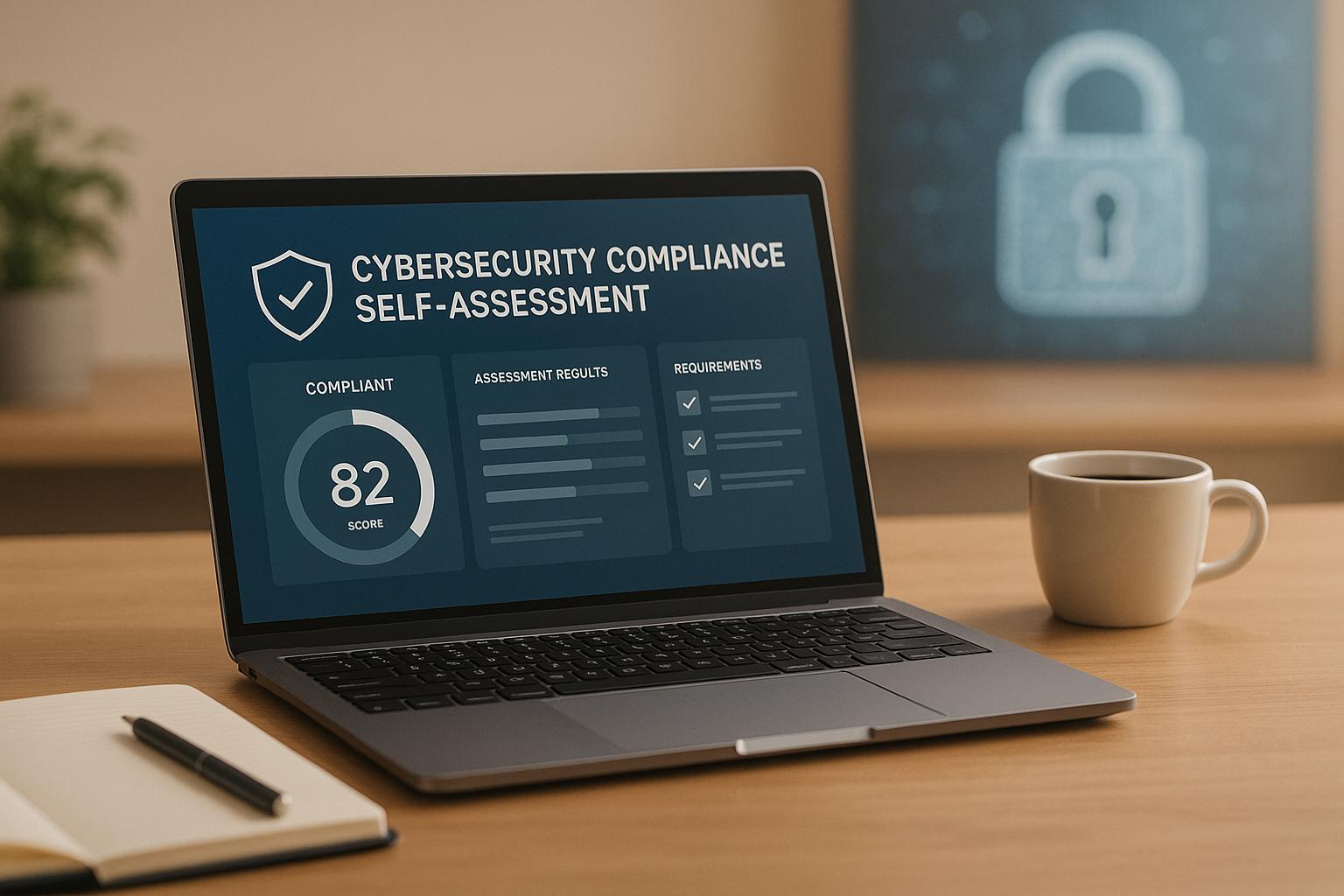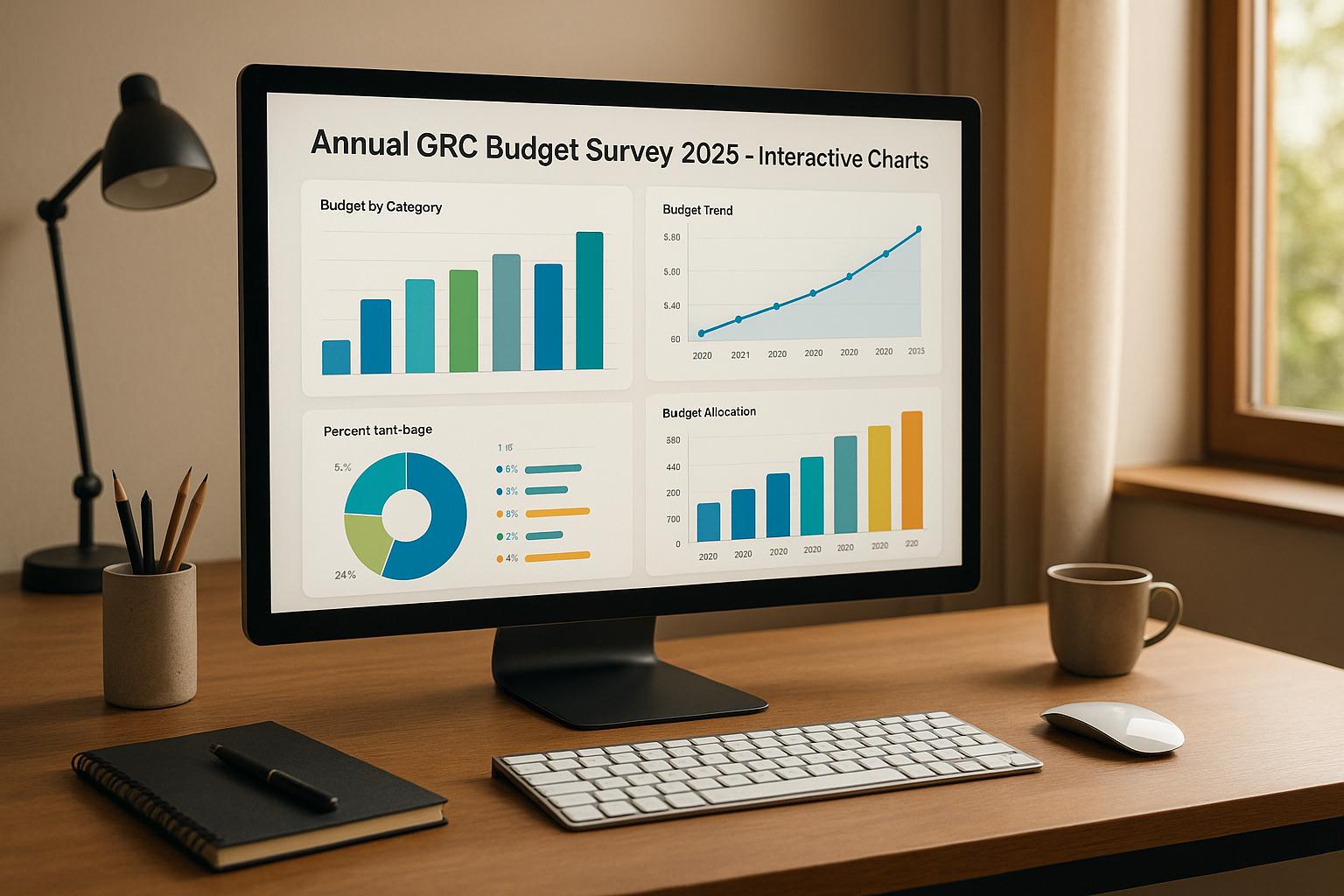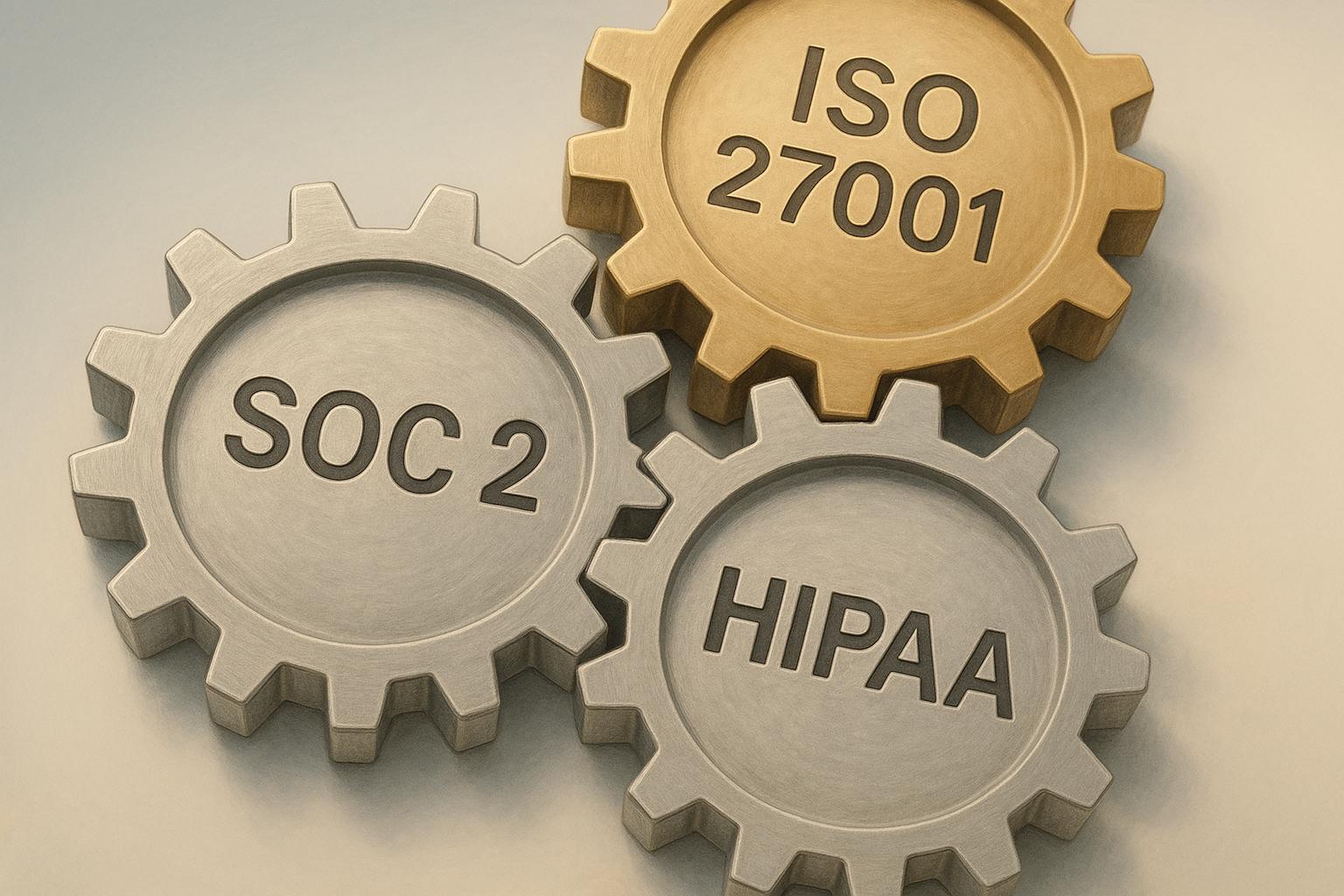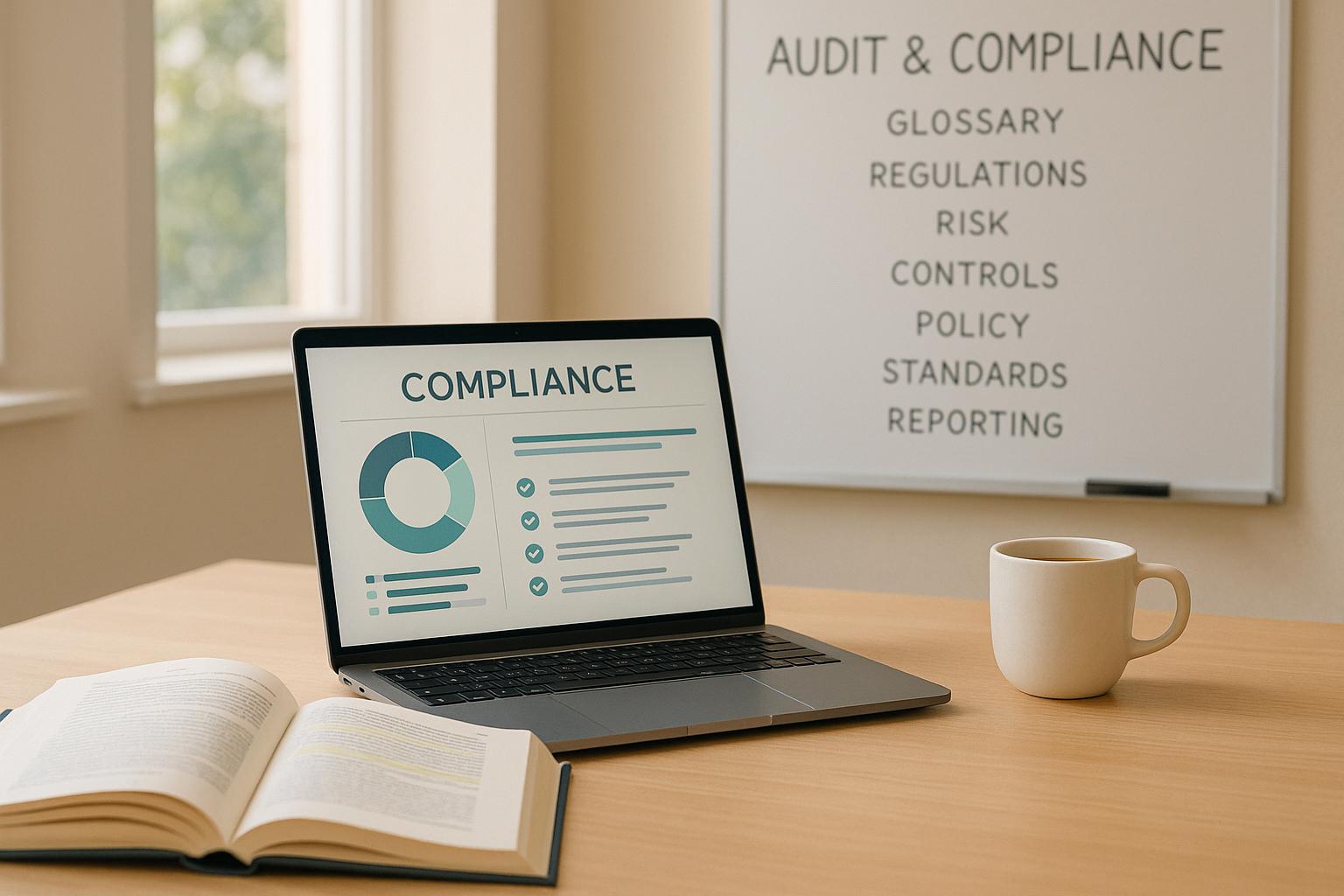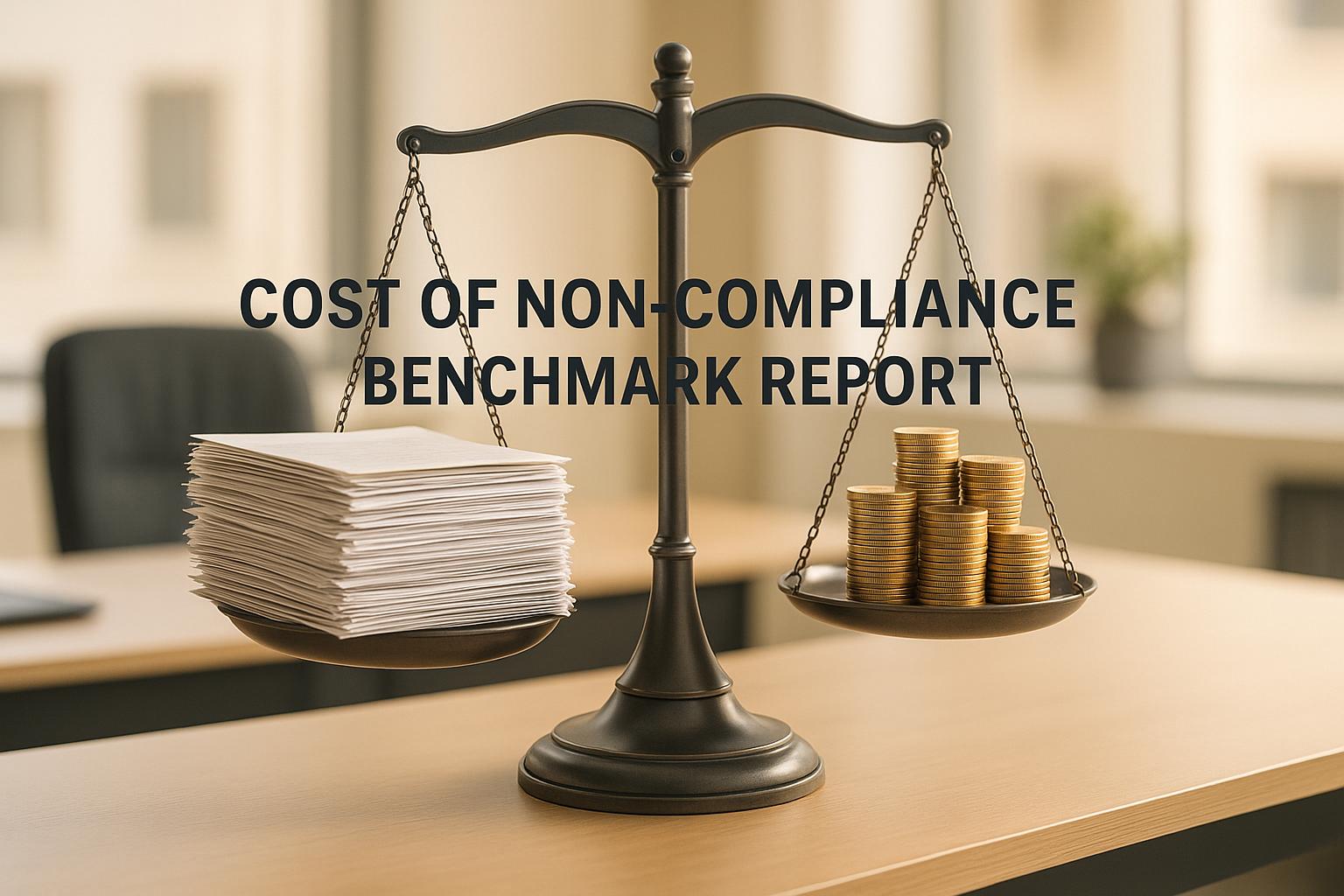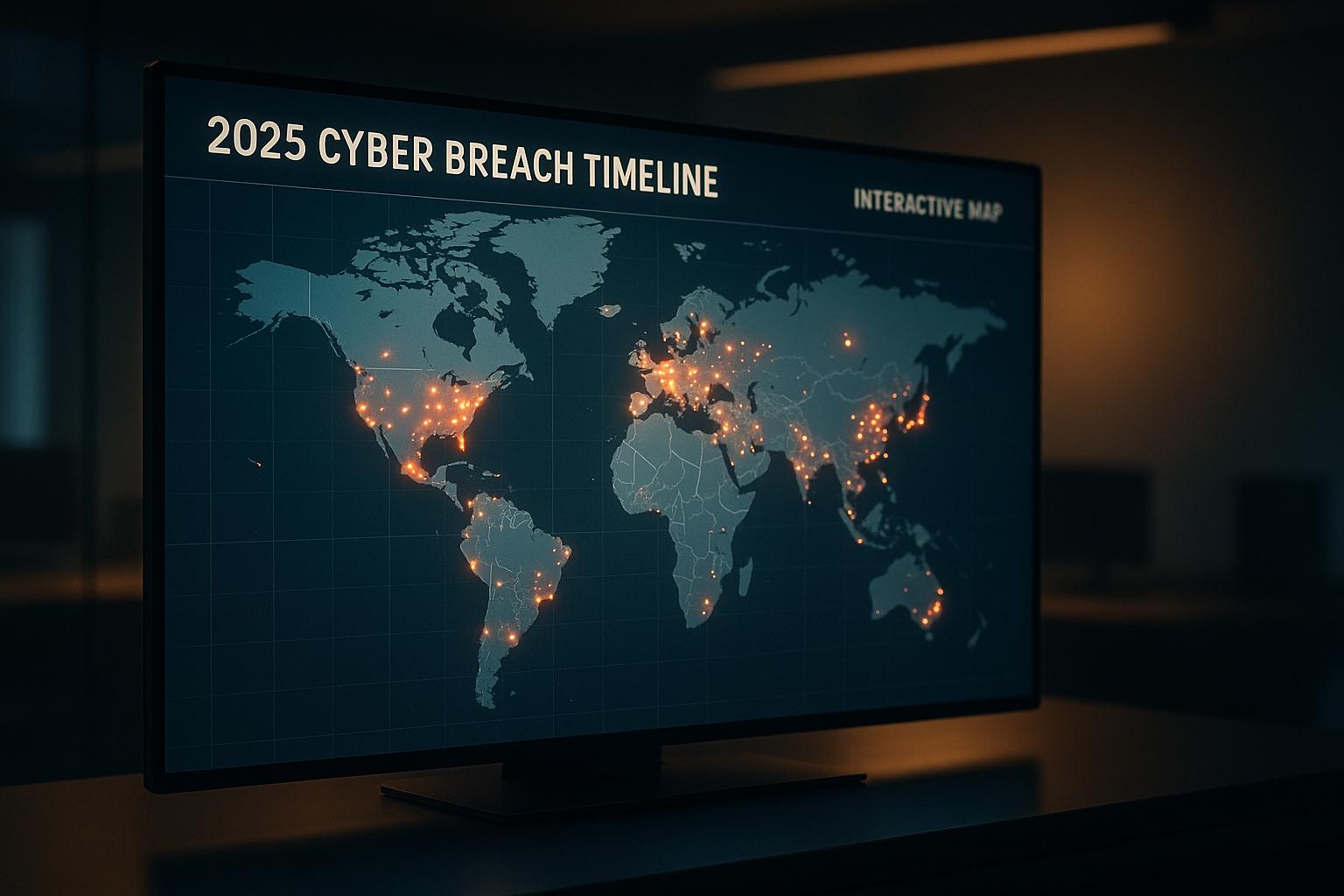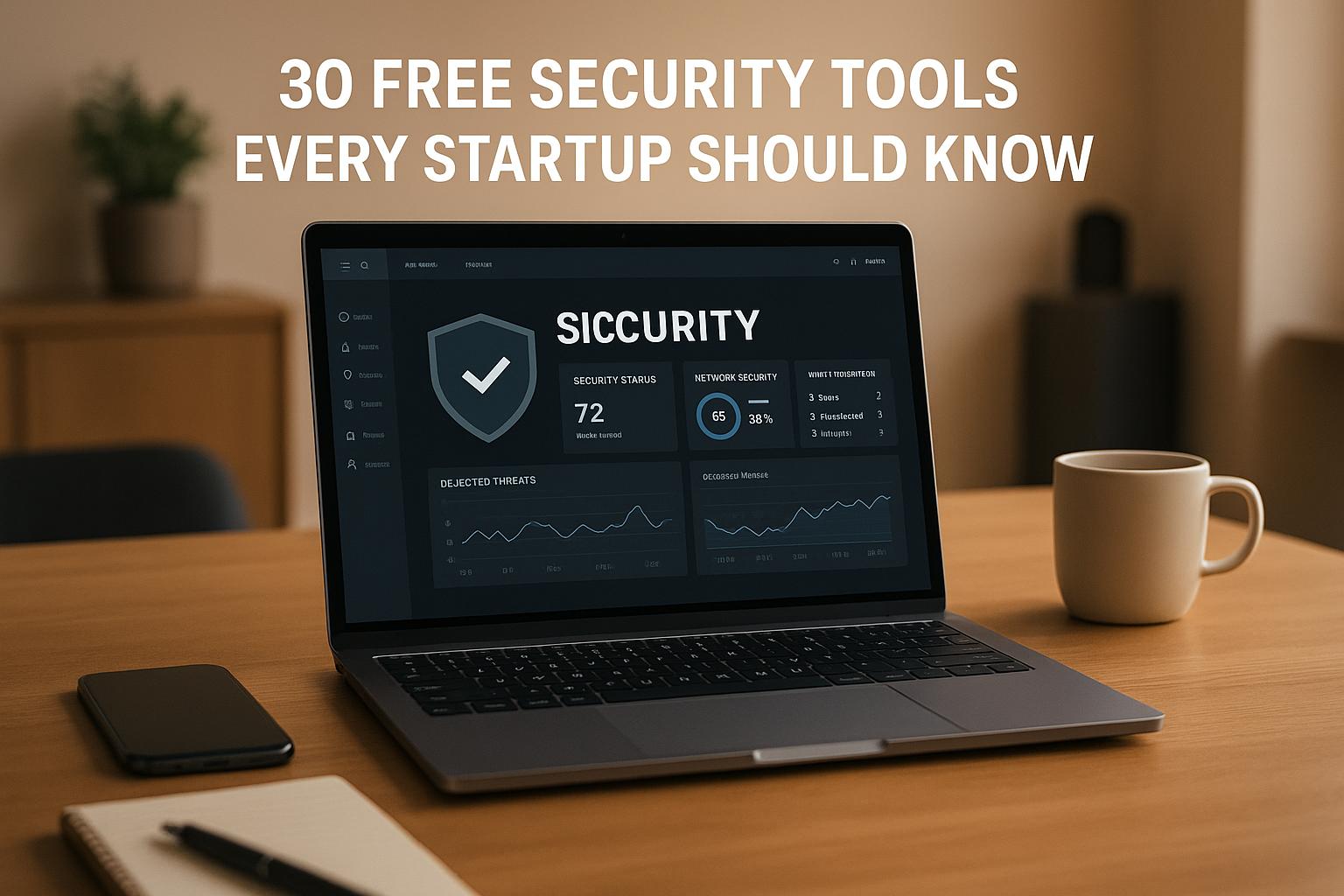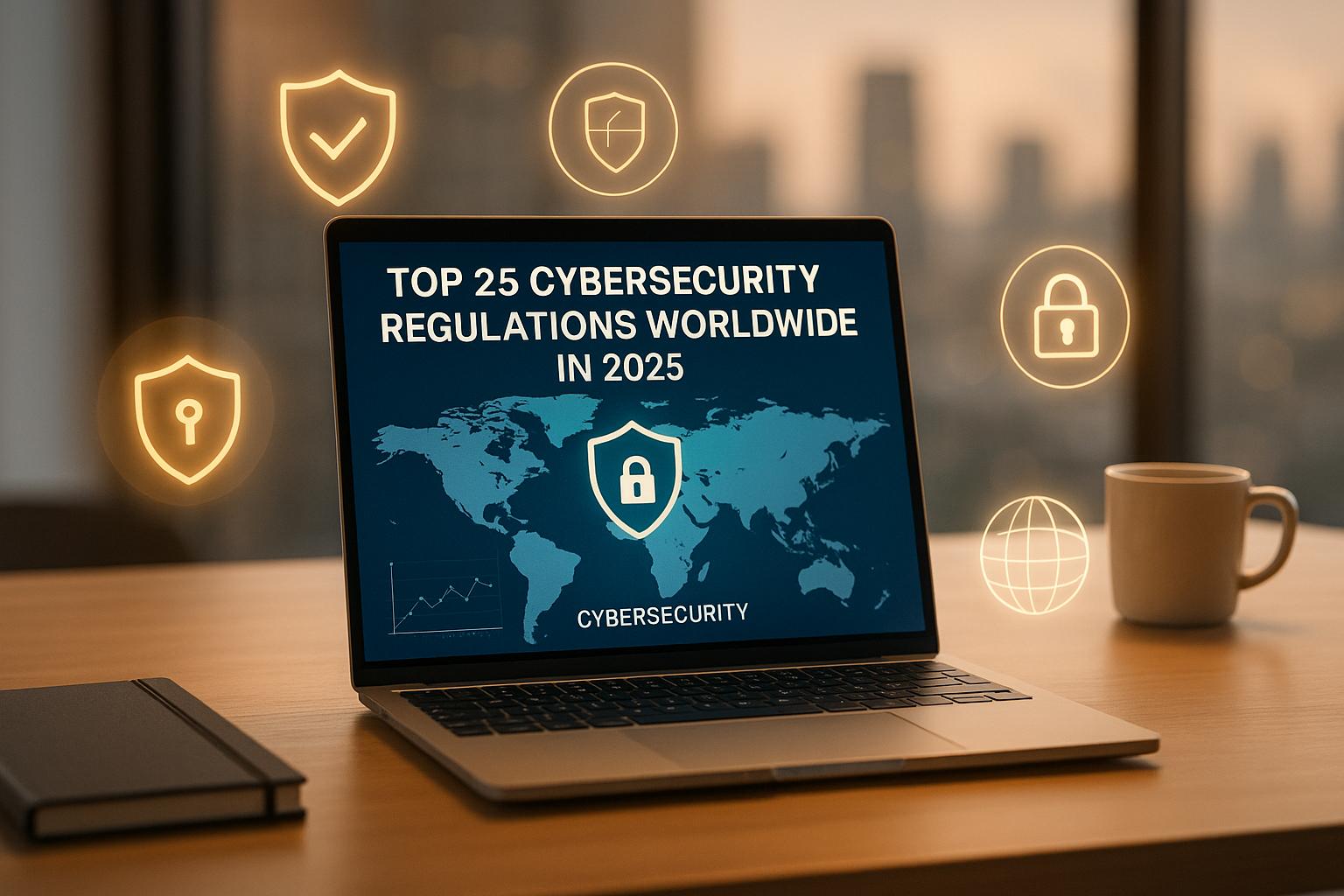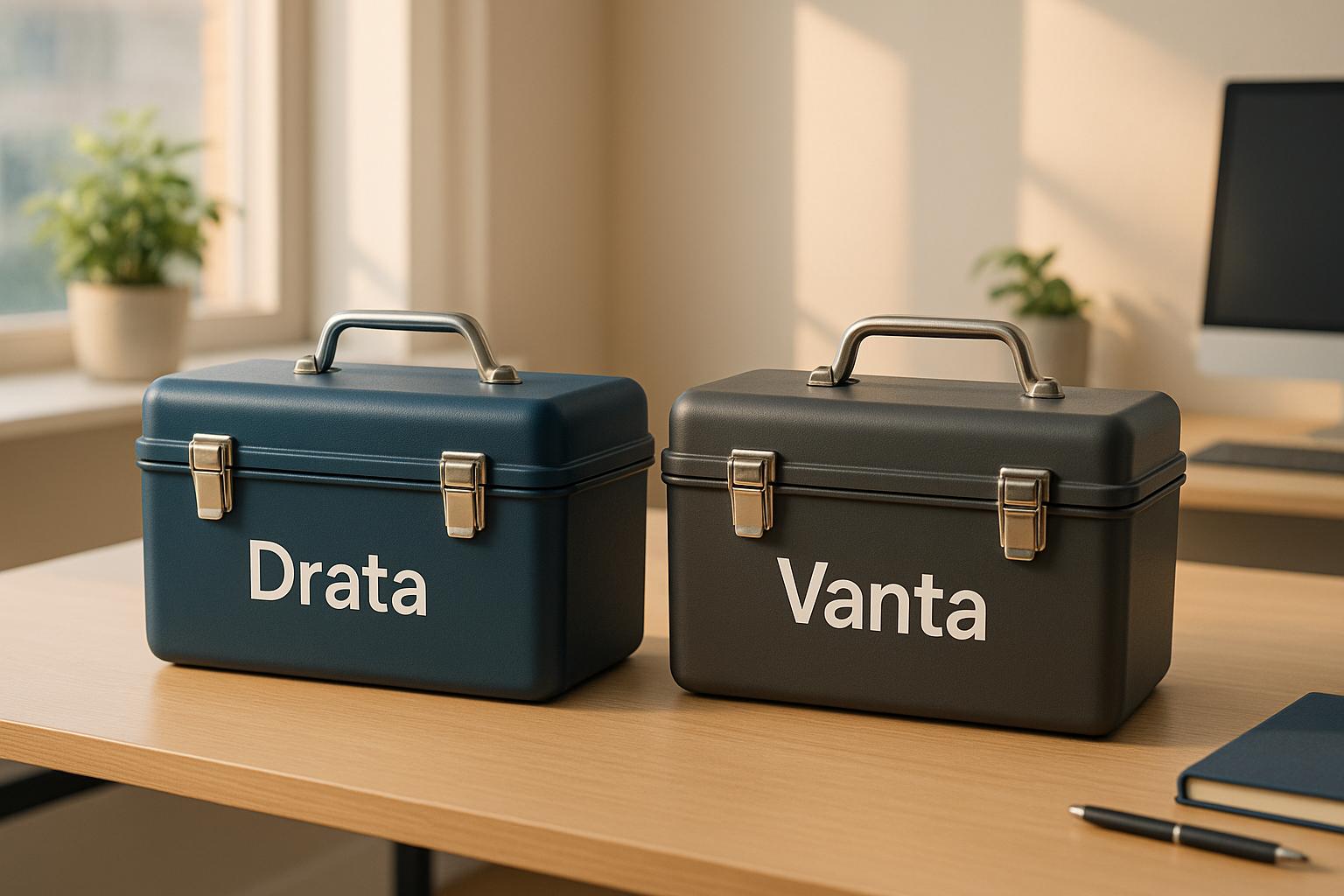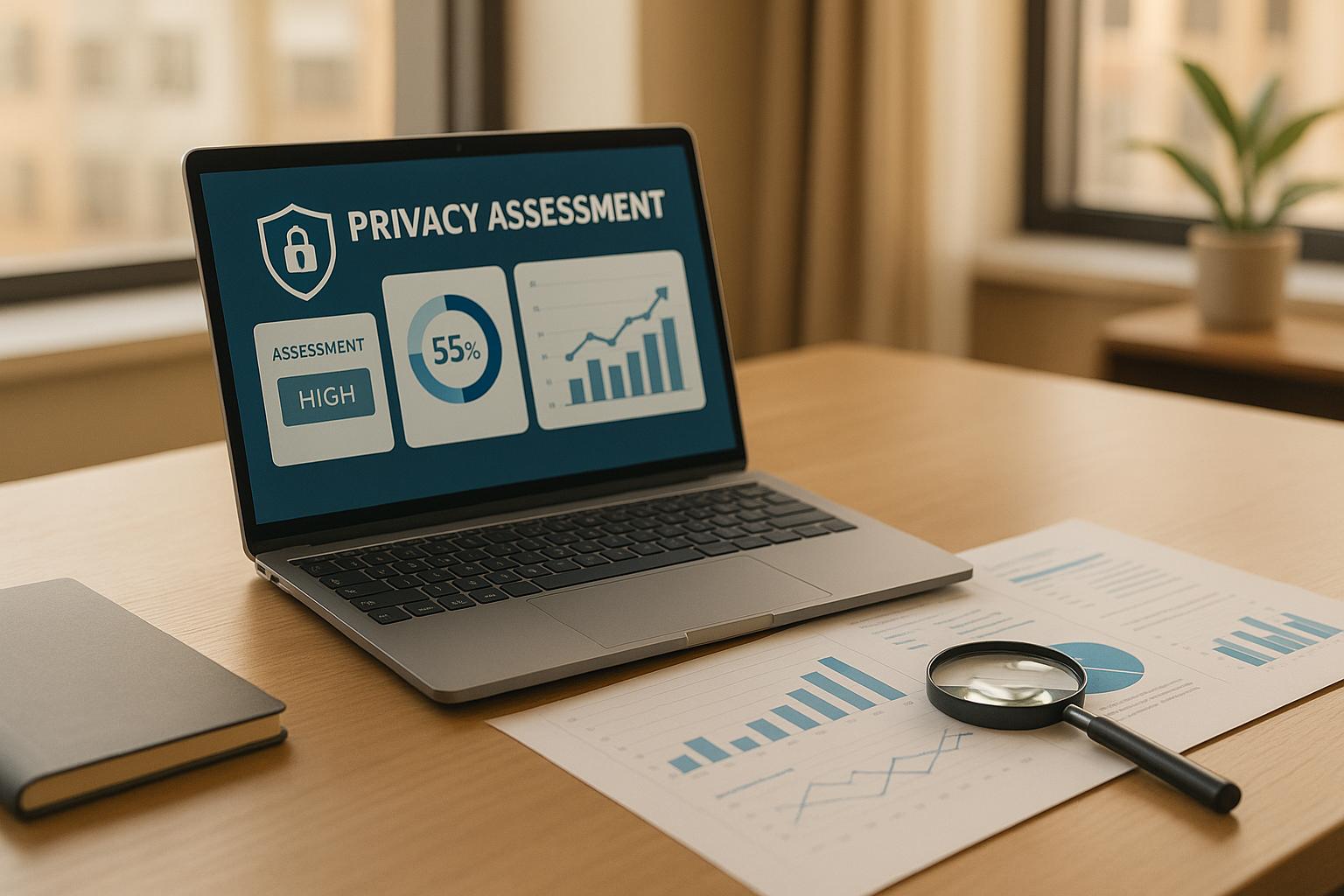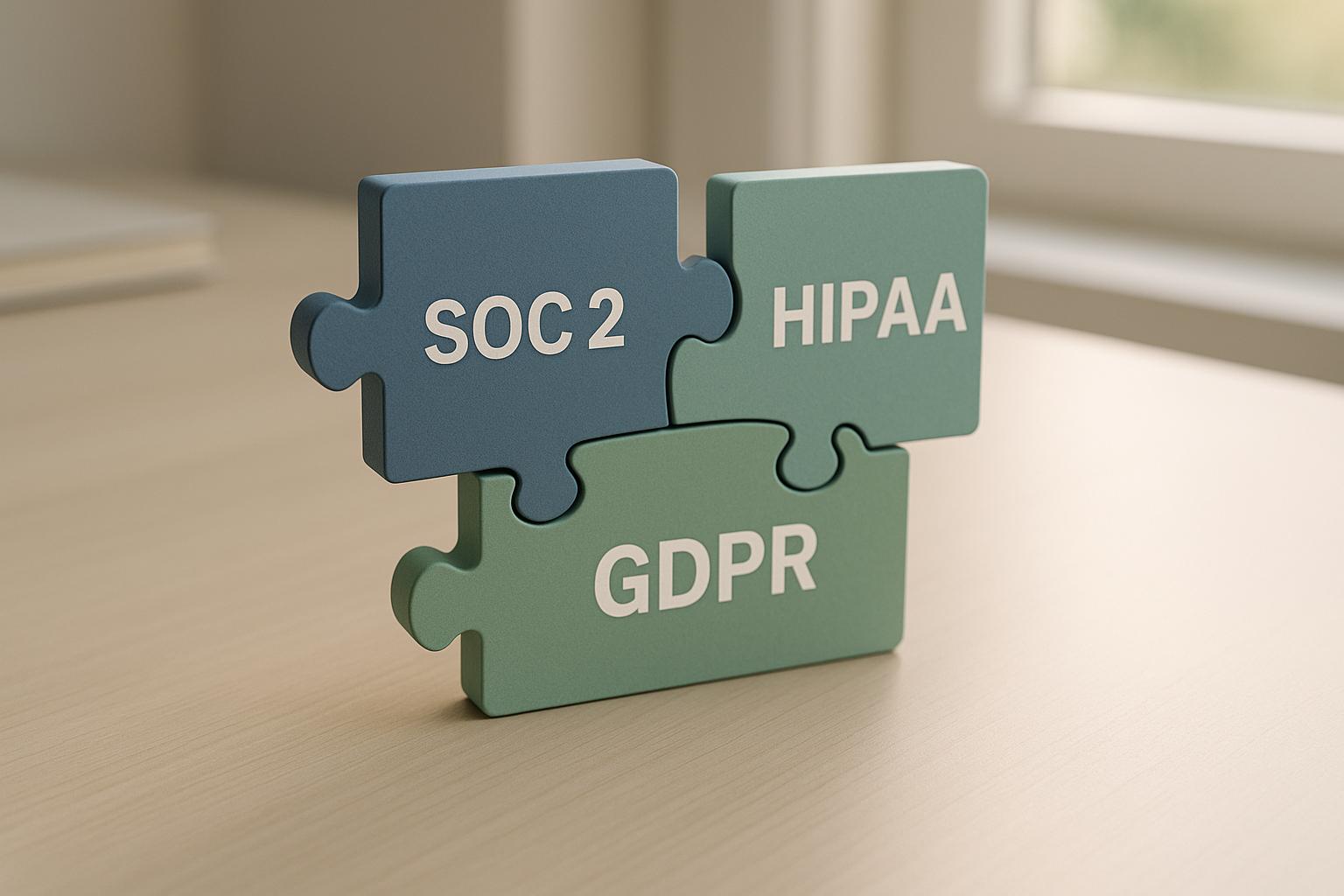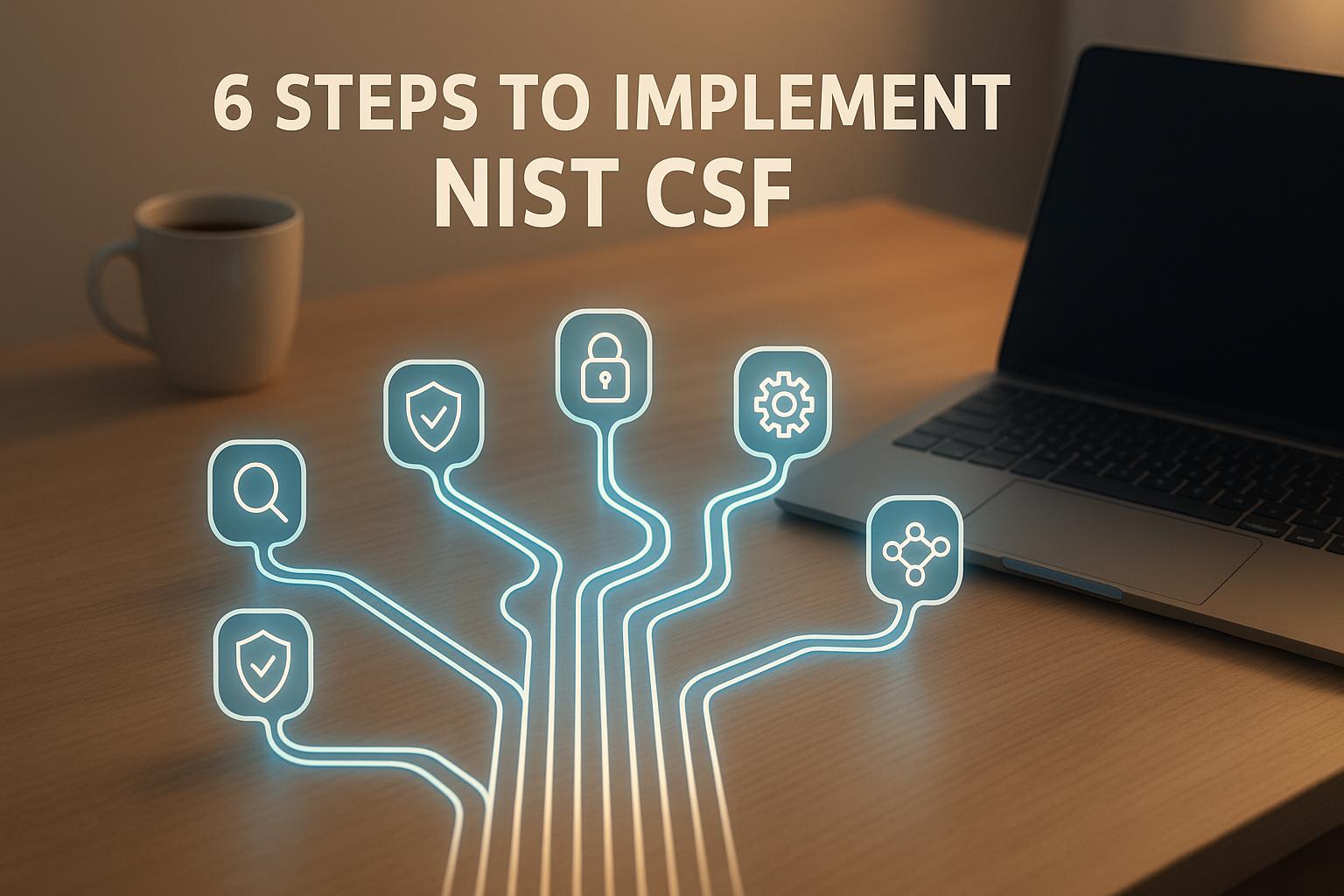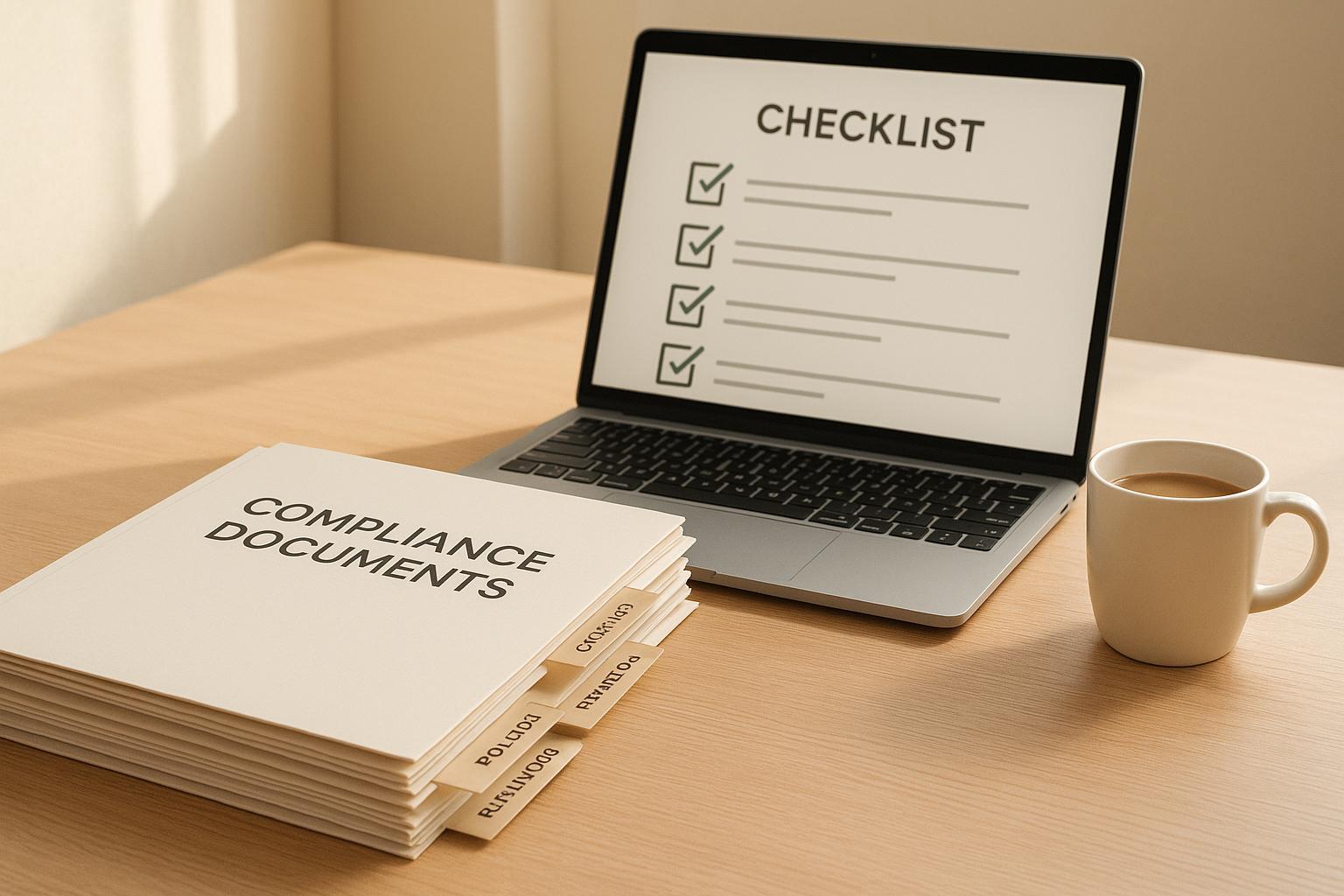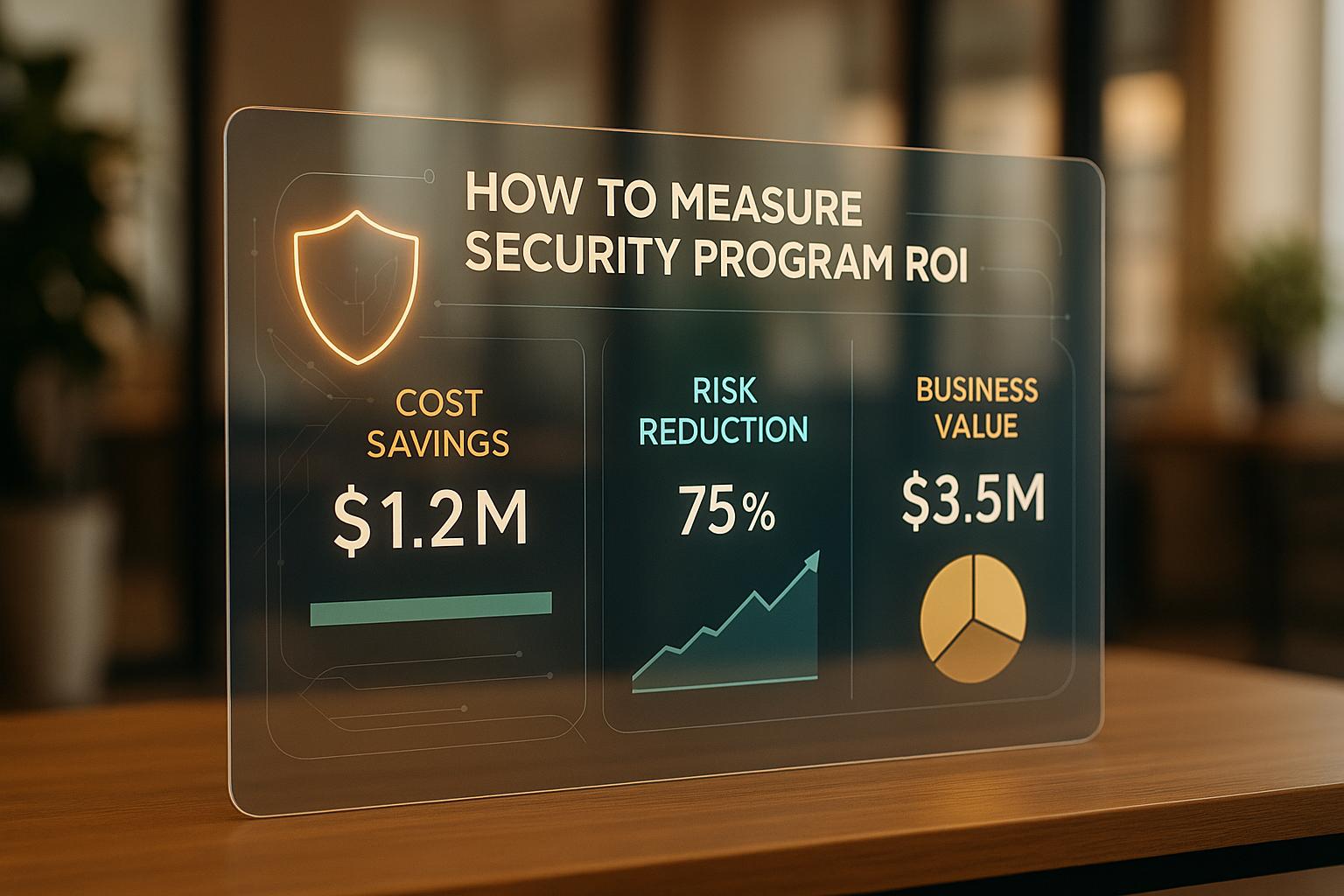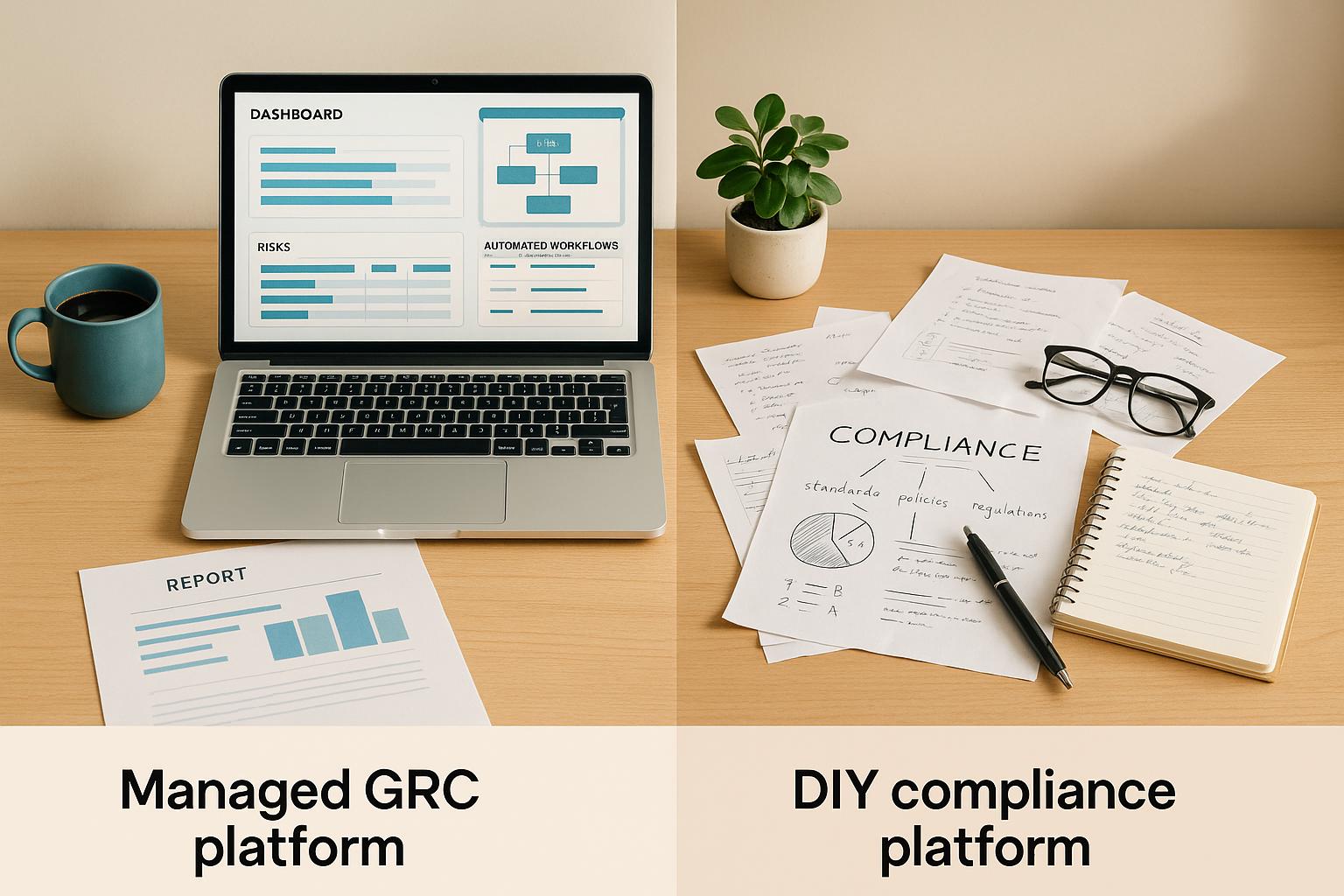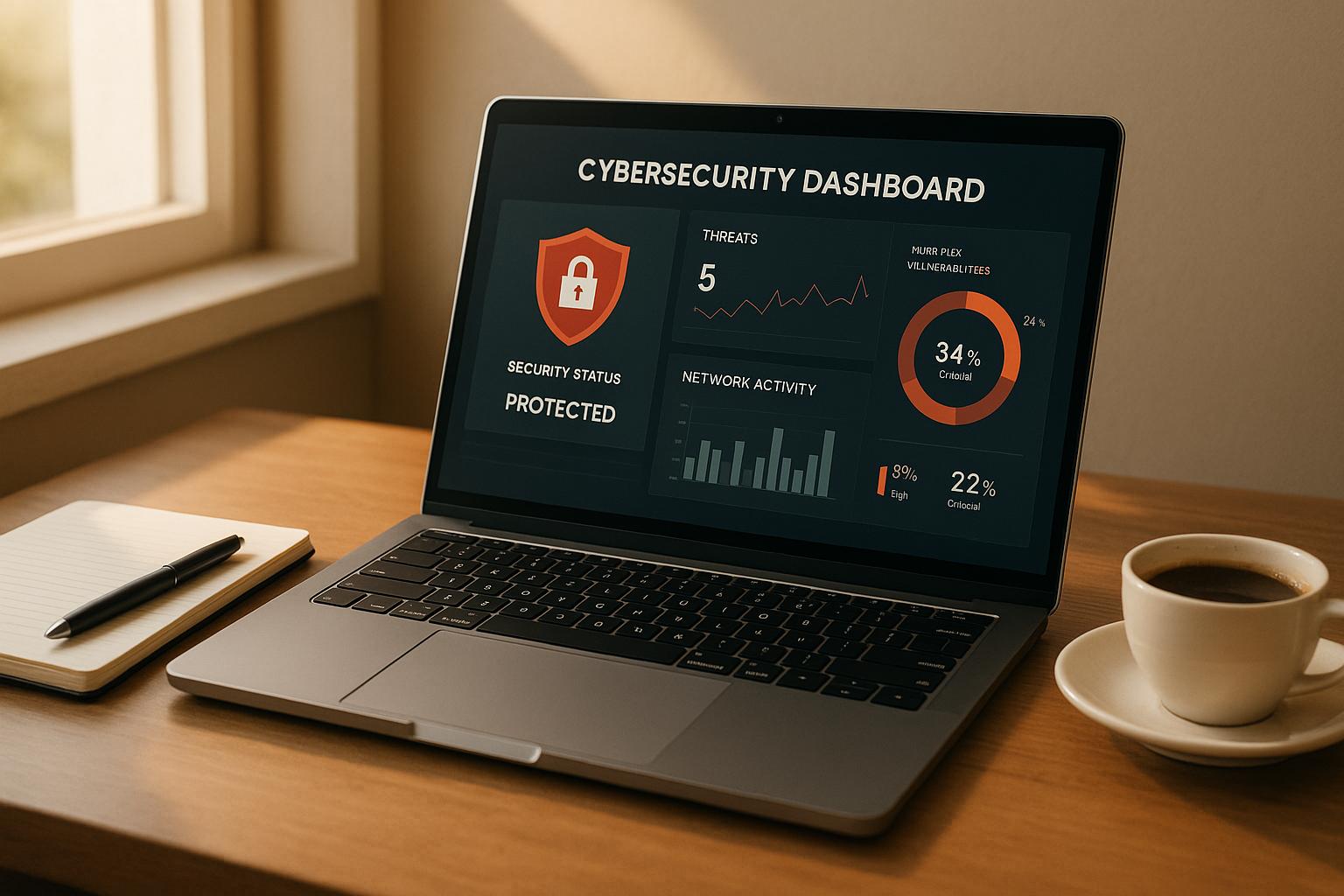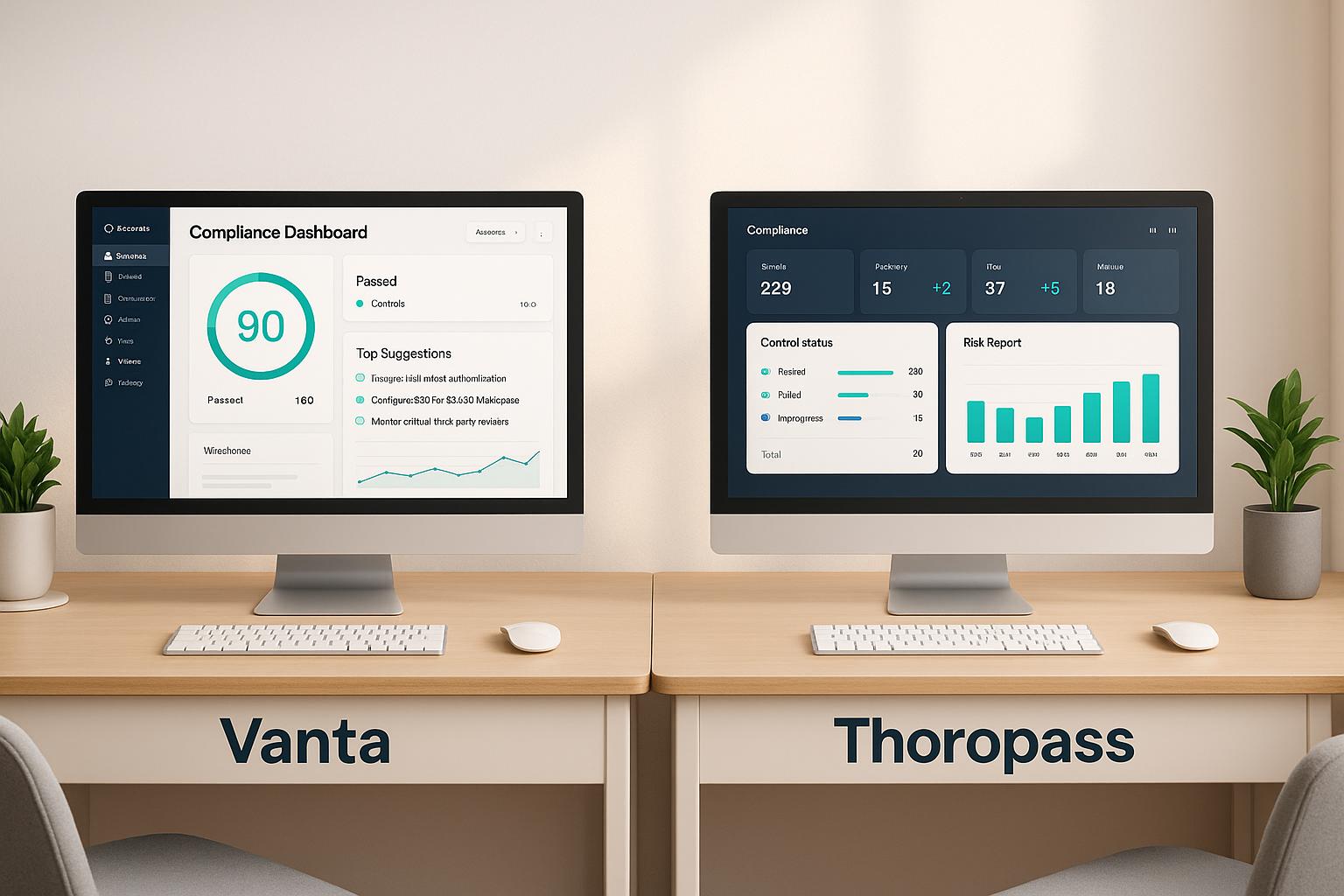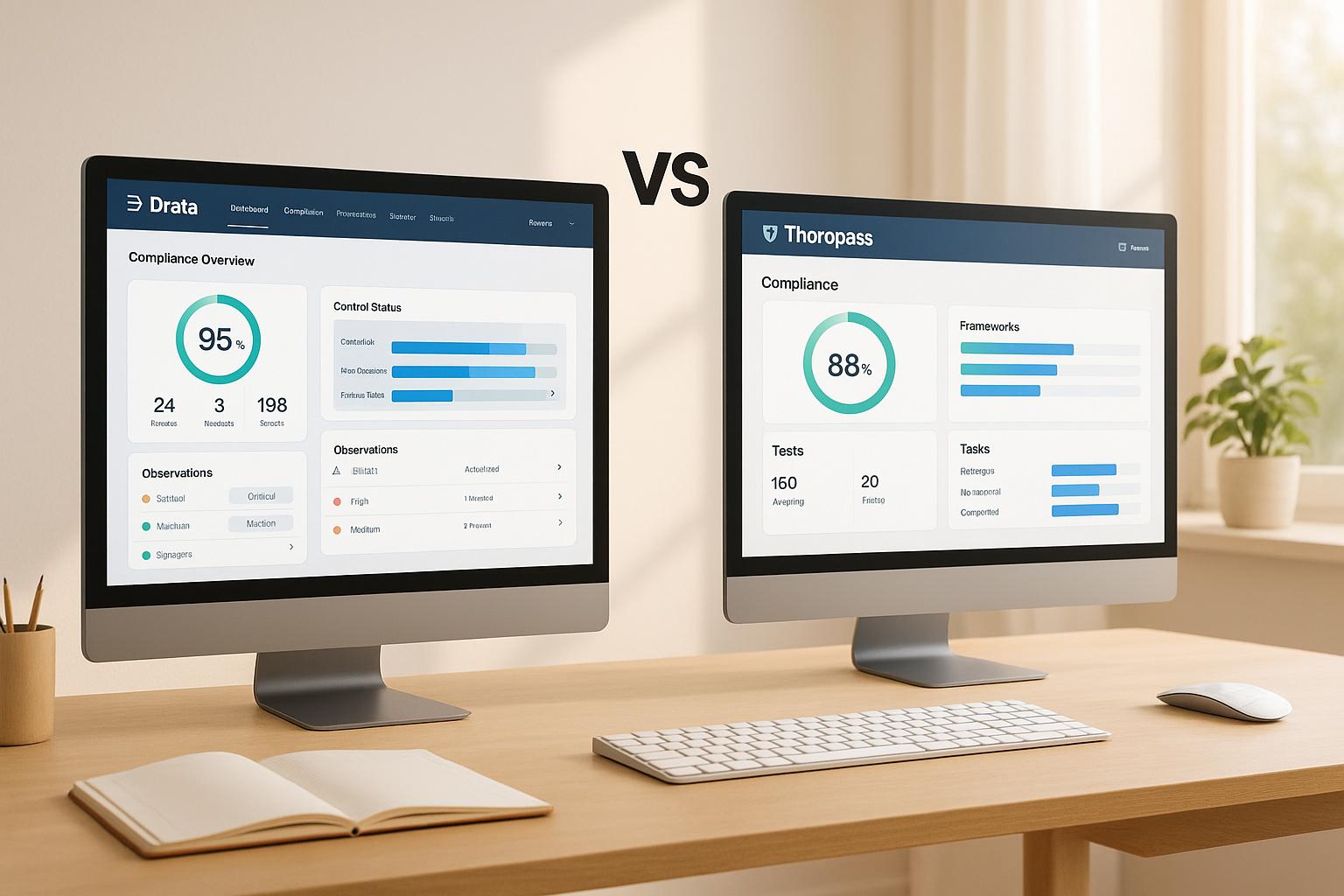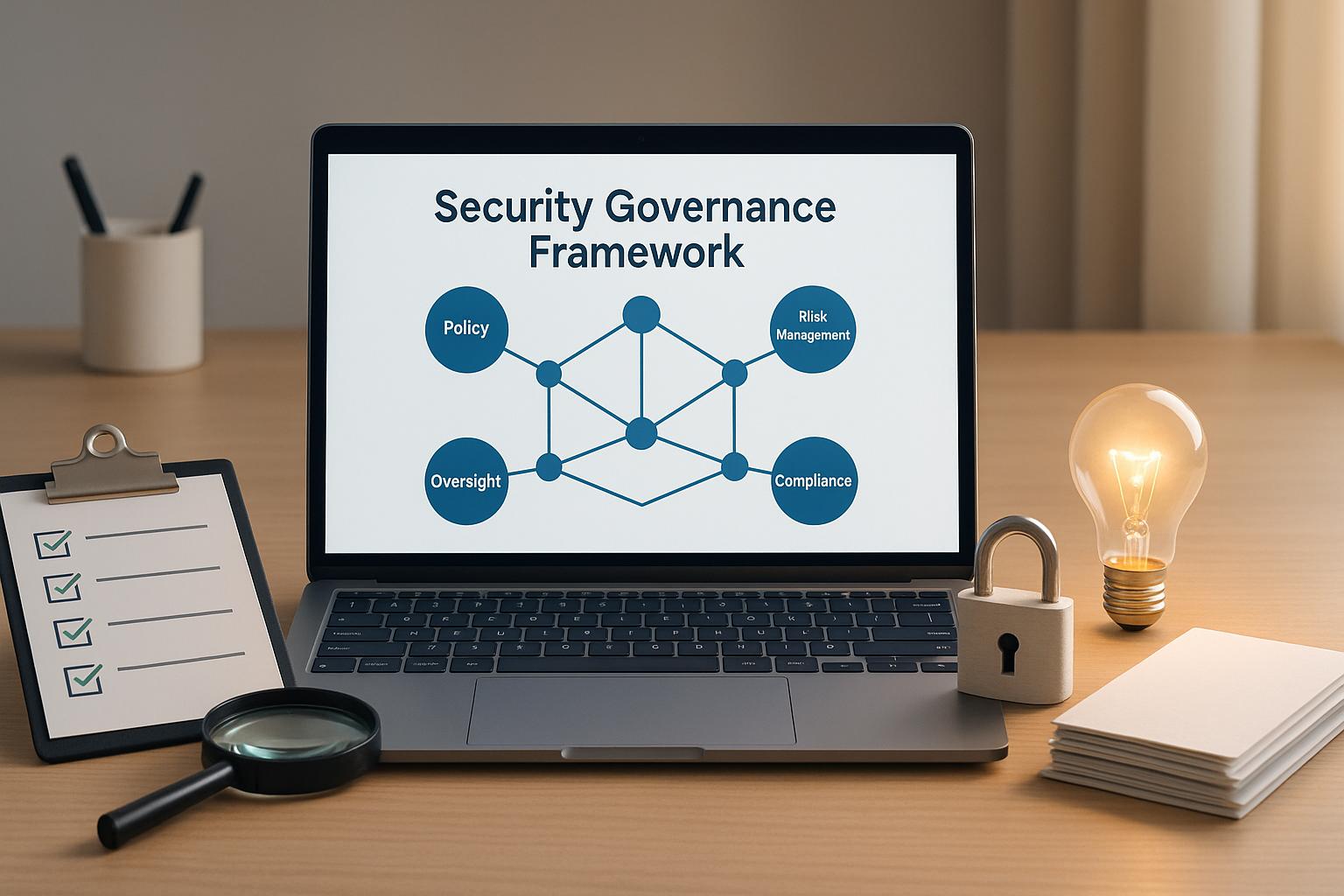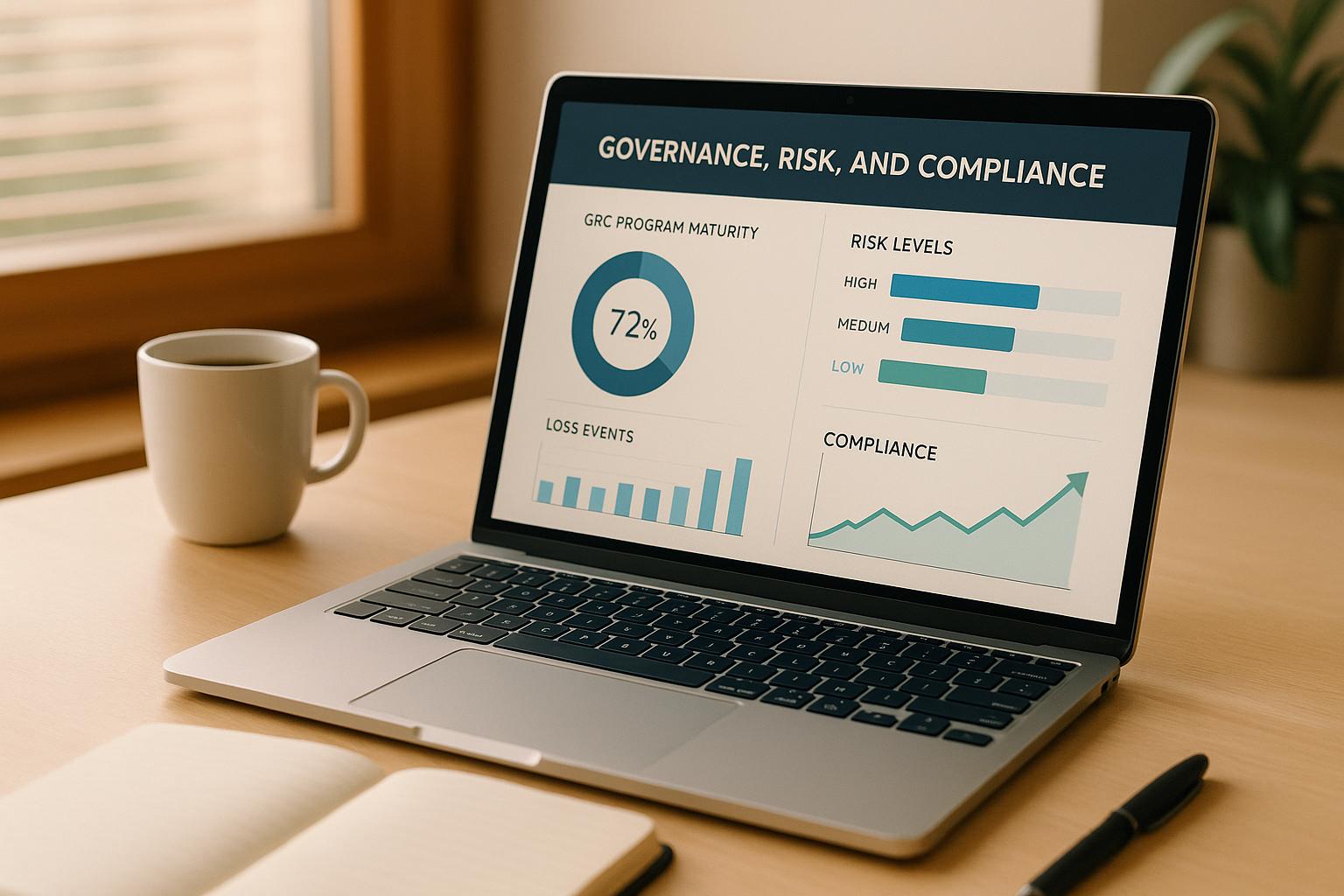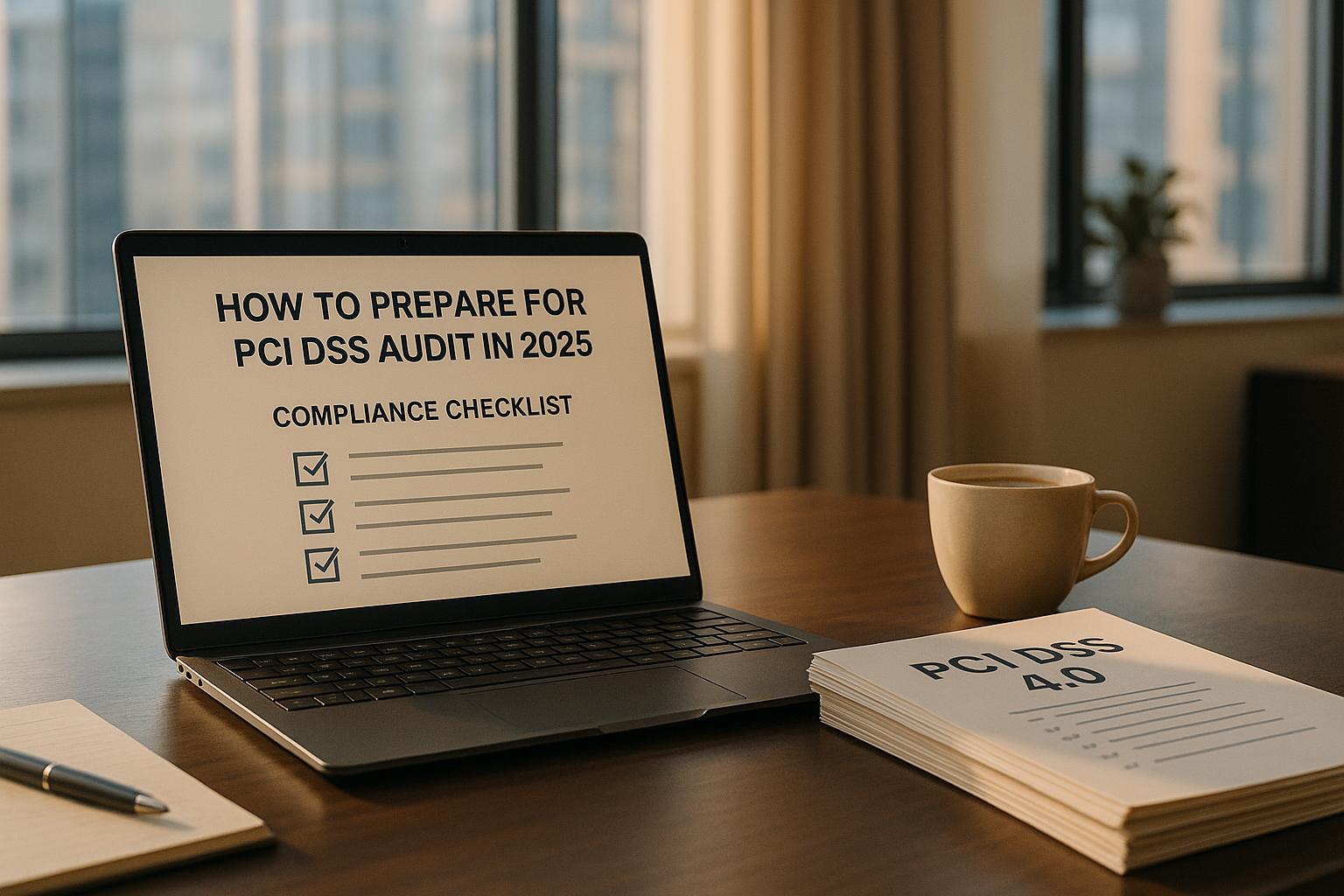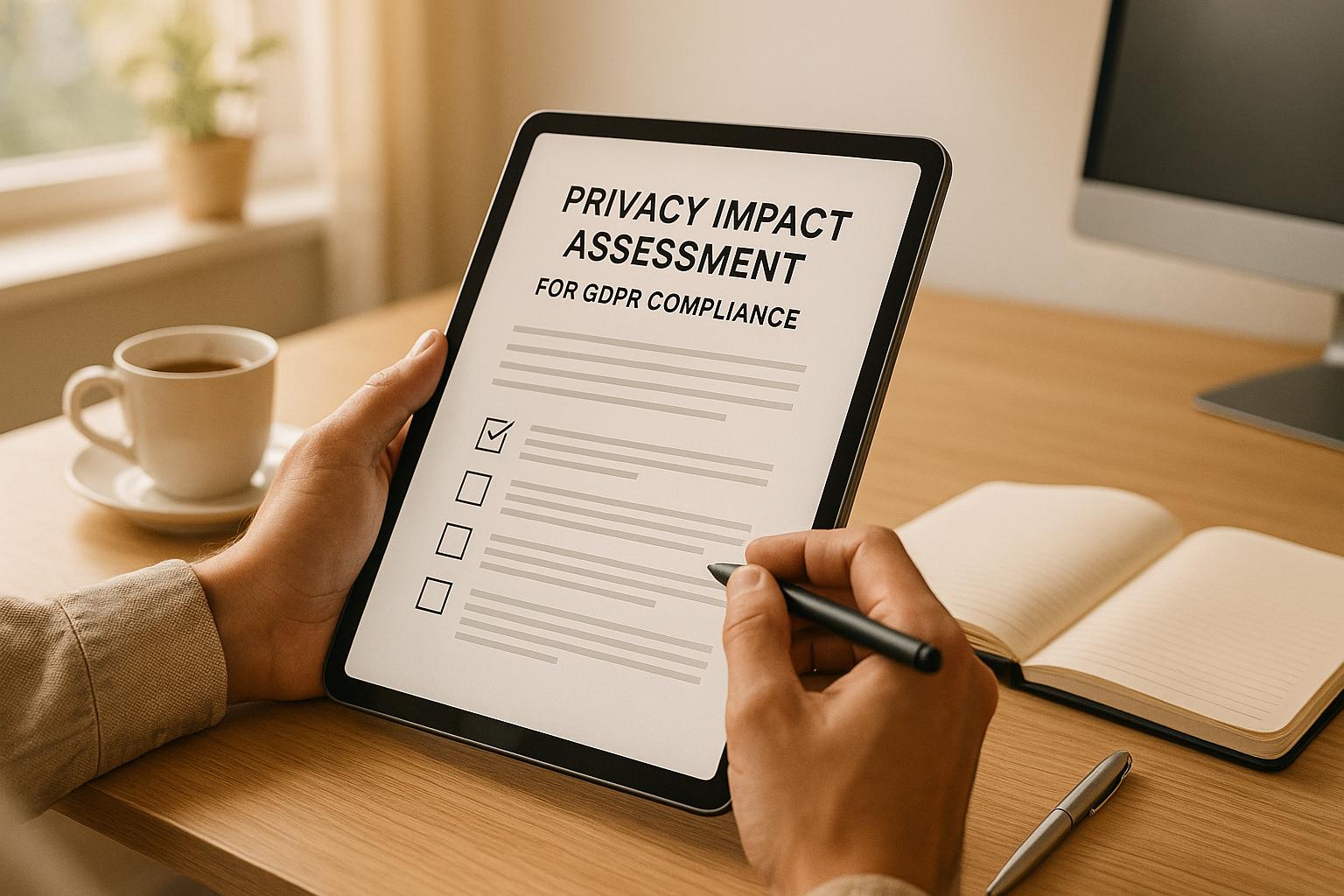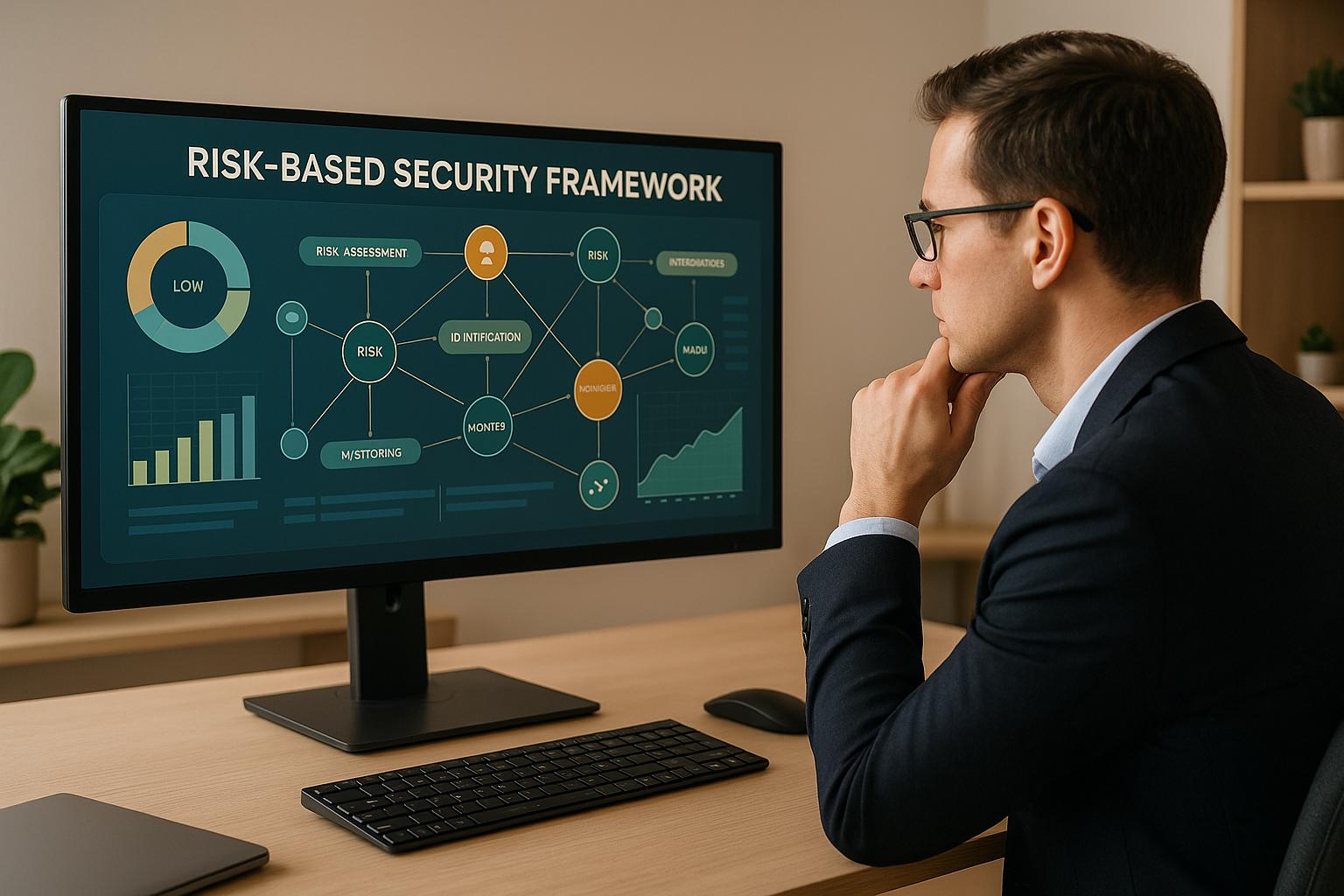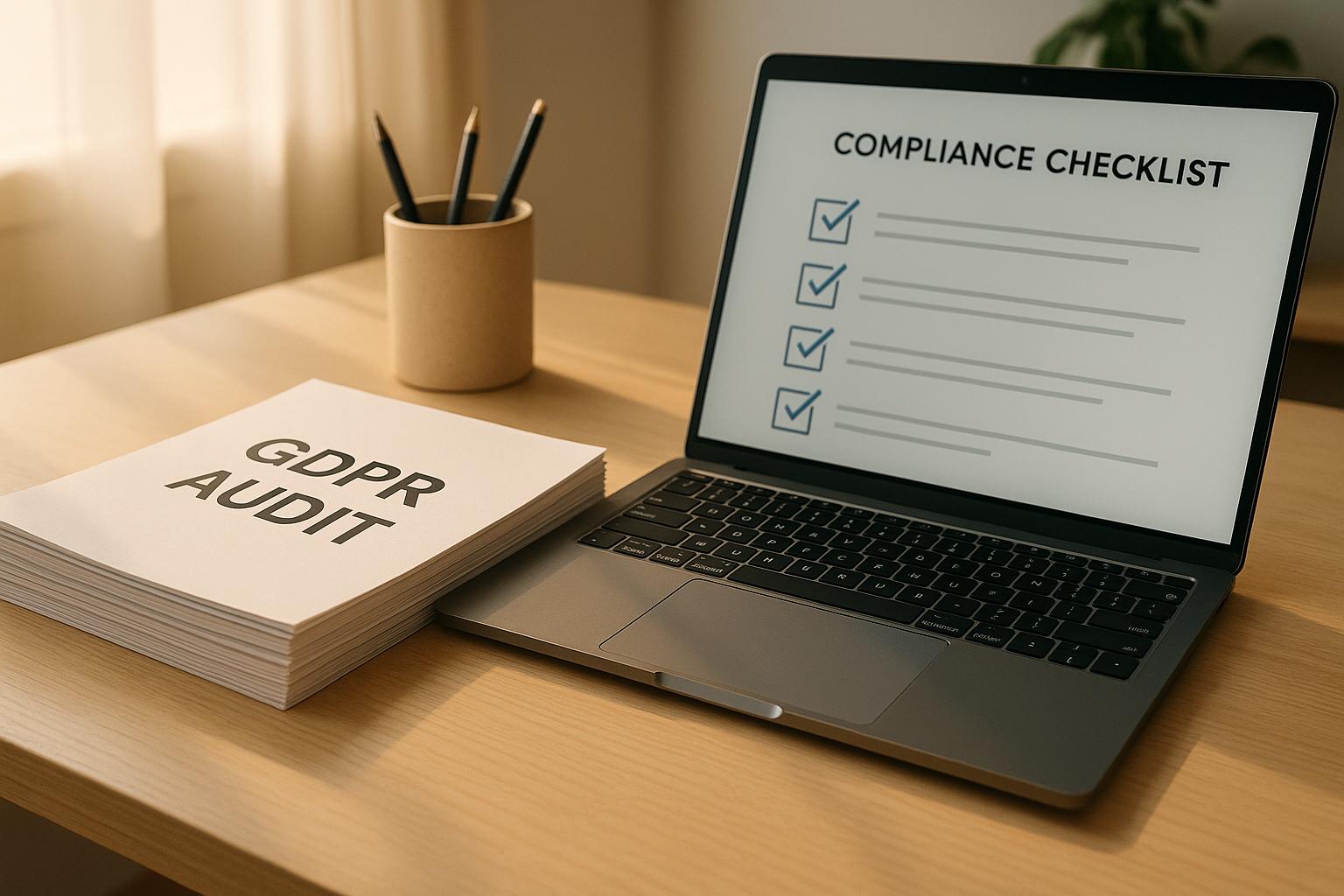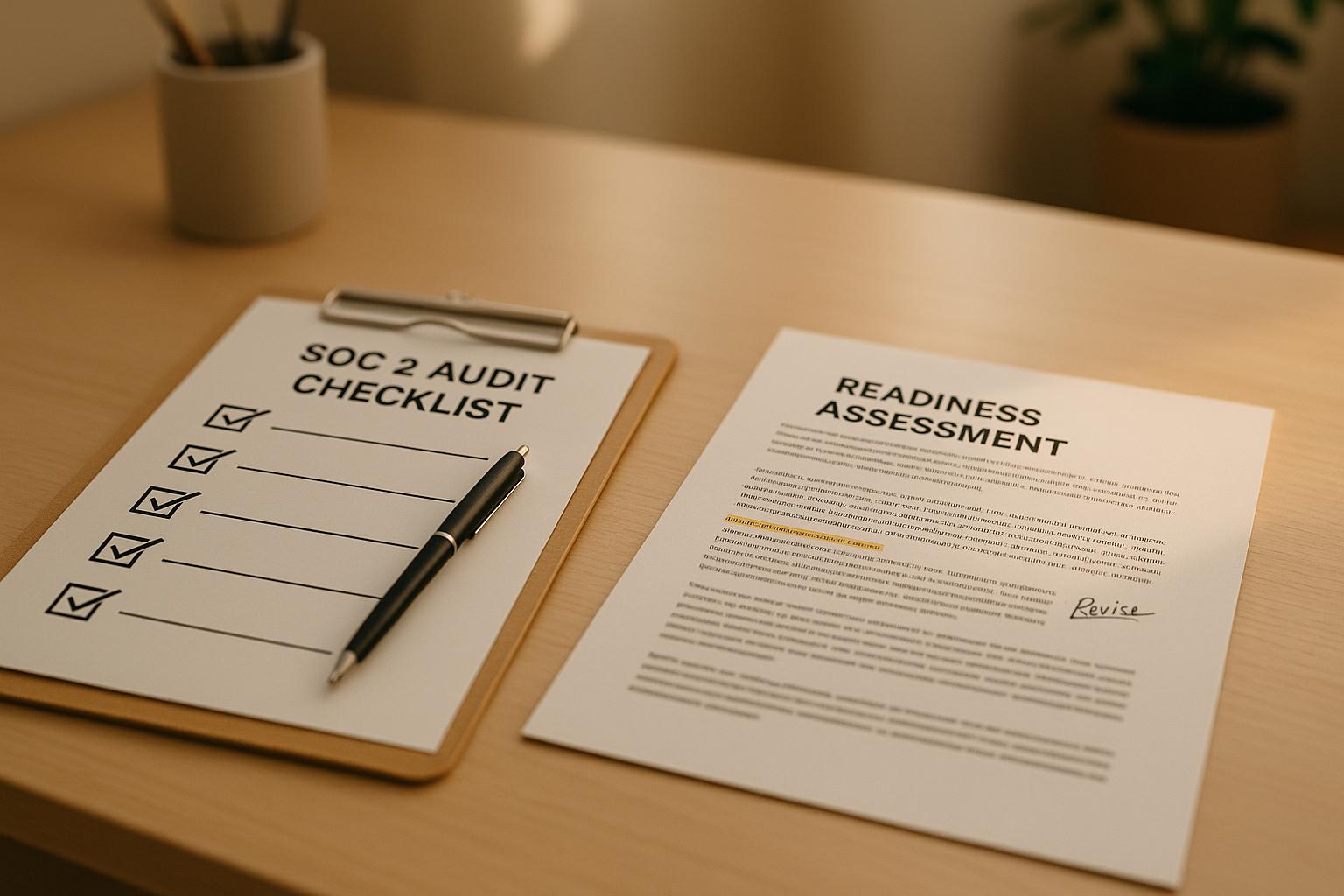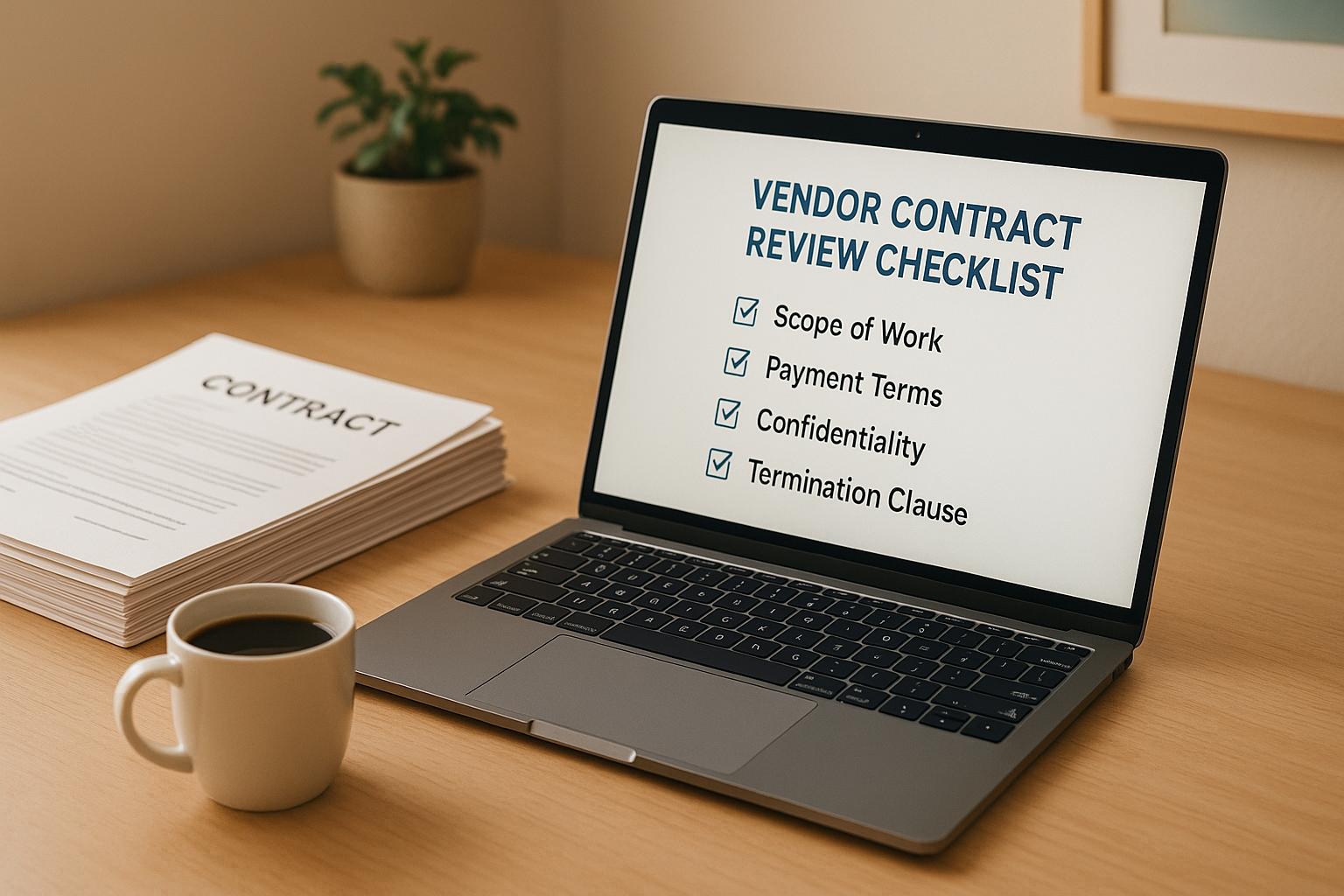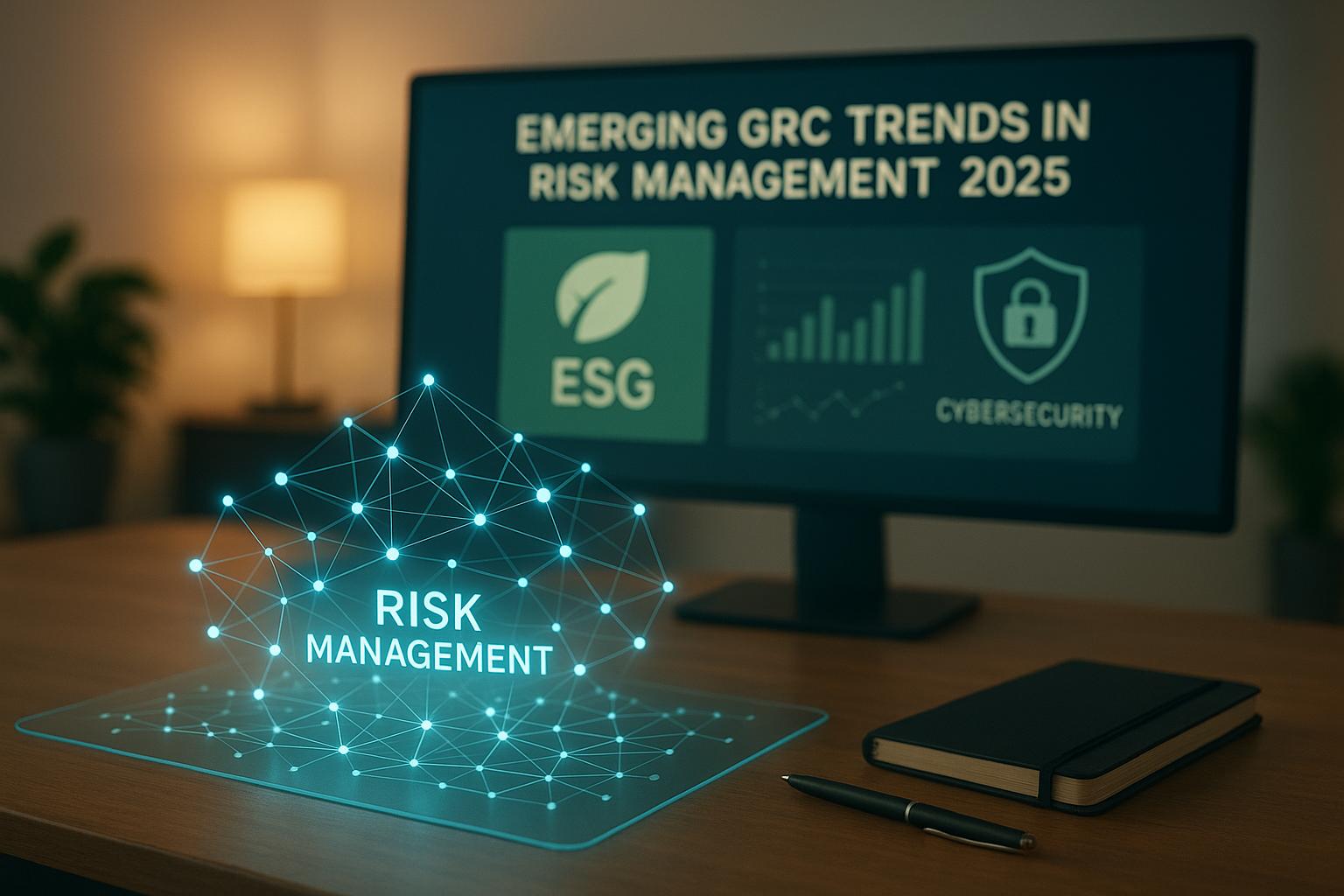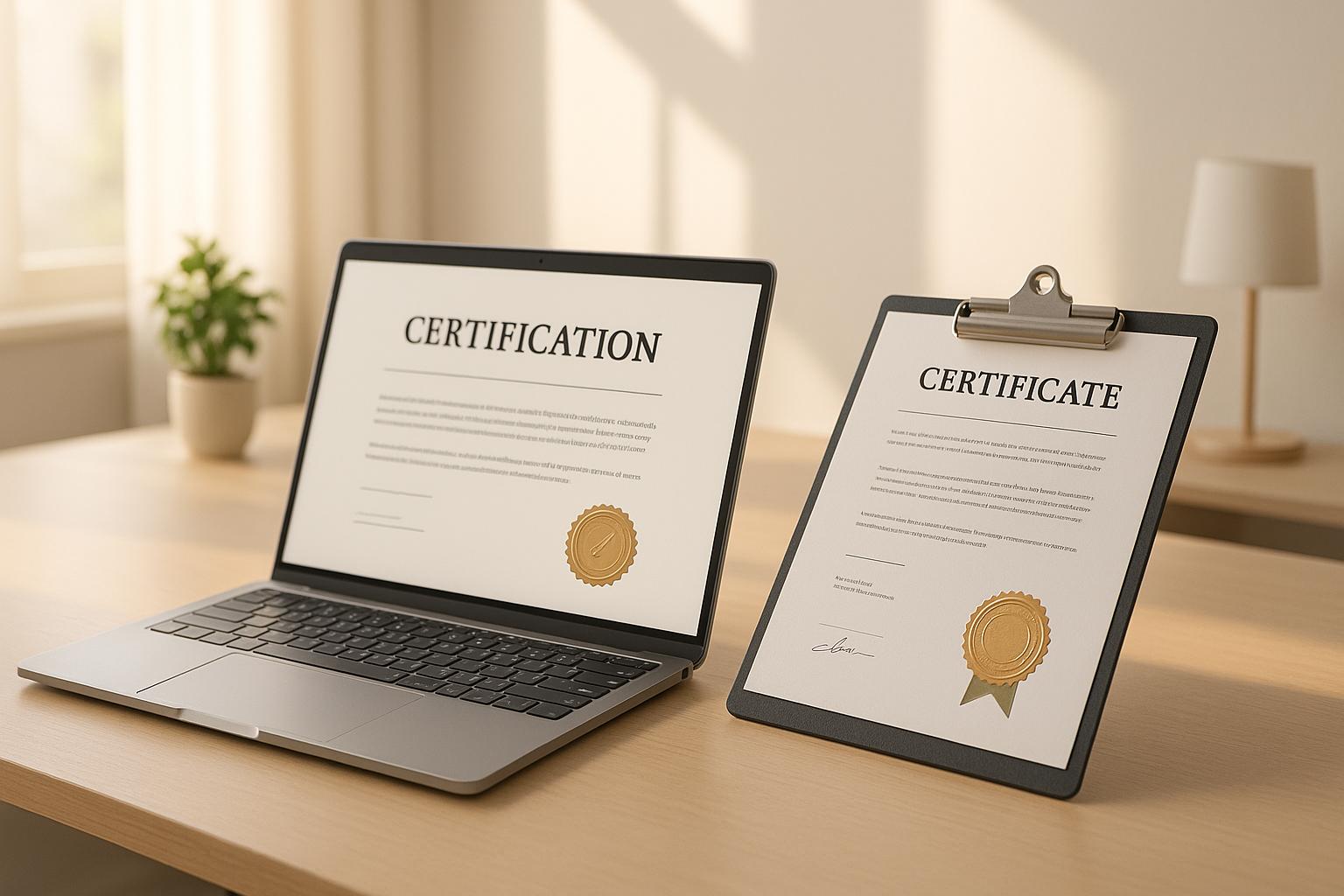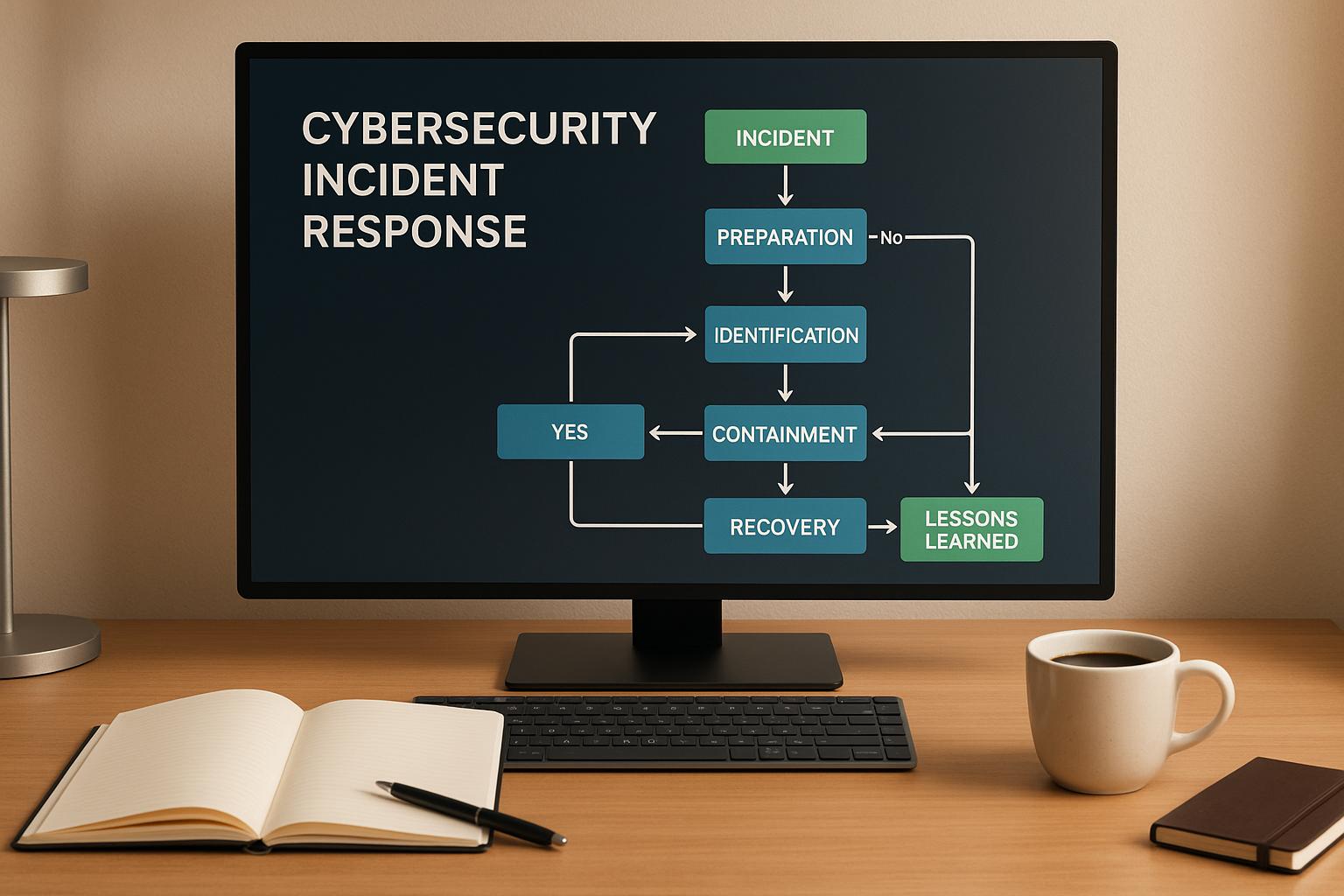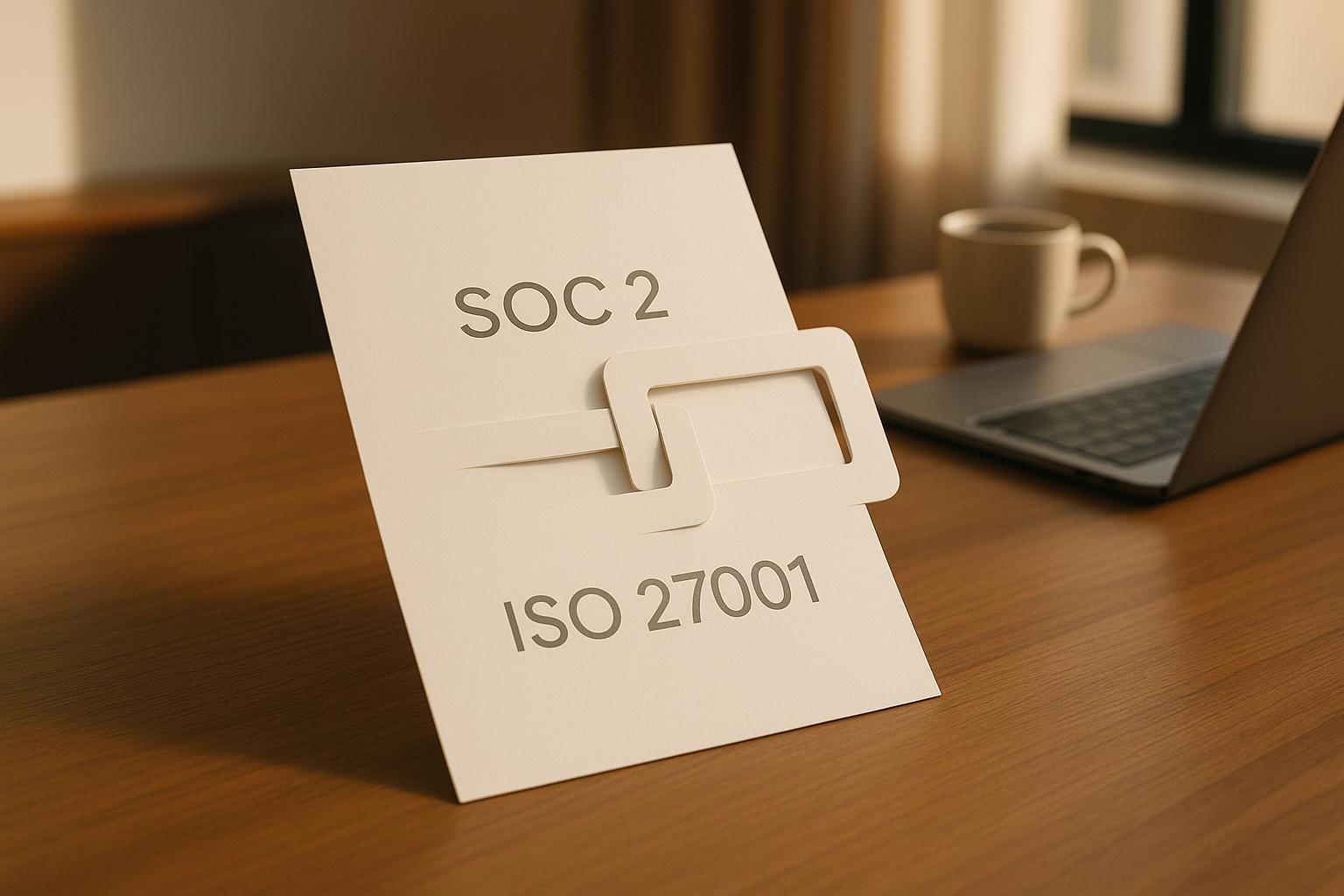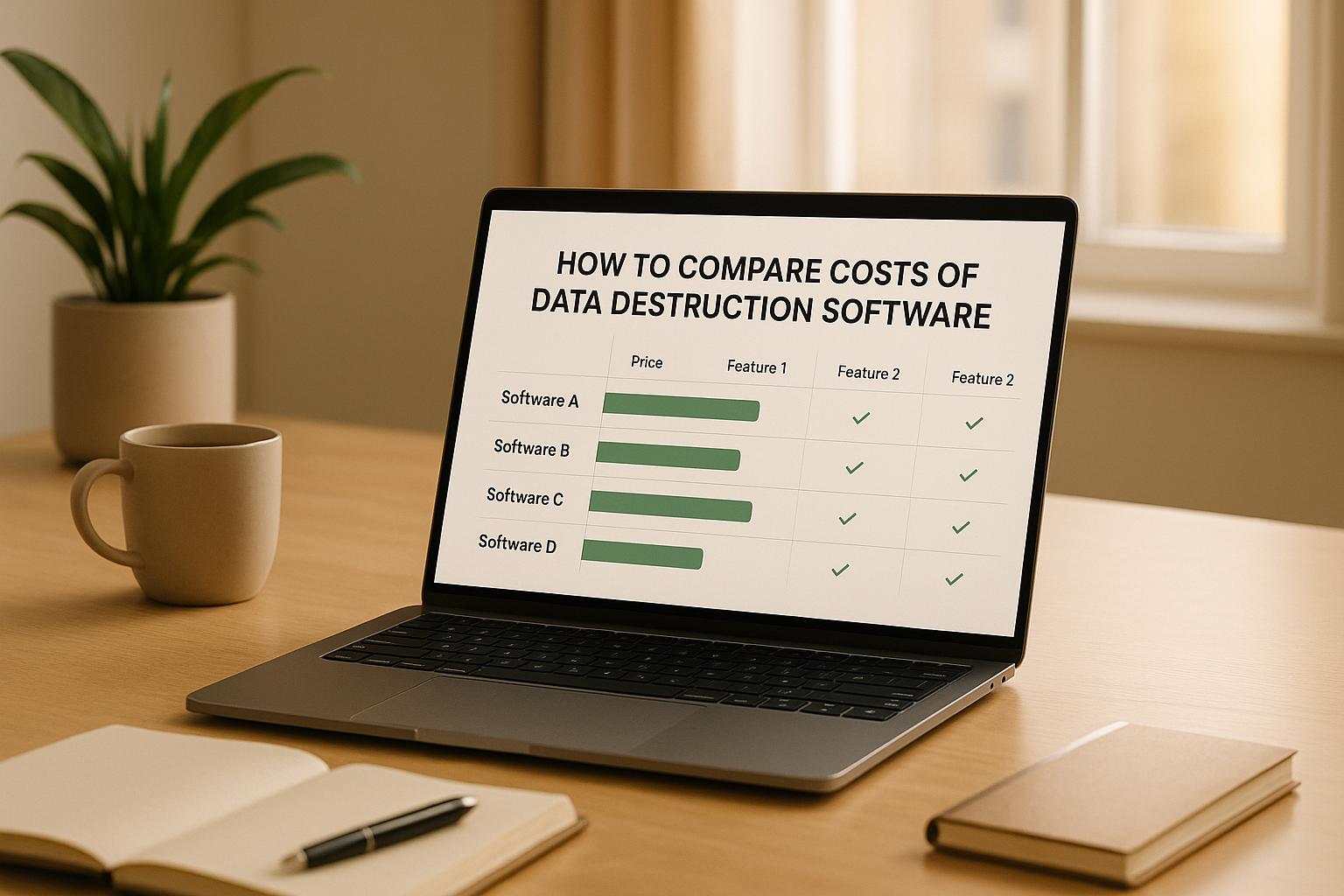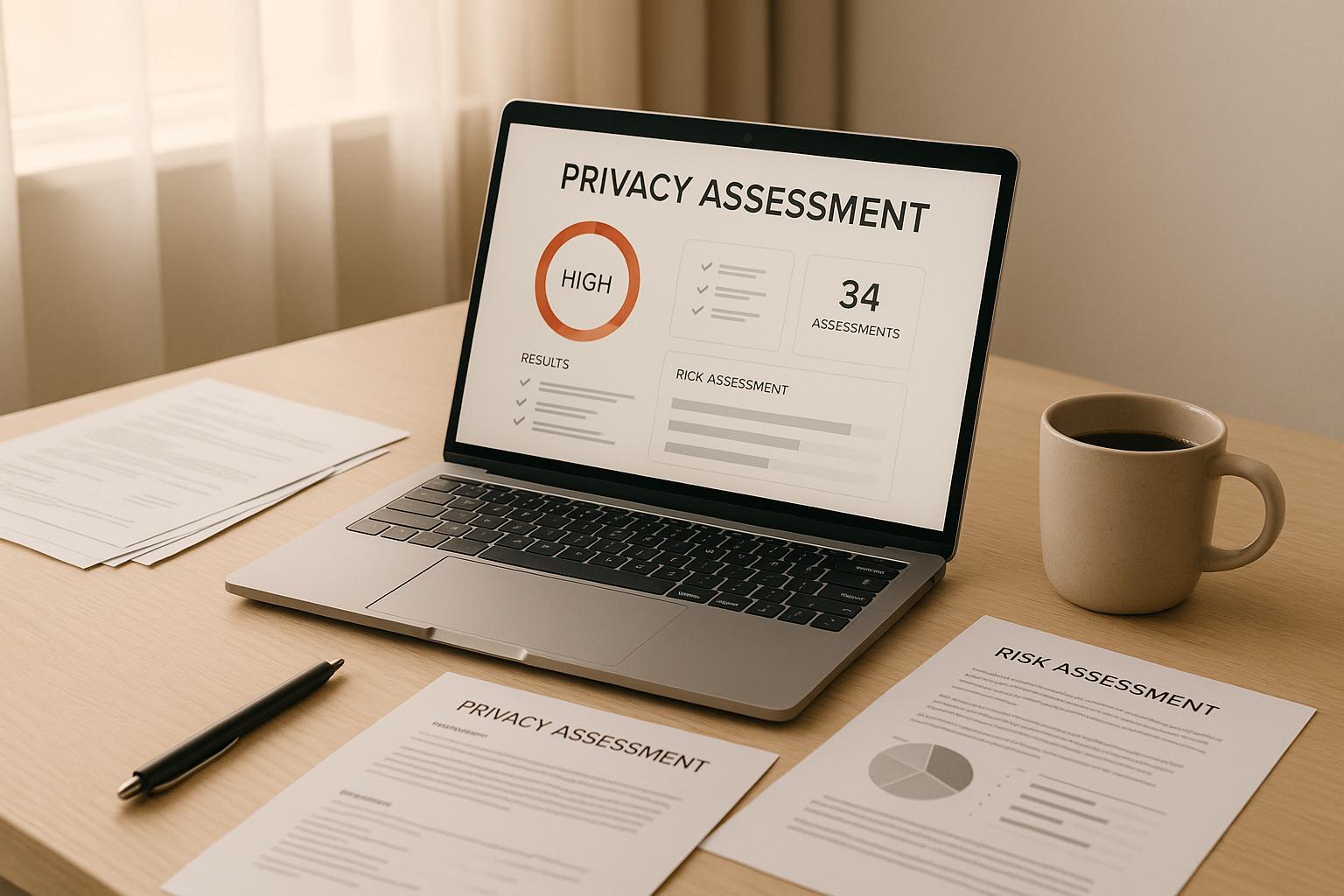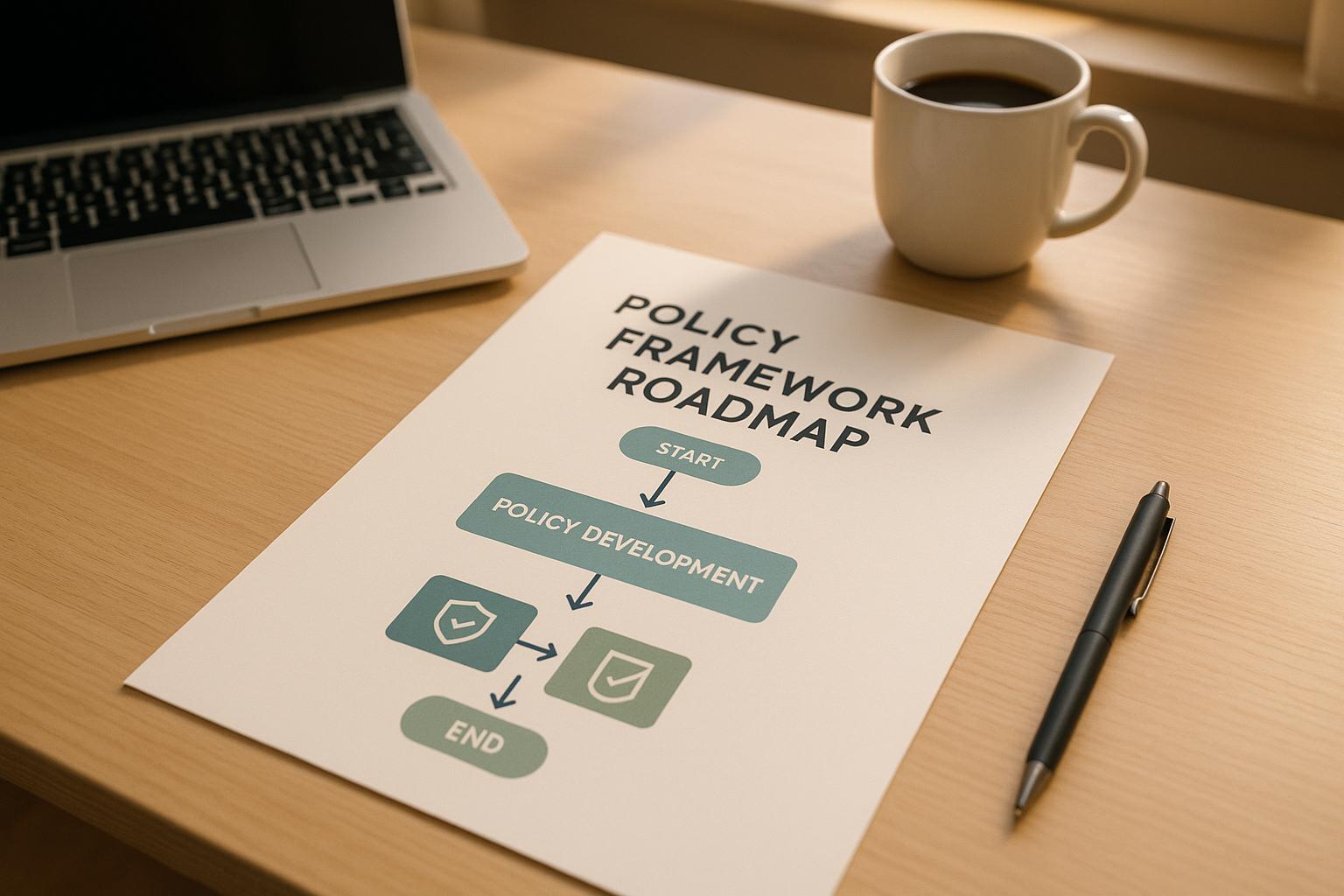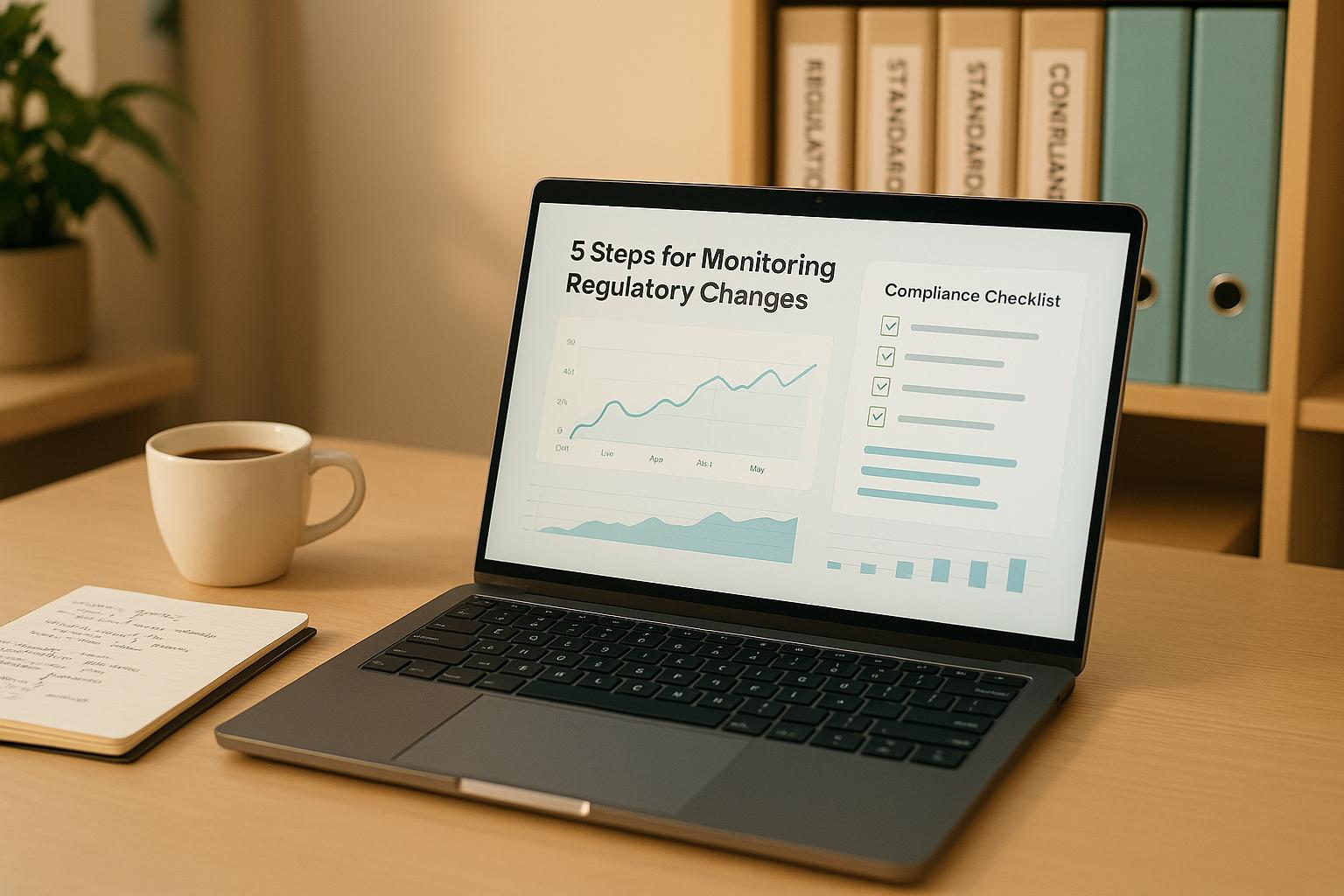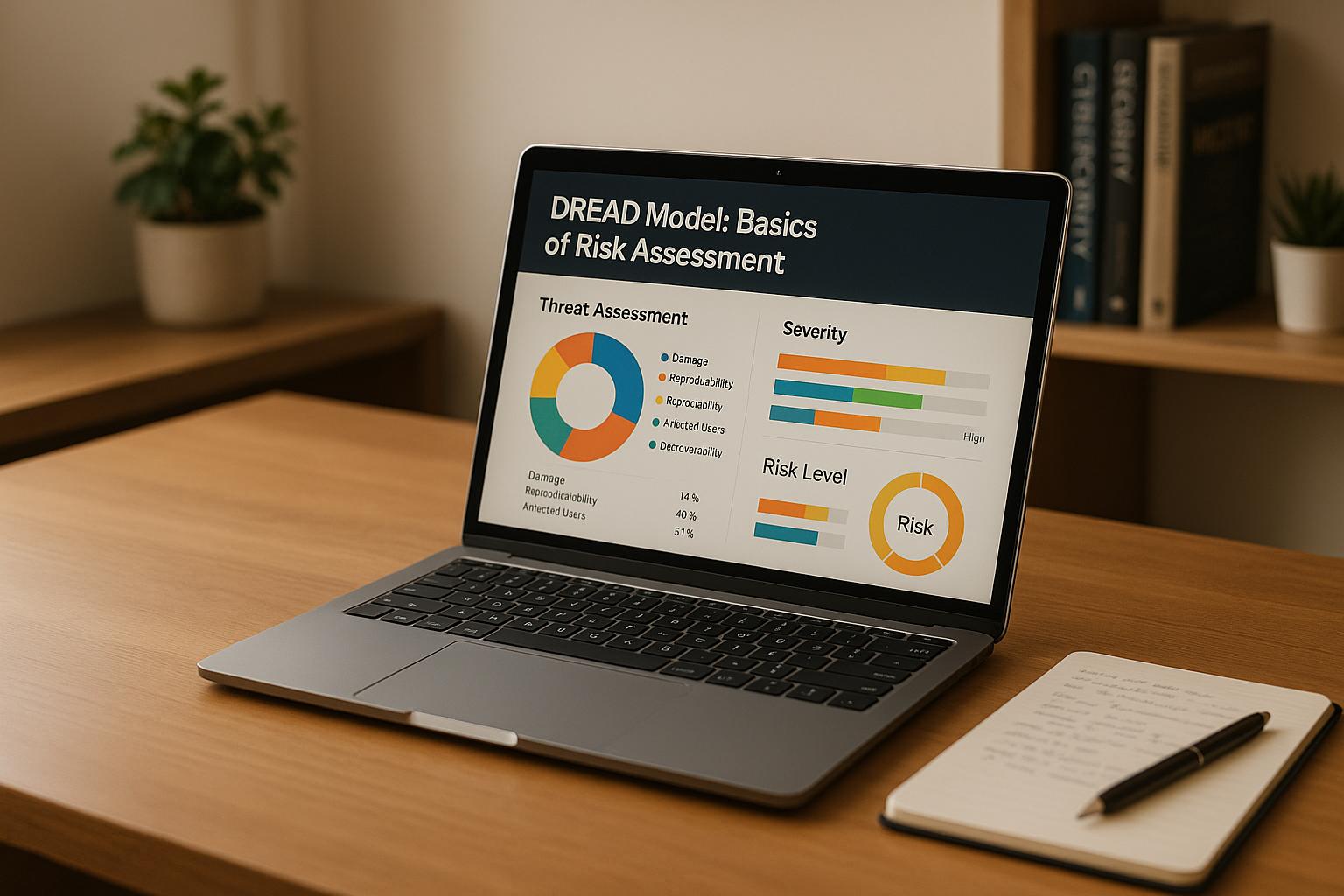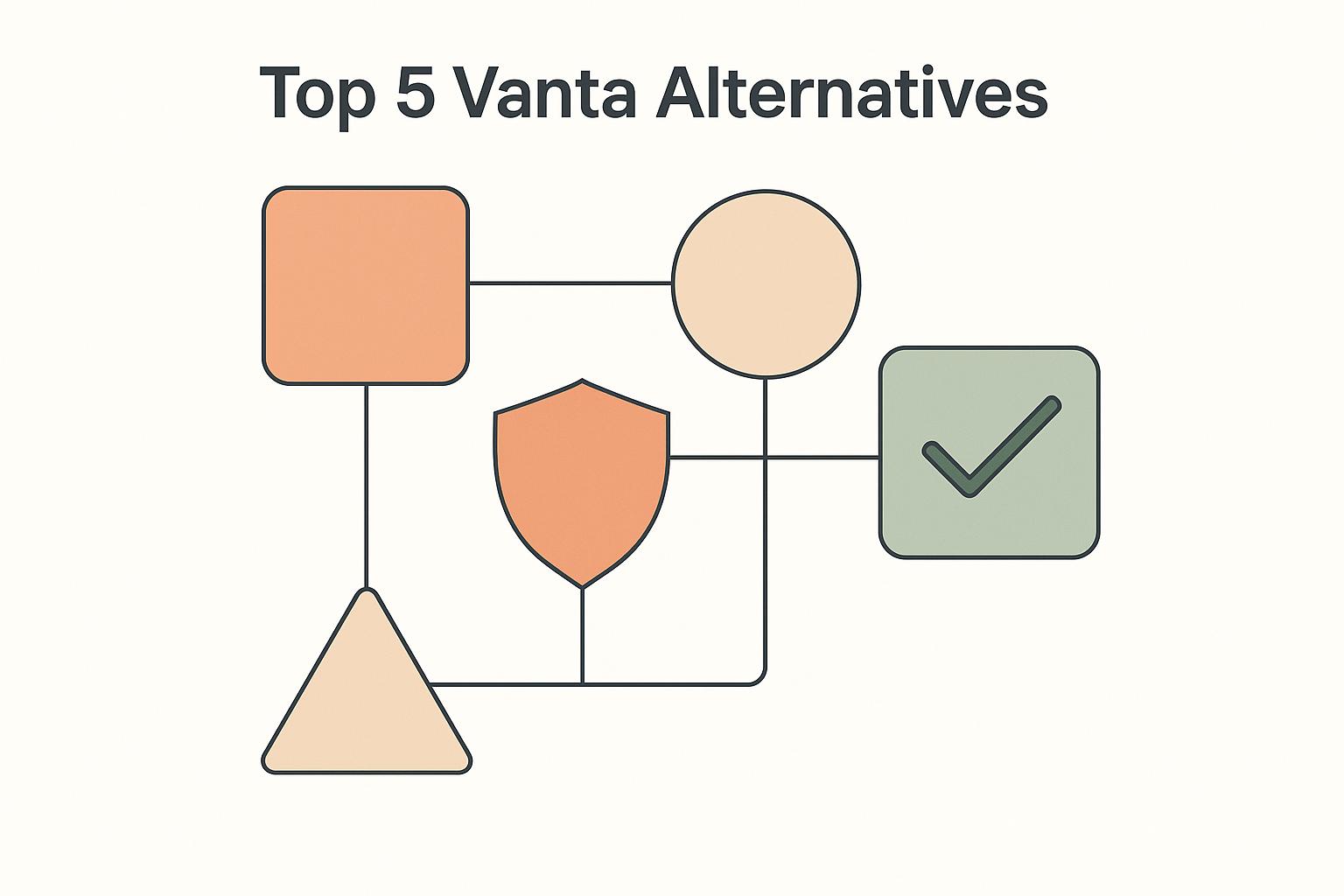
Vanta is a popular platform for automating compliance frameworks like SOC 2, ISO 27001, and HIPAA. However, depending on your business needs, there are other tools worth exploring. This article highlights five alternatives, focusing on their features, pricing, and suitability for different organizations:
- Cycore: Combines compliance automation with expert services like vCISO and vDPO. Ideal for businesses seeking hands-on guidance.
- Drata: Known for real-time security monitoring and automated evidence collection. Best for mid-size to large companies.
- Secureframe: Automates compliance with extensive integrations but may be costlier for smaller teams.
- LogicGate: Offers customizable workflows for complex compliance needs, targeting larger enterprises.
- UpGuard: Specializes in vendor risk management, focusing on third-party security.
Each platform has strengths tailored to specific compliance challenges, making it essential to match your choice with your organization’s goals and scale.
Quick Comparison
| Platform | Key Features | Best For |
|---|---|---|
| Cycore | Expert services with scalable automation | Start-ups to Enterprises |
| Drata | Automated evidence collection, monitoring | Mid-market to Enterprise |
| Secureframe | Real-time compliance, vendor management | Mid-market to Enterprise |
| LogicGate | Customizable workflows for GRC management | Large Enterprises |
| UpGuard | Vendor risk and third-party security focus | Mid-market to Enterprise |
1. Cycore
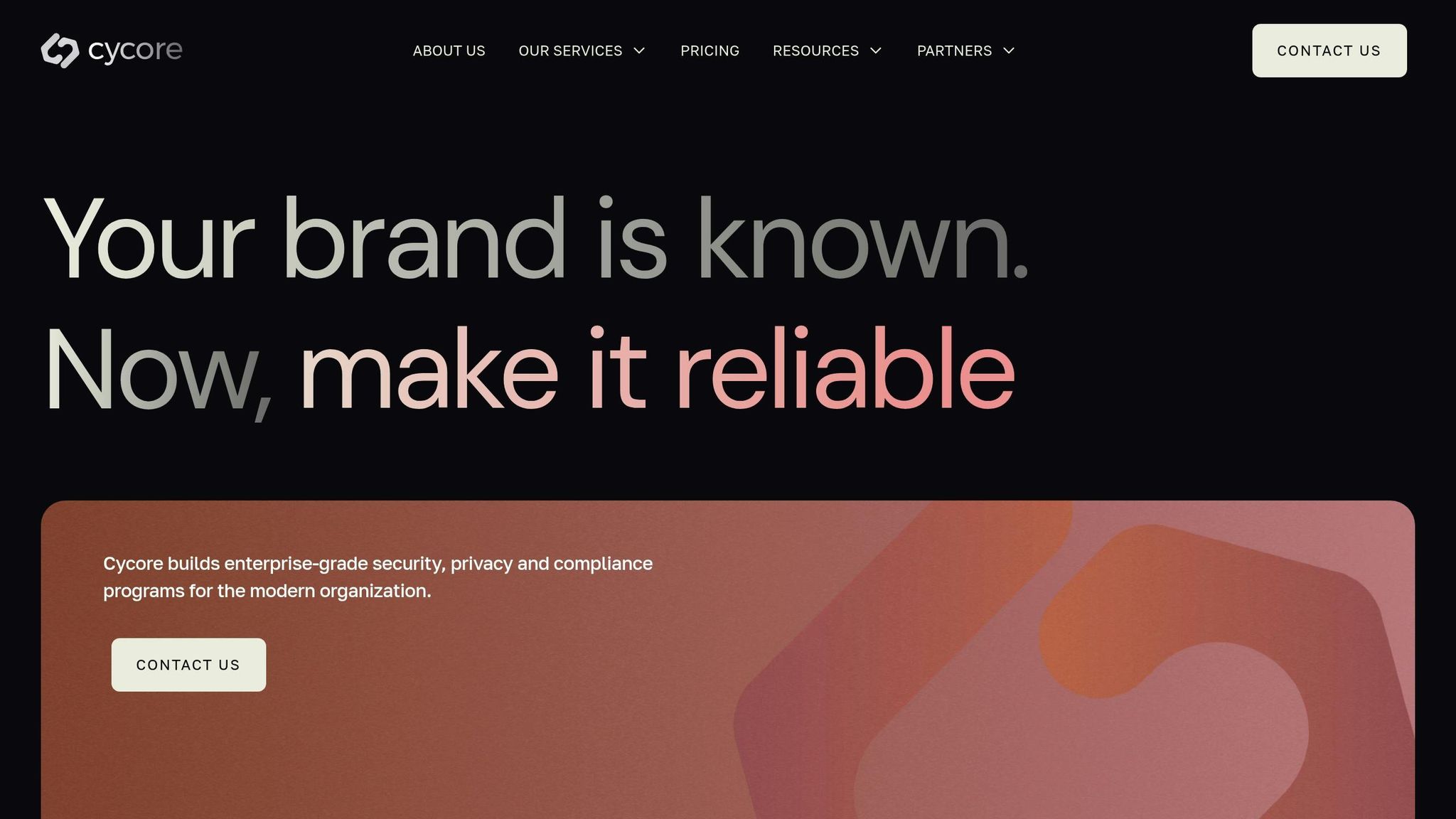
Cycore takes a service-first approach, blending compliance automation with hands-on expertise. Instead of simply offering software, Cycore delivers outsourced security, privacy, and compliance services, backed by direct support from seasoned professionals.
By combining compliance technology with Virtual CISO (vCISO) and Virtual DPO (vDPO) services, Cycore provides both the tools and expert insights needed to navigate complex compliance landscapes.
Supported Frameworks
Cycore supports all major compliance frameworks that are commonly required by U.S. businesses, including SOC 2, HIPAA, ISO 27001, and GDPR.
"There's major frameworks within the security space that a lot of organizations look for even before they do purchase, you know, your product." - Kevin Barona, Founder, Cycore
This broad framework coverage is particularly helpful for companies managing multiple certifications or planning to expand their compliance efforts. It also forms the backbone of Cycore’s automation and integration capabilities.
Automation Capabilities
Cycore’s automation features build on its framework support, streamlining pentest reporting through integrations with tools like Burp Suite, Nessus, and NMap. These integrations collect data, generate support tickets, and simplify workflows.
The platform doesn’t stop at the basics. It also offers continuous vulnerability management and automated monthly reporting, taking care of routine compliance monitoring. This allows Cycore’s expert team to focus on strategic tasks like audit preparation and tailored guidance.
Integration Options
Cycore integrates seamlessly with popular pentest tools and project management systems. For tools that aren’t natively supported, Cycore offers custom-built connections, ensuring you can maintain your current tech stack without disruption.
Scalability
Cycore’s services are structured across three scalable tiers to meet the needs of businesses at different stages:
- Start-up Plan: Designed for single-framework compliance, this tier includes basic vCISO support.
- Mid-Market Tier: Expands to cover multiple frameworks and introduces vDPO services for data protection compliance.
- Enterprise Level: Offers comprehensive vCISO and vDPO services, custom GRC integrations, and support for up to four compliance frameworks.
Each tier also includes varying levels of penetration testing, audit assistance, and security training, ensuring businesses receive the right level of support as they grow.
2. Drata
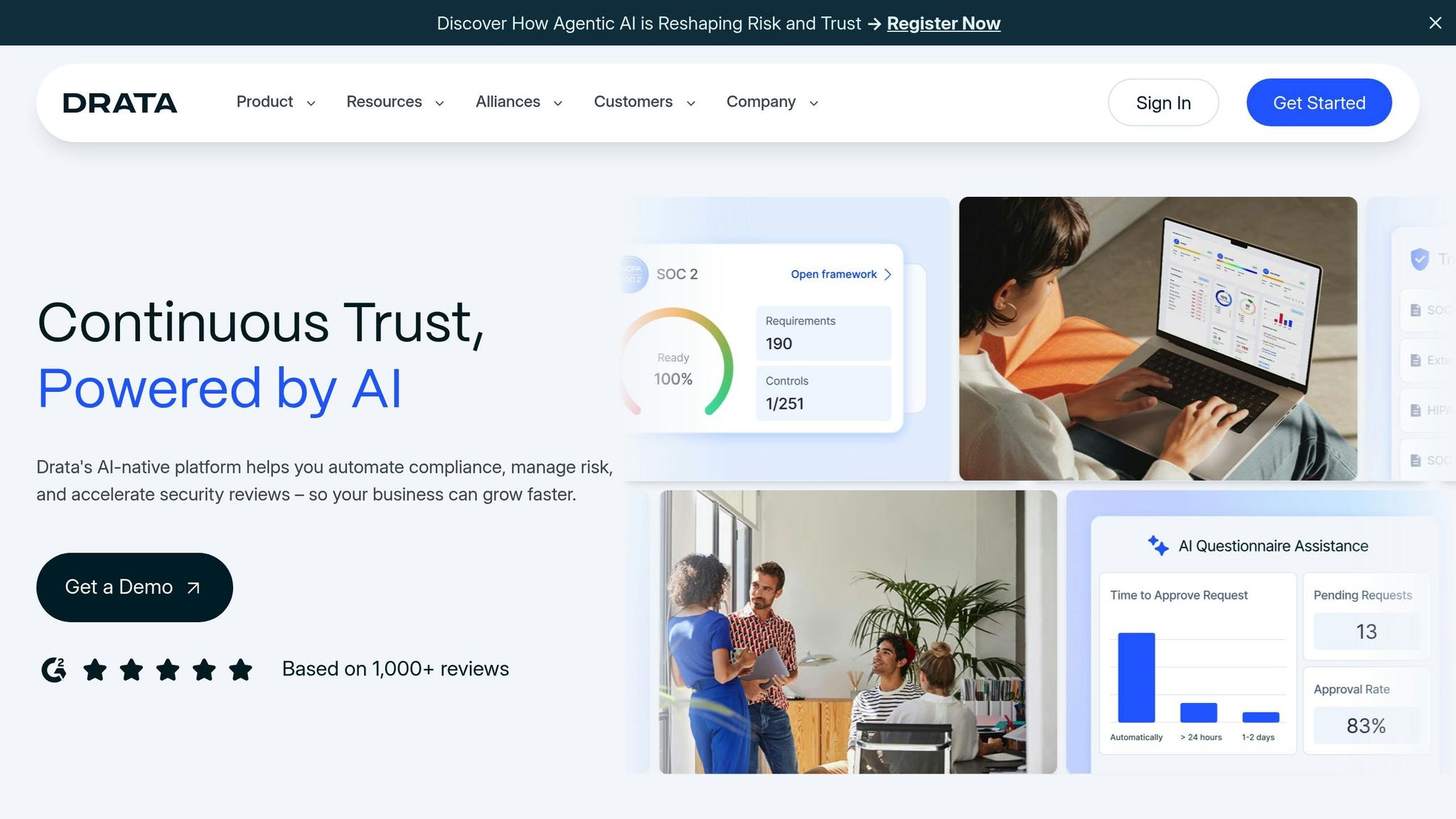
Drata simplifies governance, risk, and compliance by automating security control monitoring and evidence collection in real time. It boasts a 4.8/5 rating on G2 and a perfect 5/5 on Capterra. These ratings highlight how Drata turns compliance from a tedious manual task into a seamless automated process.
Supported Frameworks
Drata supports key compliance frameworks such as SOC 2, ISO 27001, HIPAA, and GDPR. By concentrating on these widely recognized standards, the platform ensures thorough and reliable compliance coverage. This strong focus on core frameworks forms the backbone of its automation capabilities.
Automation Capabilities
Drata’s standout feature is its automation. With continuous monitoring and automatic evidence collection, the platform keeps businesses audit-ready at all times.
"You'll never chase down documentation again - our platform continuously monitors your security controls and automatically collects evidence." - Drata
Drata also reduces manual compliance tasks by allowing teams to tailor workflows to their specific needs. Built-in risk assessments and remediation tracking help identify and address potential security issues before they become bigger problems. Additionally, the platform provides real-time updates on compliance status and maps evidence to controls automatically, making life easier for security teams.
Integration Options
Drata integrates with a variety of cloud platforms, identity providers, and security tools, ensuring compliance processes fit into existing workflows without disruption. These integrations enable automated evidence collection by connecting seamlessly with cloud services, HR systems, and security tools. However, some users have noted that Drata offers fewer integrations compared to other platforms.
Pricing
Drata follows a custom pricing model, available upon request. This approach aligns with its focus on delivering tailored automation solutions, making it a strong choice for enterprise-level organizations.
Scalability
Drata’s Trust Center allows businesses to showcase their security practices and compliance status, helping to build trust with customers and partners. The platform is designed to handle growing compliance demands, scaling alongside organizations as they expand and adopt new systems. With its real-time monitoring and integration capabilities, Drata ensures that scaling doesn’t mean adding more manual work. However, smaller businesses may find the platform’s higher costs a potential hurdle when scaling their programs.
3. Secureframe
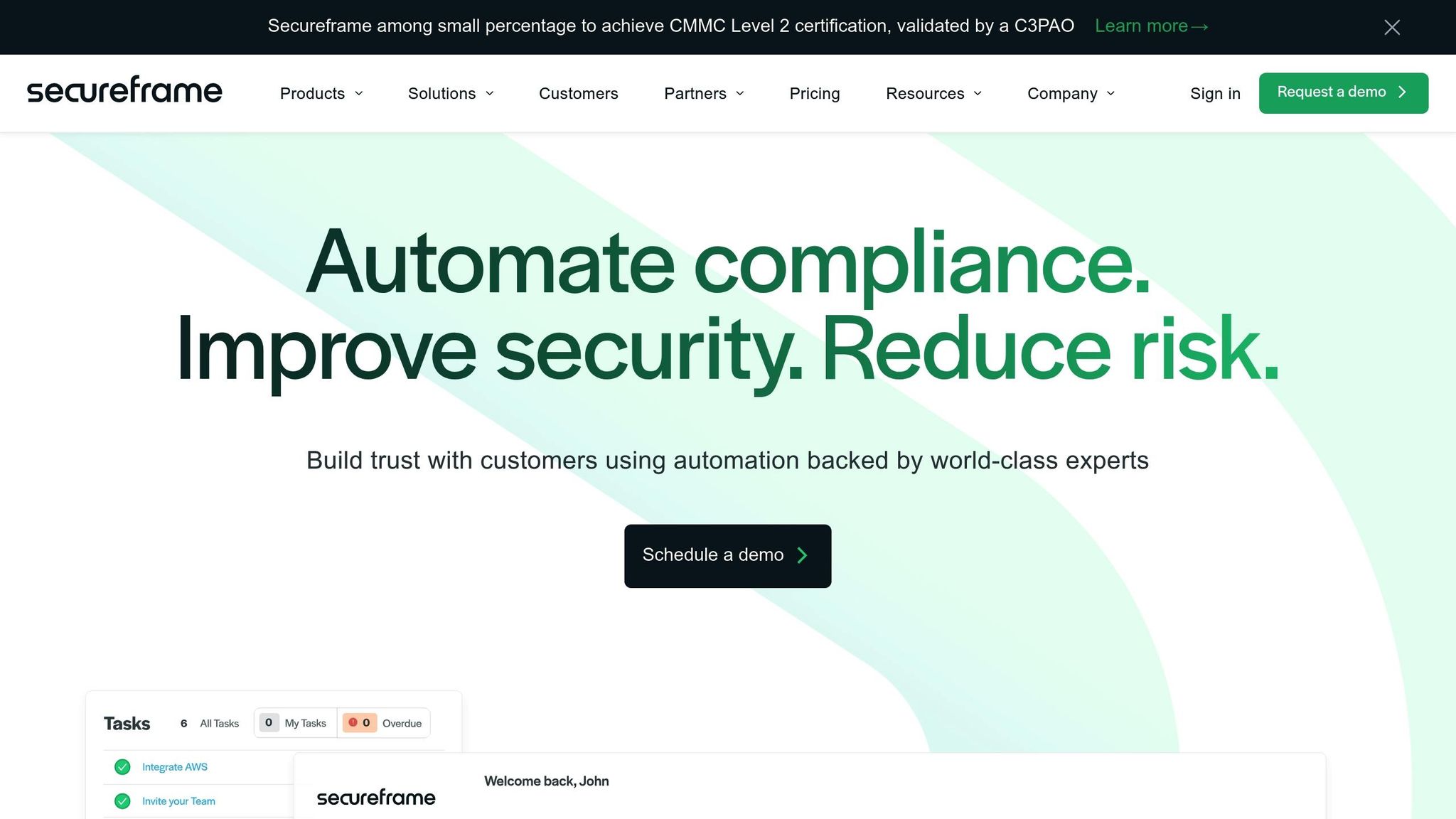
Secureframe is a compliance automation platform that simplifies security and privacy compliance by using continuous monitoring and automated evidence collection.
Automation Capabilities
With Secureframe, the tedious manual tasks that come with compliance programs are significantly reduced. The platform automatically gathers audit evidence from connected services, tracks security controls, and collects essential documentation. This approach transforms compliance into a seamless, ongoing process. On top of that, Secureframe enhances its functionality with a wide array of integrations.
Integration Options
Secureframe connects with over 100 services, including major cloud platforms like AWS, GCP, and Azure, as well as HR tools and various security services. This creates a robust compliance ecosystem. However, some users have pointed out limitations. It offers less support for non-cloud or specialized tools, especially for custom applications that may still require manual compliance tests. Additionally, its Trust Center lacks certain integrations that are key for managing trust at scale .
sbb-itb-ec1727d
4. LogicGate
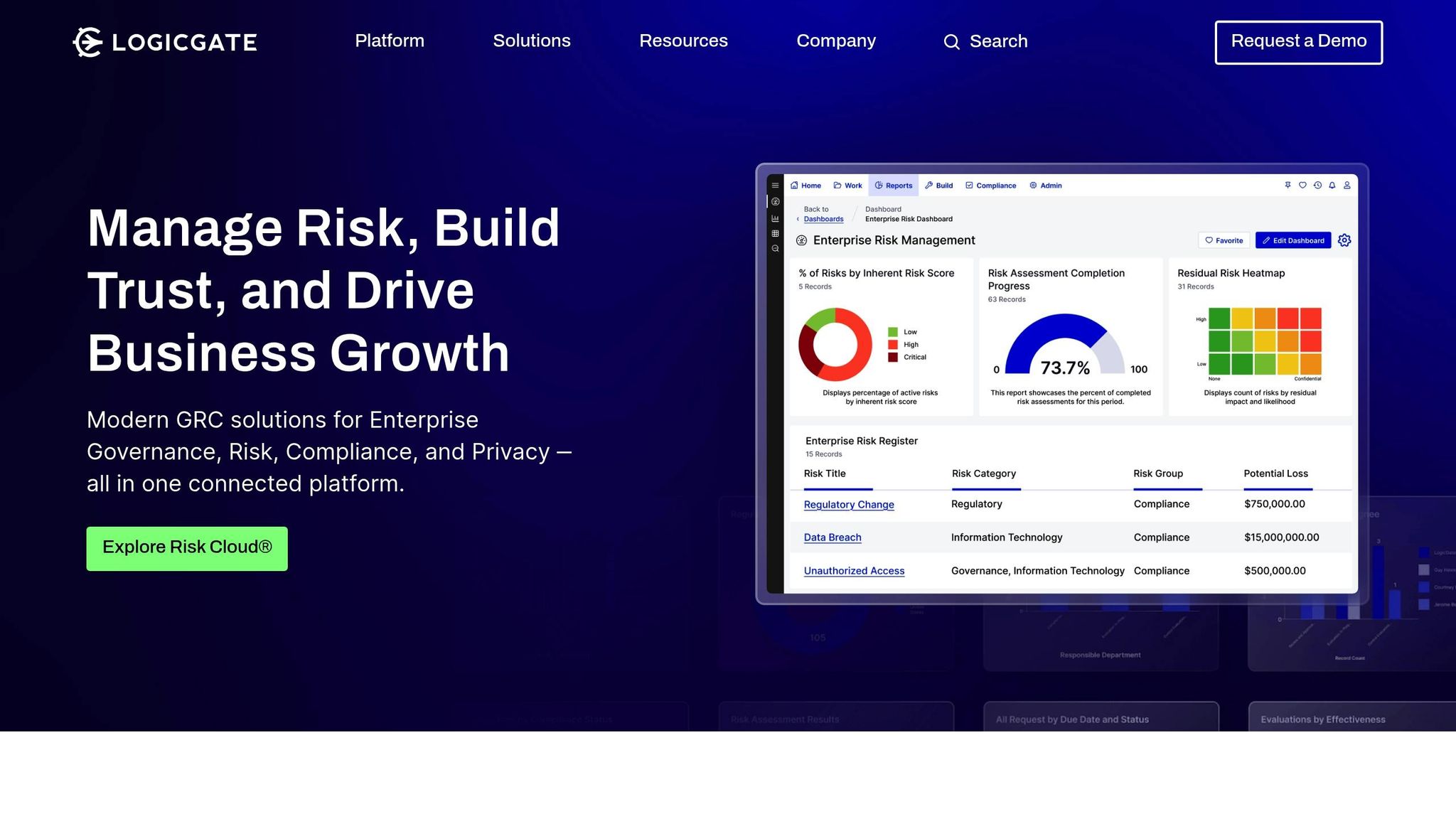
LogicGate stands out by offering flexible solutions tailored to meet specific regulatory needs. Its approach revolves around customizable workflows for governance, risk, and compliance (GRC) management, emphasizing adaptability to align with your organization's unique processes.
Supported Frameworks
LogicGate supports a wide range of compliance frameworks, including SOC 2, ISO 27001, NIST, and HIPAA, while also providing options for custom and industry-specific frameworks. Instead of relying solely on pre-built templates, the platform allows businesses to design their own compliance workflows. This flexibility is particularly useful for industries like financial services, healthcare, and manufacturing, where overlapping regulatory requirements are common.
Automation Capabilities
The platform simplifies tasks like risk assessments, policy management, audit preparation, and incident handling through its customizable workflows. Features like automated notifications, approvals, and reporting streamline these processes. Users can design approval systems and escalation paths that mirror their organizational structure, ensuring smooth integration with existing systems.
Integration Options
LogicGate integrates seamlessly with key business tools such as Microsoft Office 365, Salesforce, ServiceNow, and various ITSM platforms. It prioritizes connections with core systems that drive operational efficiency. For businesses needing more tailored solutions, LogicGate also offers API access, making it easy to link existing tools and data sources to the platform.
Scalability
Designed with large, regulated enterprises in mind, LogicGate scales to handle complex demands. It manages significant volumes of risk data and supports role-based access controls for teams spread across different locations. Its workflow engine is robust enough to accommodate the intricate approval processes often required by larger organizations.
That said, LogicGate’s enterprise-level focus makes it a better fit for larger businesses with complex compliance needs, rather than smaller companies seeking simpler solutions.
5. UpGuard
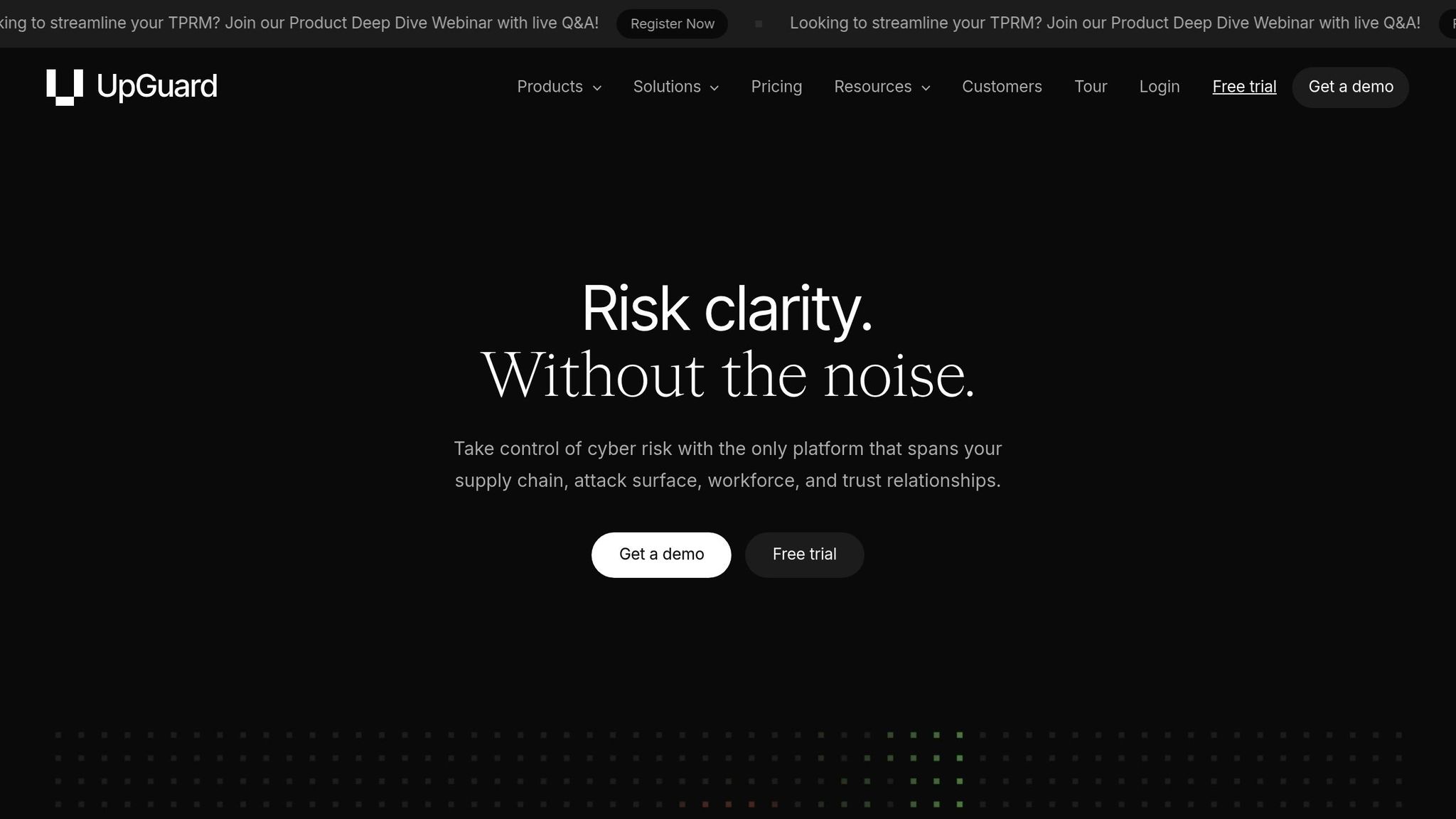
UpGuard specializes in vendor risk management, making it a go-to choice for organizations that prioritize securing their third-party relationships. While specific details about its compliance frameworks, automation features, integrations, and scalability are limited, it's worth exploring their official resources for a deeper understanding of how they handle third-party security assessments and compliance management.
What sets UpGuard apart from other platforms is its concentrated focus on vendor risk management. For businesses that view third-party compliance as a top priority, this focus could be a significant advantage. This unique angle will be further explored in the comparison section, where we dive into the strengths of each tool.
Comparison: Pros and Cons
Every tool on the list has its own strengths and weaknesses, designed to cater to different needs, budgets, and organizational sizes. Below is a table summarizing the key aspects of each platform, followed by a deeper dive into their features and suitability.
| Product Name | Supported Frameworks | Key Features | Pricing | Pros | Cons | Best-fit Organization Size |
|---|---|---|---|---|---|---|
| Cycore | SOC 2, HIPAA, ISO 27001, GDPR | vCISO services, vDPO services, GRC tool admin, audit support | Custom pricing | Expert guidance, scalable plans, ongoing monitoring | Custom pricing may be higher; service-based model | Start-ups to Enterprise |
| Drata | SOC 2, ISO 27001, HIPAA, PCI DSS | Automated evidence collection, continuous monitoring, audit prep | Custom pricing | Strong automation and broad framework coverage | May not suit very small teams | Mid-market to Enterprise |
| Secureframe | SOC 2, ISO 27001, HIPAA, PCI DSS | Real-time compliance monitoring, automated workflows, vendor management | Custom pricing | Intuitive interface with advanced automation | Higher entry costs for smaller organizations | Mid-market to Enterprise |
| LogicGate | Custom frameworks, SOC 2, ISO 27001 | Risk management, workflow automation, custom reporting | Custom pricing | Highly customizable, focused on risk management | Setup complexity; may not suit smaller companies | Enterprise |
| UpGuard | Various frameworks | Vendor risk management, third-party assessments, security monitoring | Custom pricing | Specialized in vendor risk and third-party security | Limited details on broader compliance features | Mid-market to Enterprise |
Cycore
Cycore takes a service-first approach, combining expert guidance with technology to streamline compliance management. Their tiered plans can handle everything from single-framework compliance to full vCISO and vDPO support. This makes Cycore a great choice for organizations looking for a hands-on team to manage their compliance programs. However, the custom pricing model might be a drawback for those seeking more upfront cost transparency.
Drata
Drata is all about automation. Its tools simplify evidence collection, continuous monitoring, and audit preparation, making compliance less of a headache. Drata’s pricing is often seen as competitive, which could appeal to smaller organizations, although its focus on automation may not be ideal for very small teams with limited resources.
Secureframe
Secureframe also leans heavily on automation, but it goes a step further with features like real-time compliance monitoring and vendor management. Its user-friendly interface makes it accessible, even for teams without extensive technical expertise. That said, its pricing structure might be a hurdle for smaller organizations just starting out.
LogicGate
LogicGate is built with enterprise-level customization in mind. It excels in risk management, offering tools for workflow automation and custom reporting. While its features are powerful, the complexity of setup and custom pricing may deter smaller companies that need a simpler, more straightforward solution.
UpGuard
UpGuard stands out for its focus on vendor risk management and third-party security assessments. For organizations where managing third-party security is critical, this specialization is a major strength. However, its broader compliance automation capabilities are less detailed, which might require further evaluation depending on your needs.
Key Considerations
Pricing across these platforms is typically custom, so it’s essential to factor in additional costs like implementation, training, and ongoing support when calculating total ownership costs. Each platform brings something different to the table, so aligning your choice with your organization’s specific compliance requirements is crucial.
Conclusion
Finding the right compliance solution means identifying one that aligns with your organization’s size, budget, and specific regulatory requirements. Cycore offers a tailored, service-focused approach, blending expert advice with hands-on support.
With tiered services designed to grow alongside your business, Cycore supports everything from start-ups to large enterprises. Their expertise and automated tools cover key frameworks like SOC 2, HIPAA, ISO 27001, and GDPR, making them a dependable partner for navigating compliance challenges.
Take the next step - evaluate your compliance needs and request a demo to see how Cycore can help you achieve your goals.
FAQs
What should I look for in a compliance automation platform for my business?
When selecting a compliance automation platform, it's crucial to evaluate its support for key compliance frameworks like SOC 2, ISO 27001, HIPAA, GDPR, and PCI DSS. Check whether it includes automation features and integrates smoothly with your current tools, such as cloud platforms or security solutions.
You'll also want to consider factors like a simple, user-friendly interface, real-time monitoring and alerts, and the platform's ability to scale and adapt to your business's specific needs. Don’t overlook cost-effectiveness, the quality of vendor support, and whether the platform addresses any compliance requirements unique to your industry.
How do integrations impact the effectiveness of compliance automation tools?
The success of compliance automation tools largely hinges on how well they integrate with other systems. Smooth connections with platforms like cloud services, security tools, and HR systems can simplify workflows and cut down on manual tasks.
With features like automated evidence collection, continuous monitoring, and real-time audit tracking, robust integrations help reduce mistakes and keep compliance processes on track. This means less time spent on tedious tasks and greater precision in meeting standards such as SOC 2, ISO 27001, and HIPAA.
Why would a business prefer Cycore's service-first approach over a fully automated compliance solution?
Businesses often gravitate toward Cycore's service-first approach because it blends advanced technology with personalized support. This combination creates solutions that are better equipped to handle unique challenges and adapt to intricate compliance requirements - something fully automated tools may struggle to achieve.
With Cycore, businesses don’t just tick boxes for standards like SOC 2, ISO 27001, and HIPAA. They also benefit from expert guidance every step of the way. This mix of tailored service and scalable tools is particularly helpful for organizations managing the shifting demands of governance, risk, and compliance.



